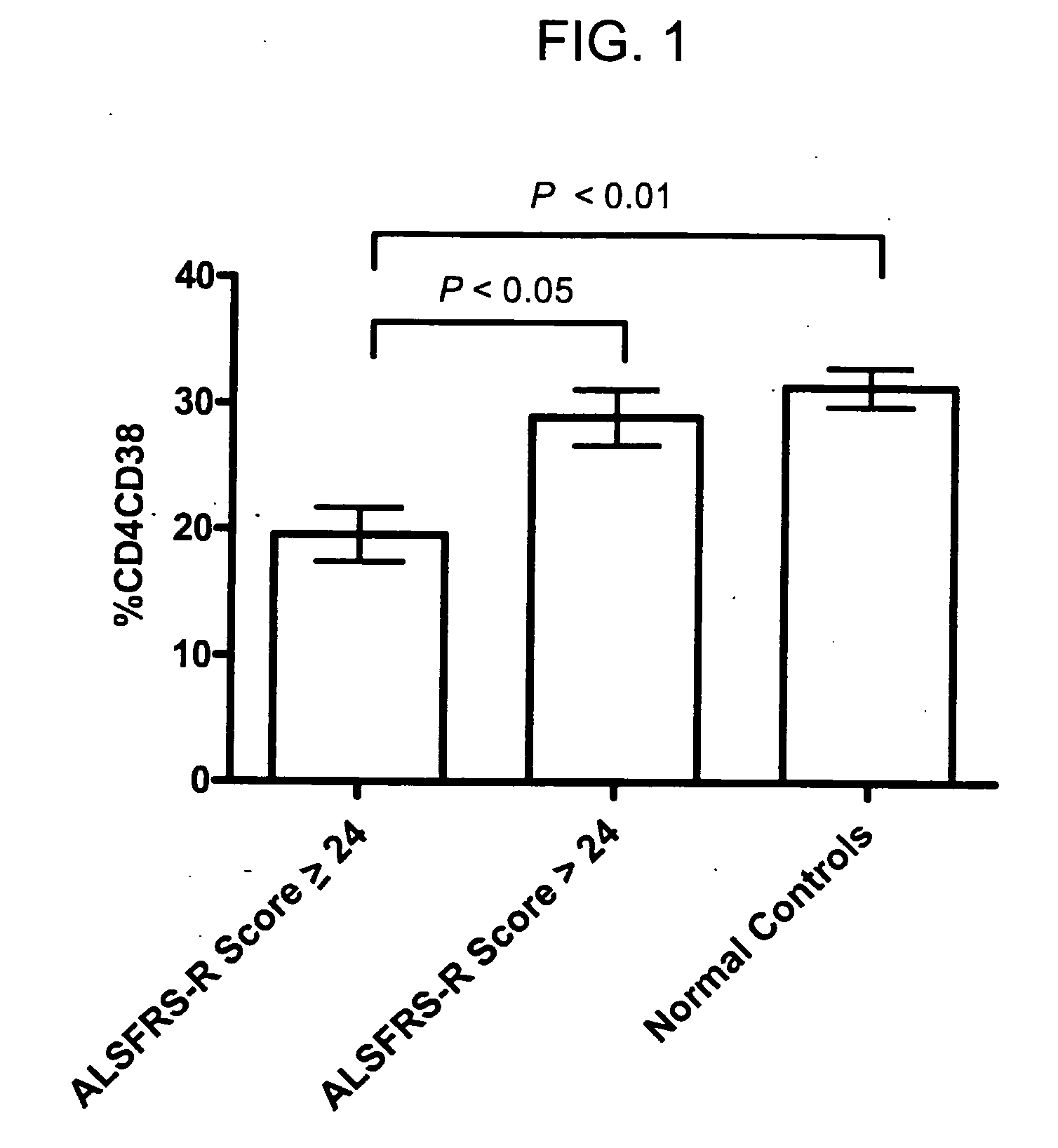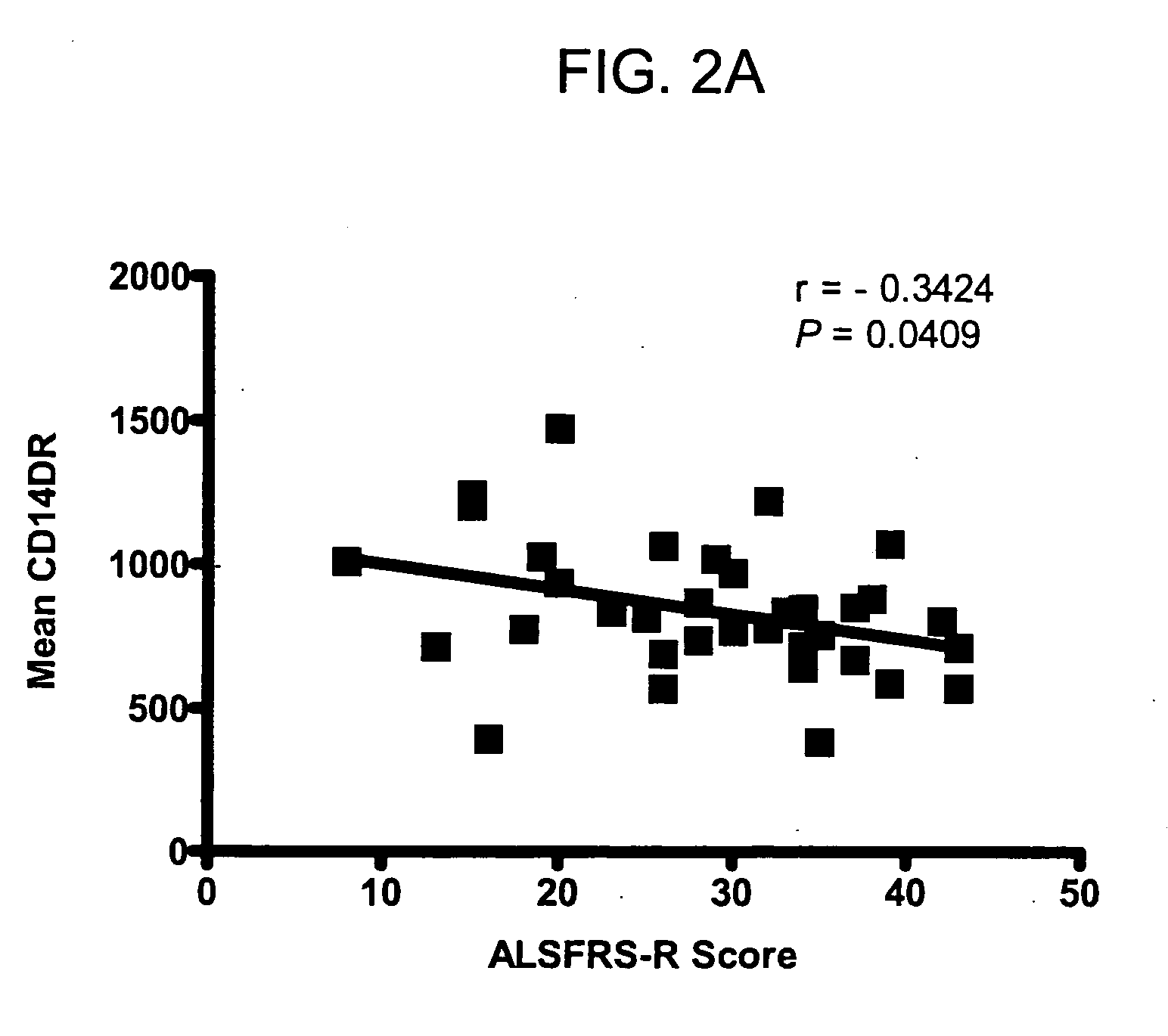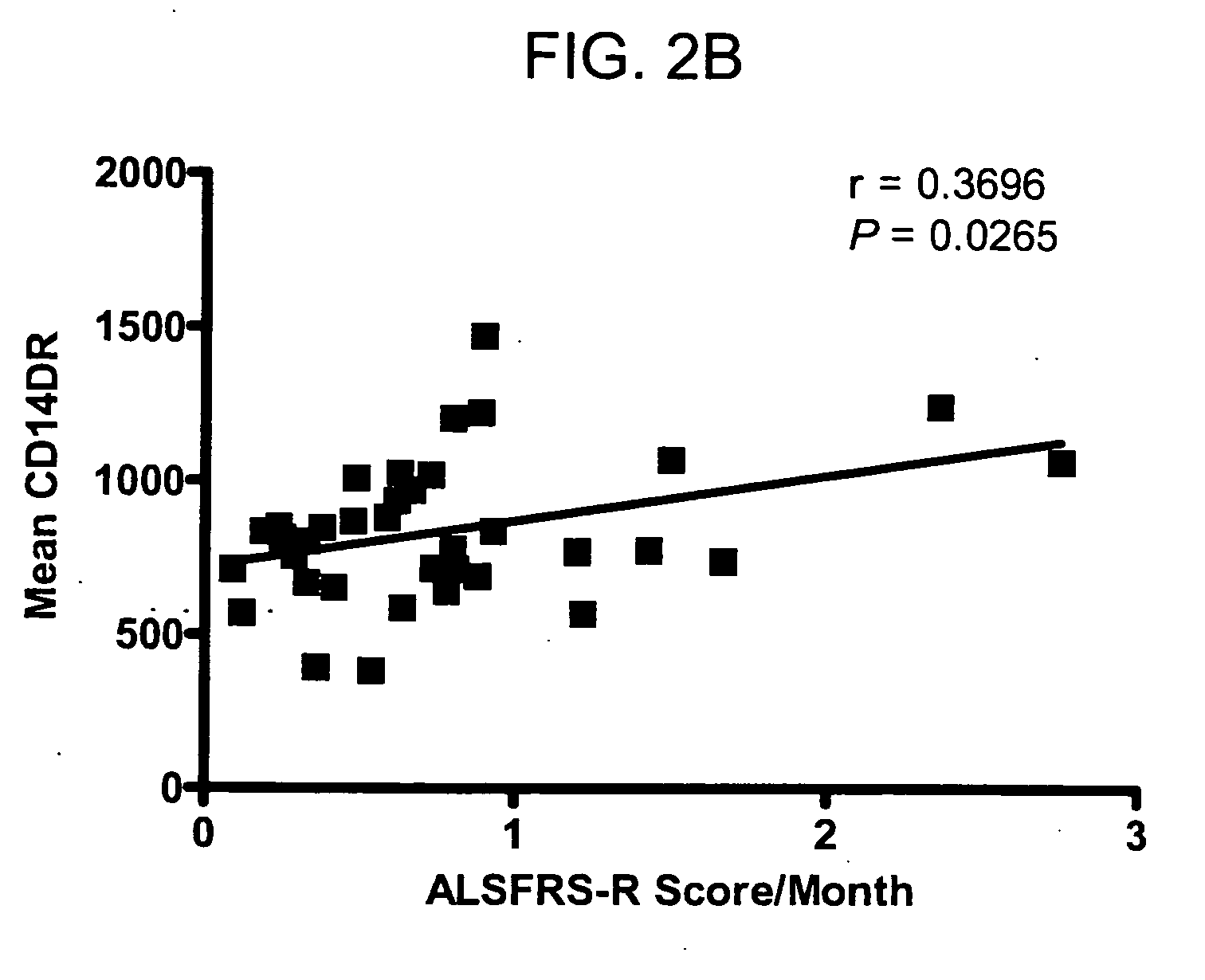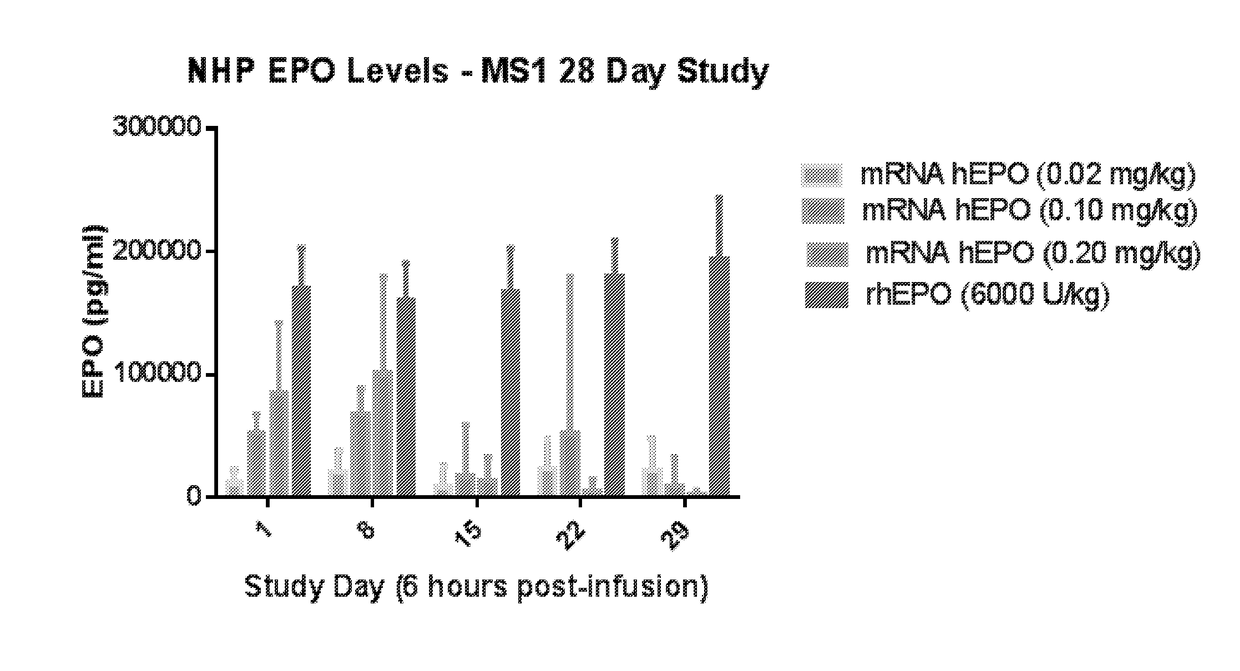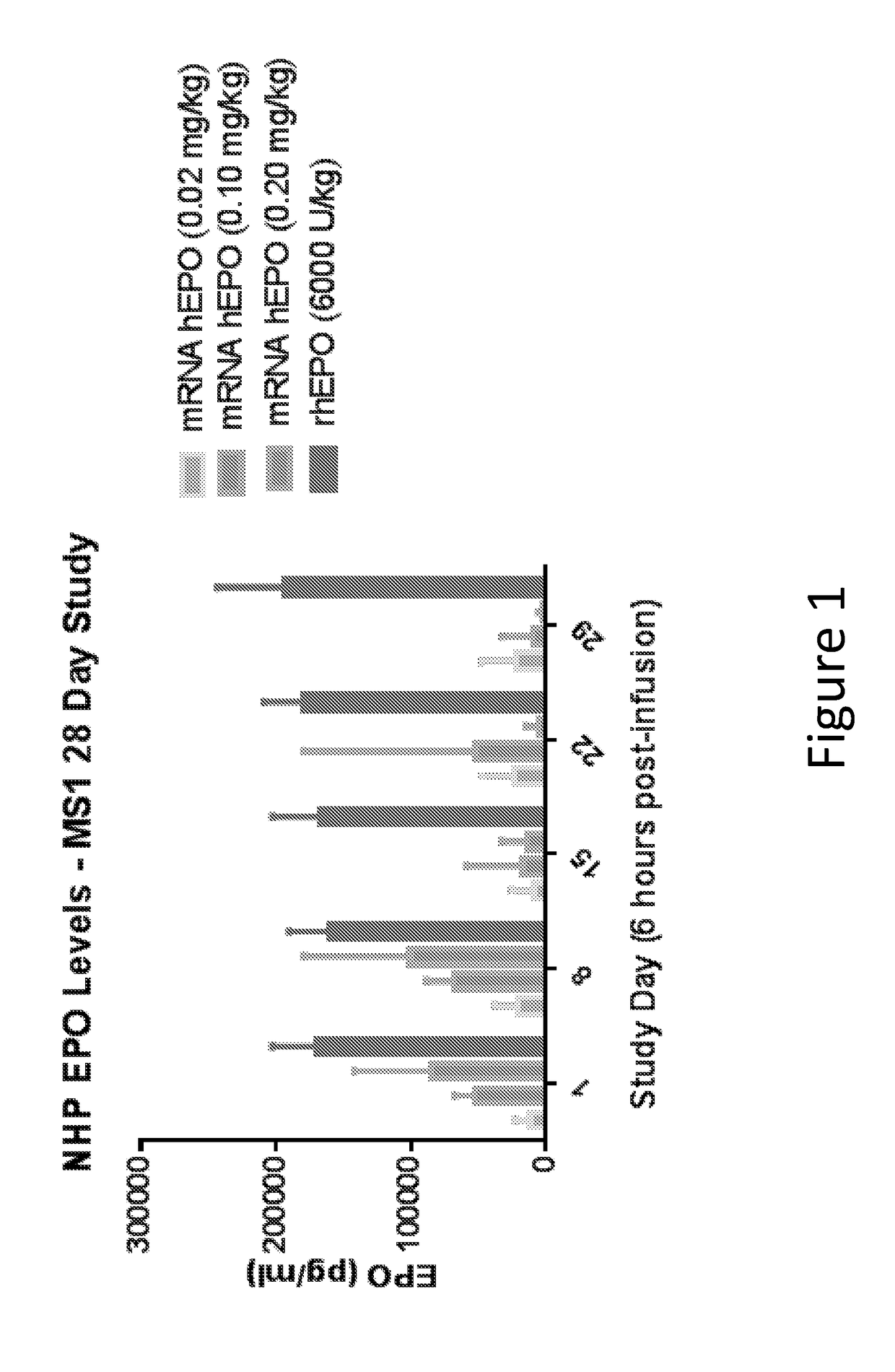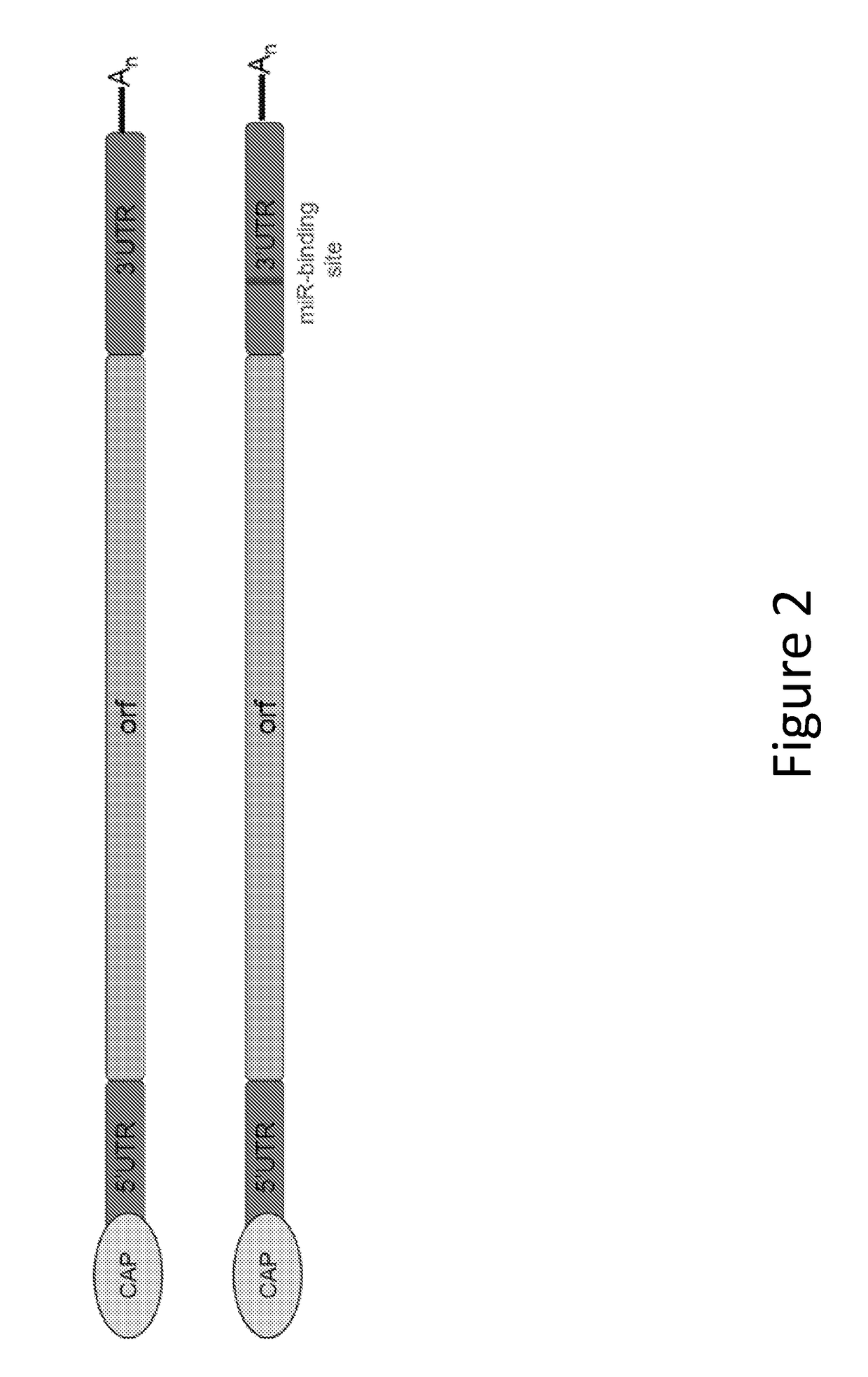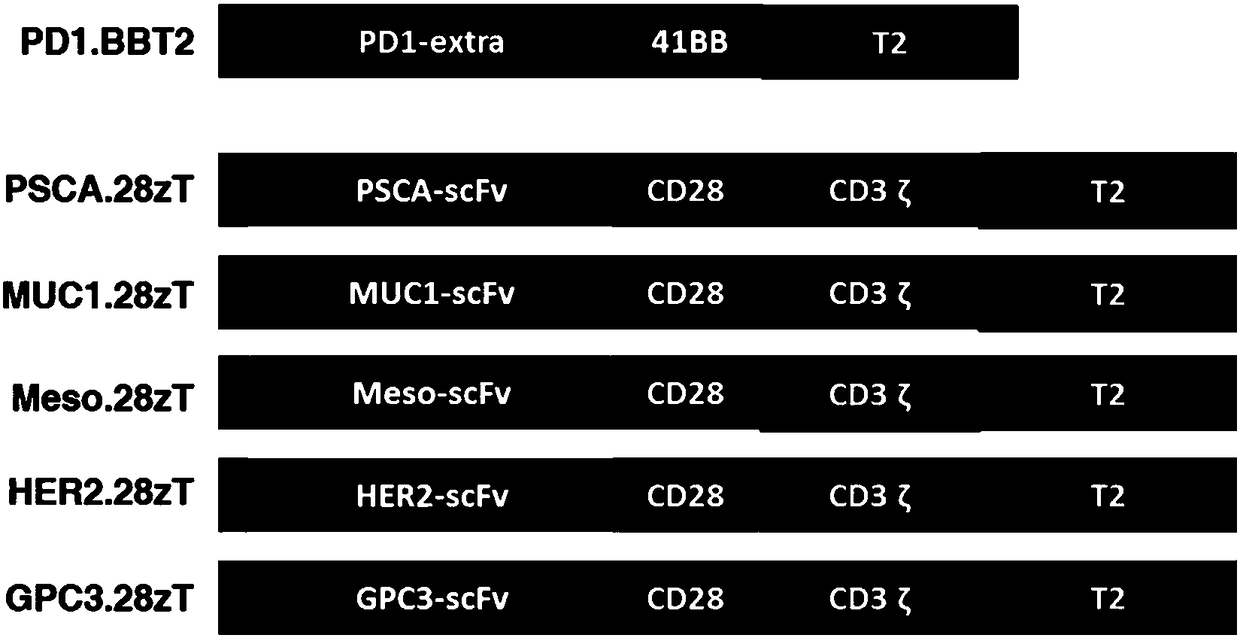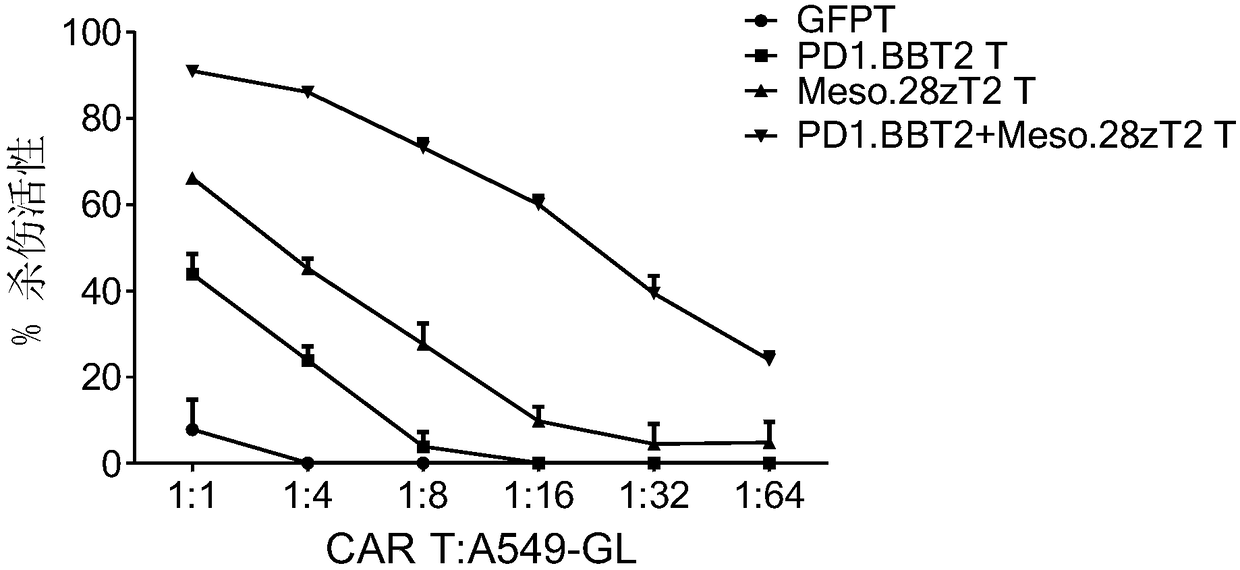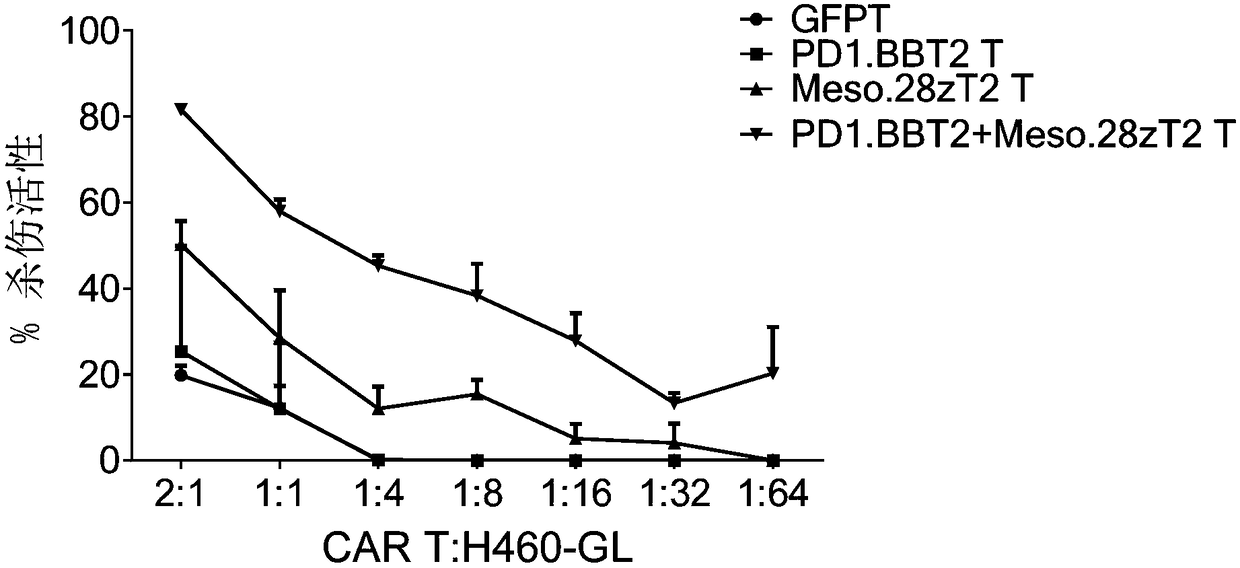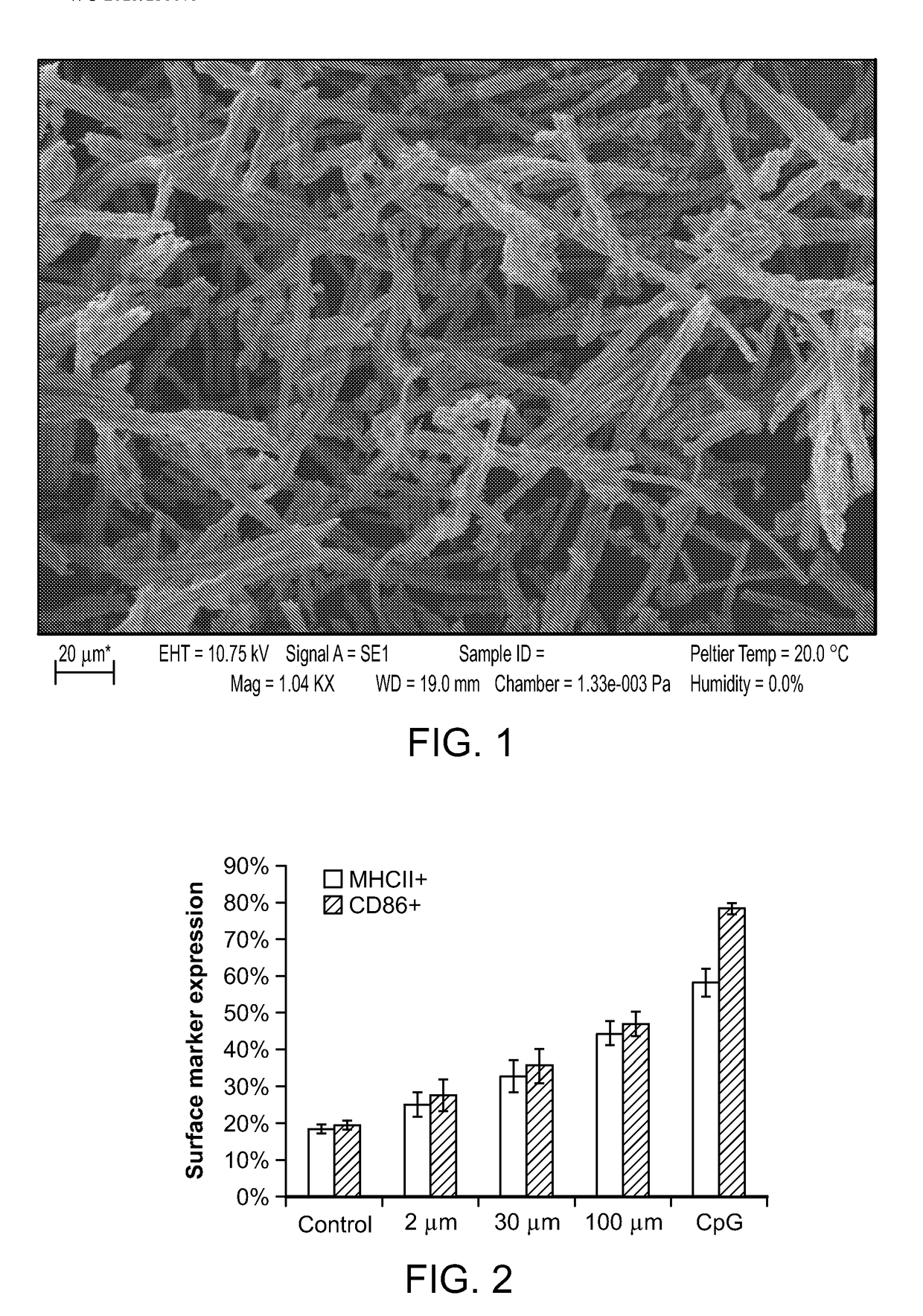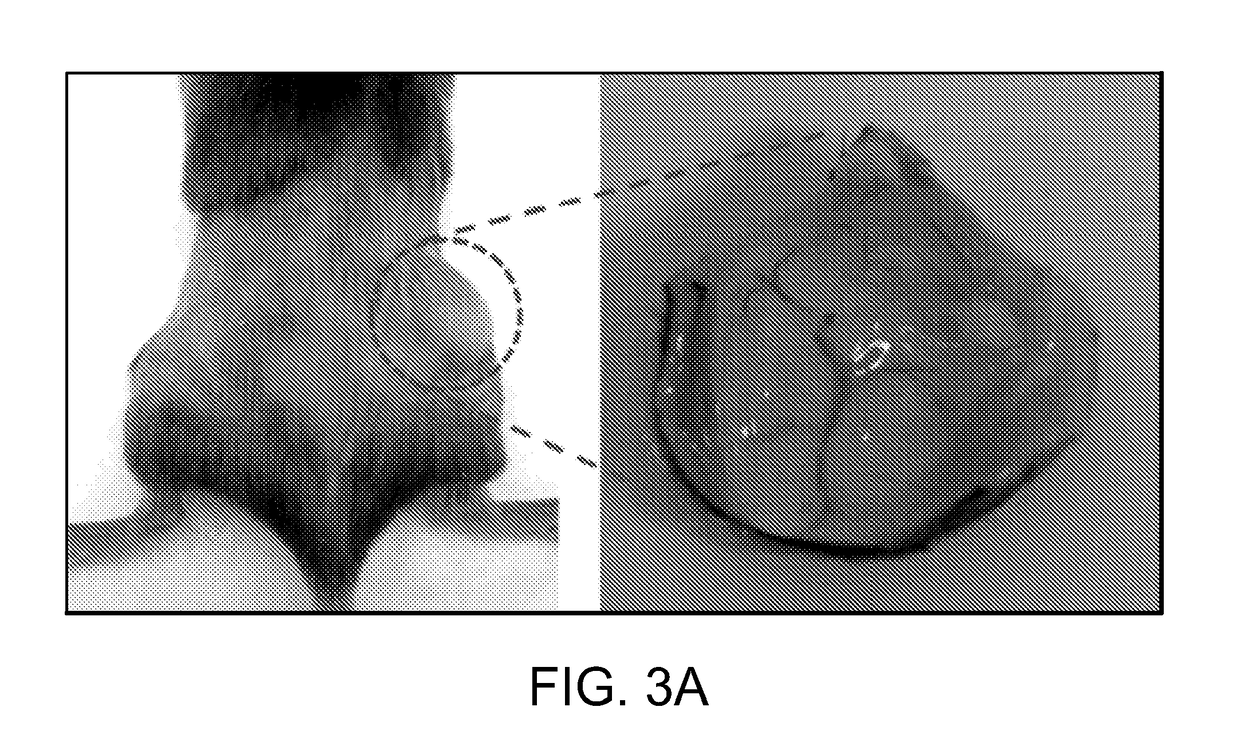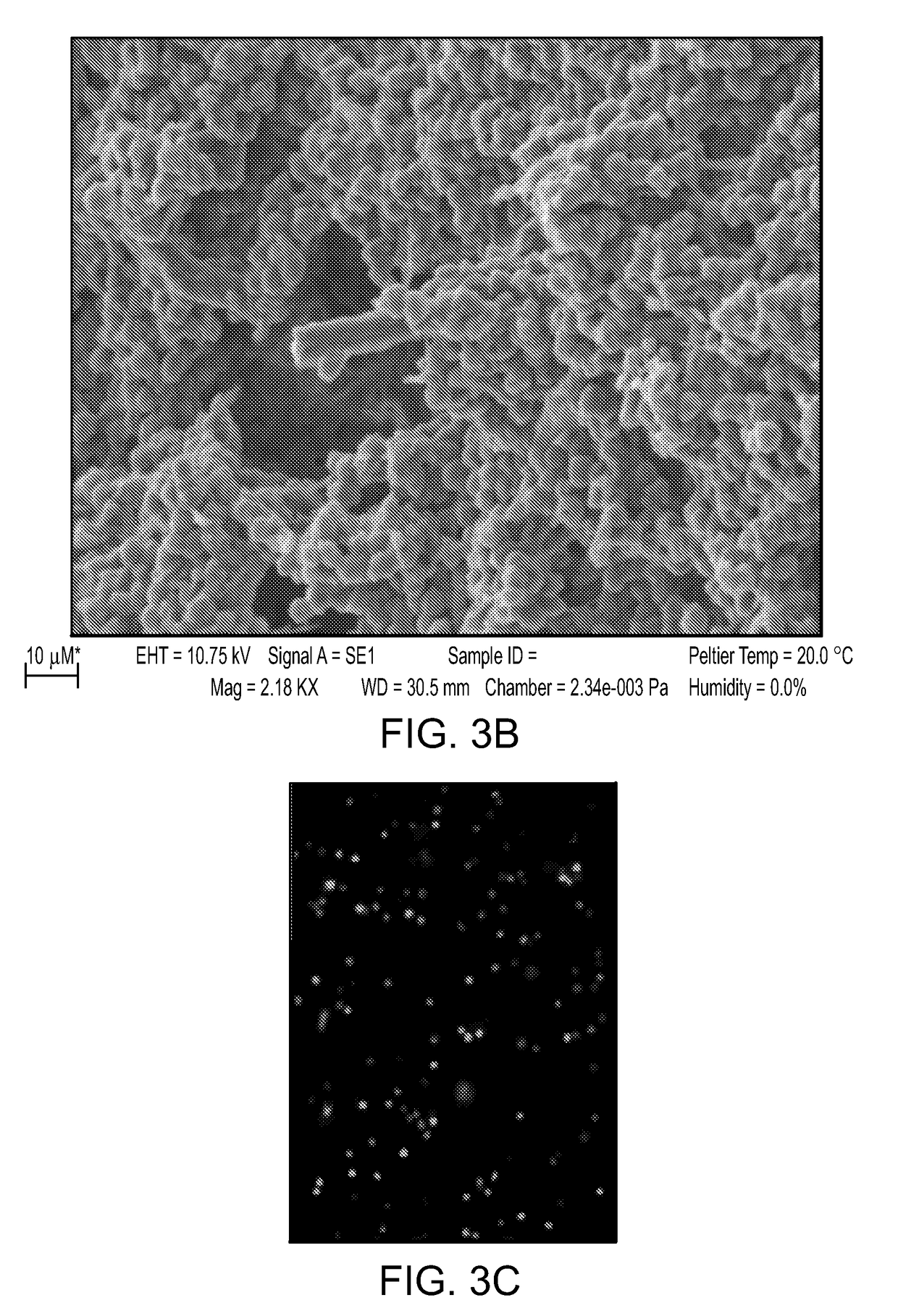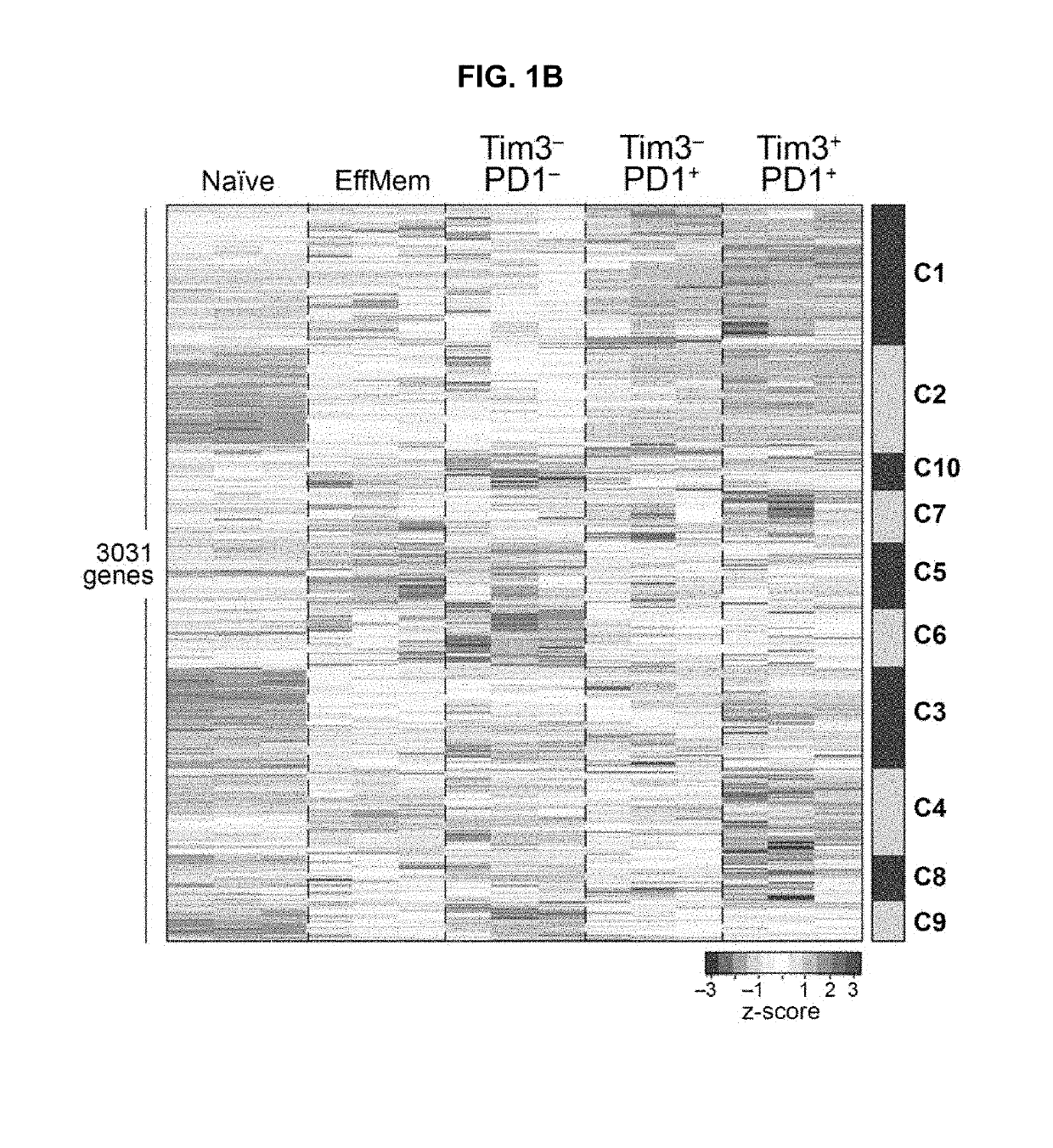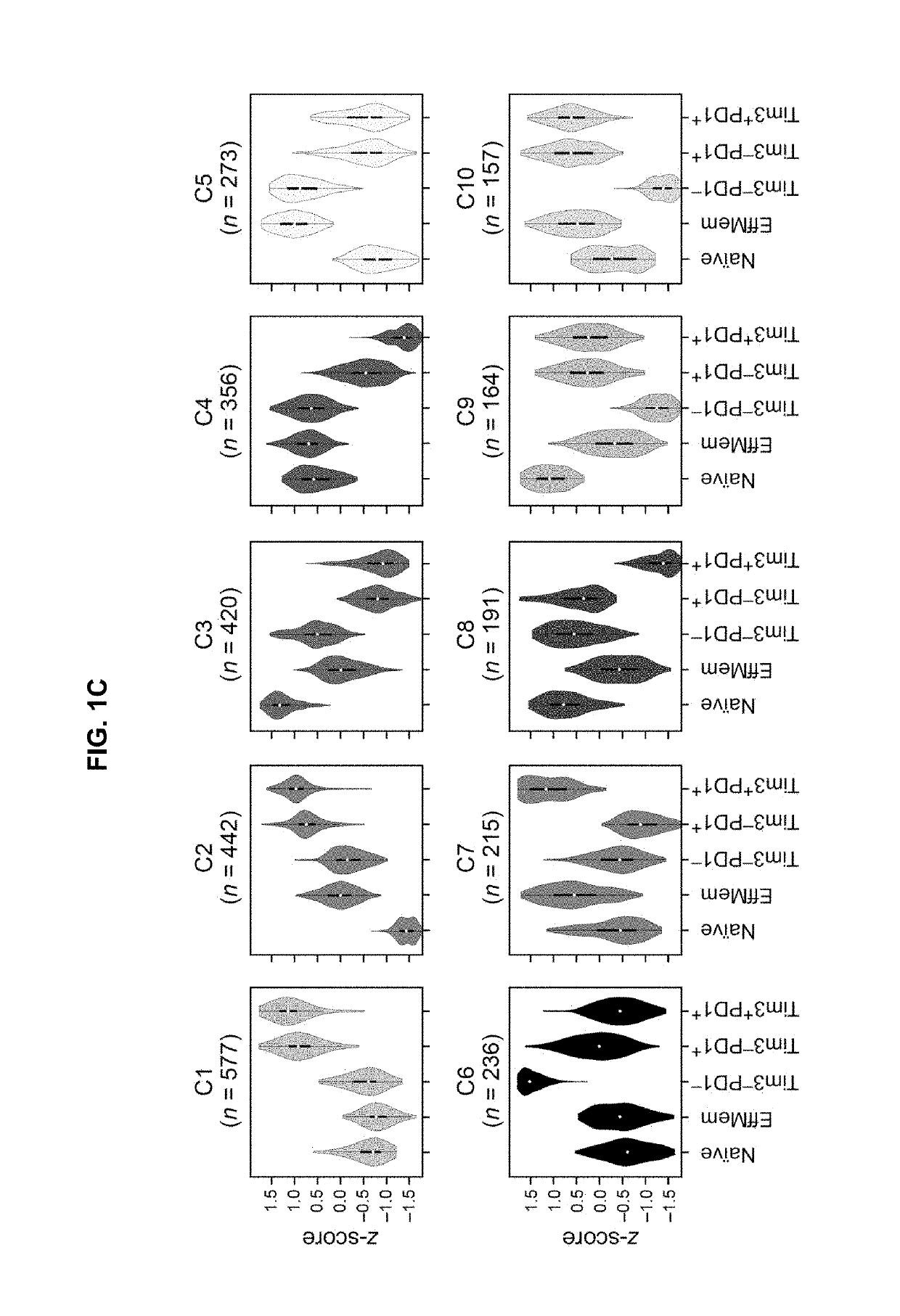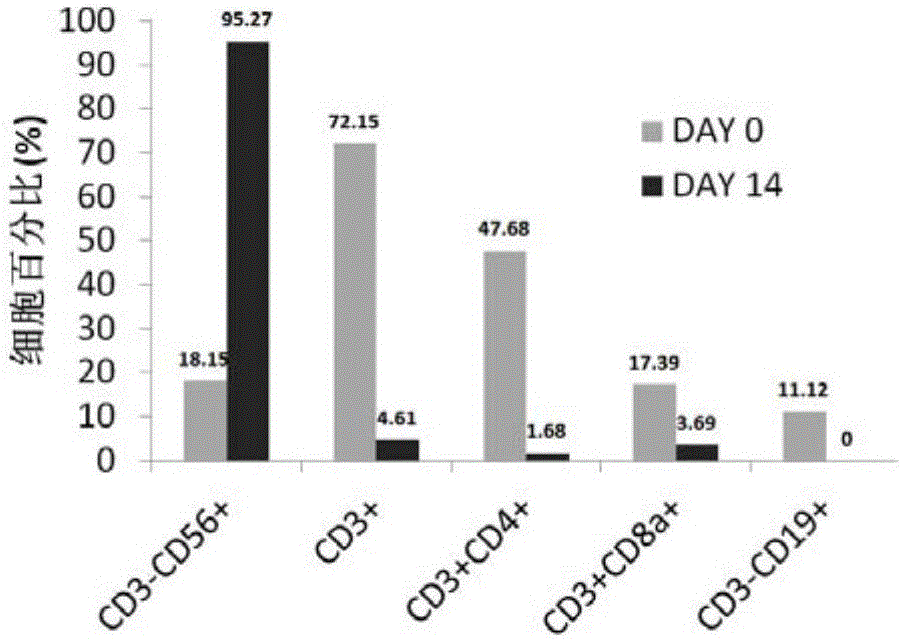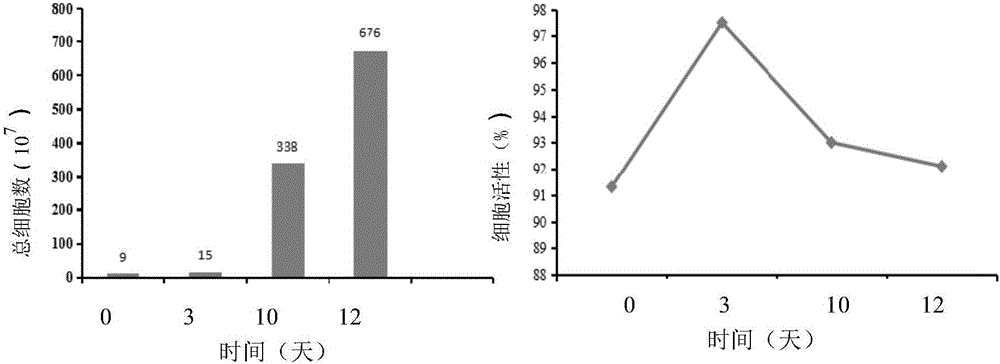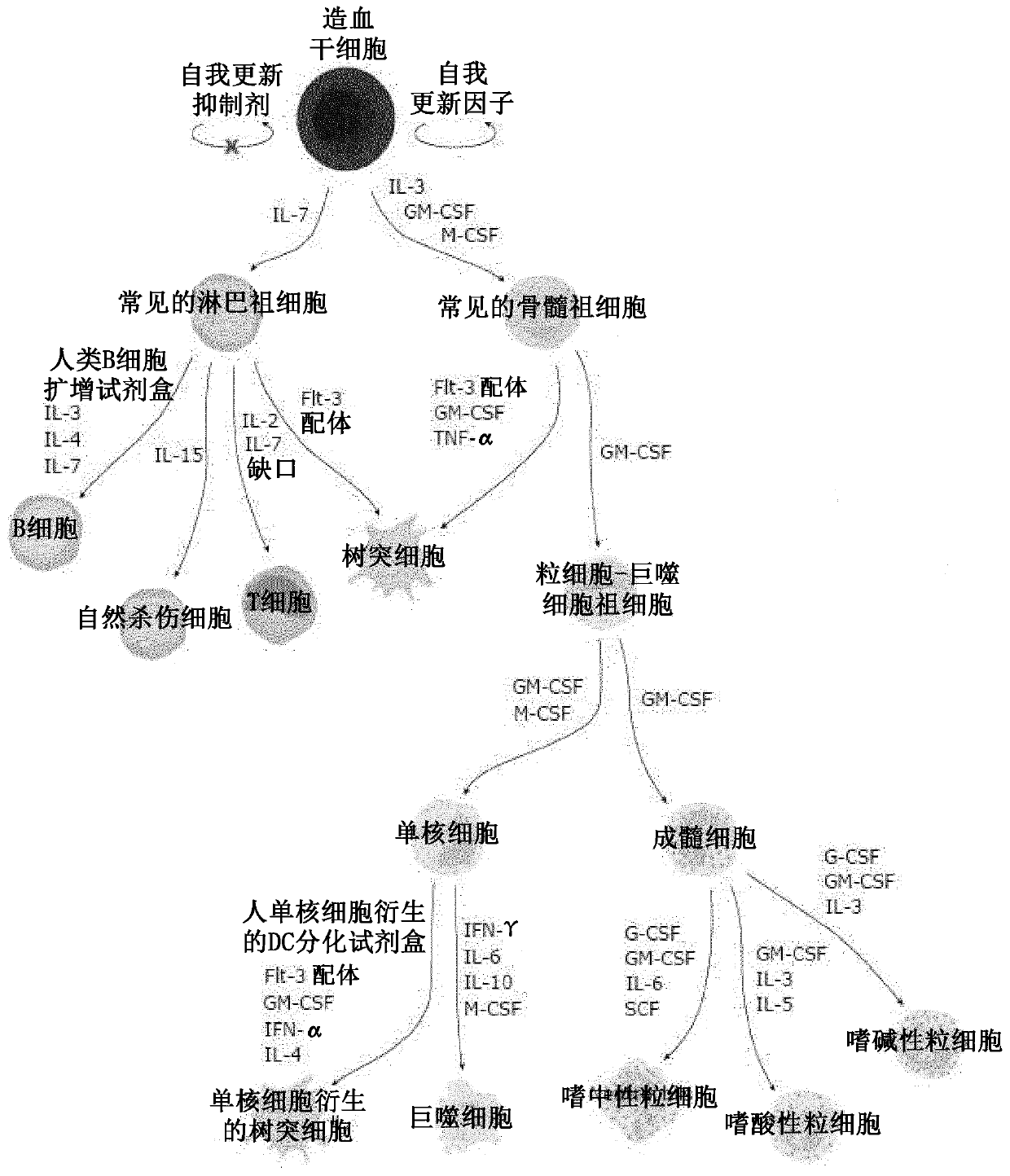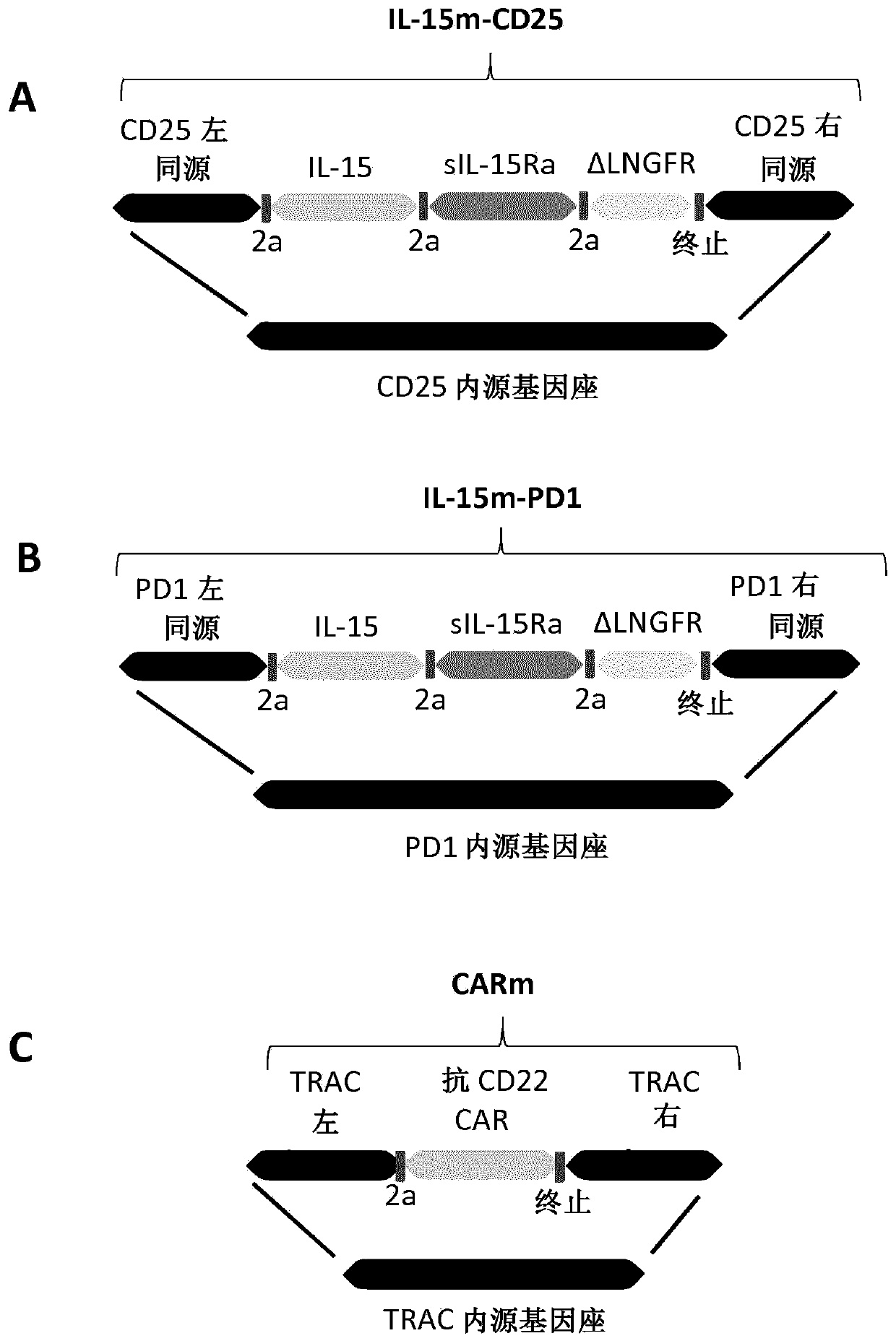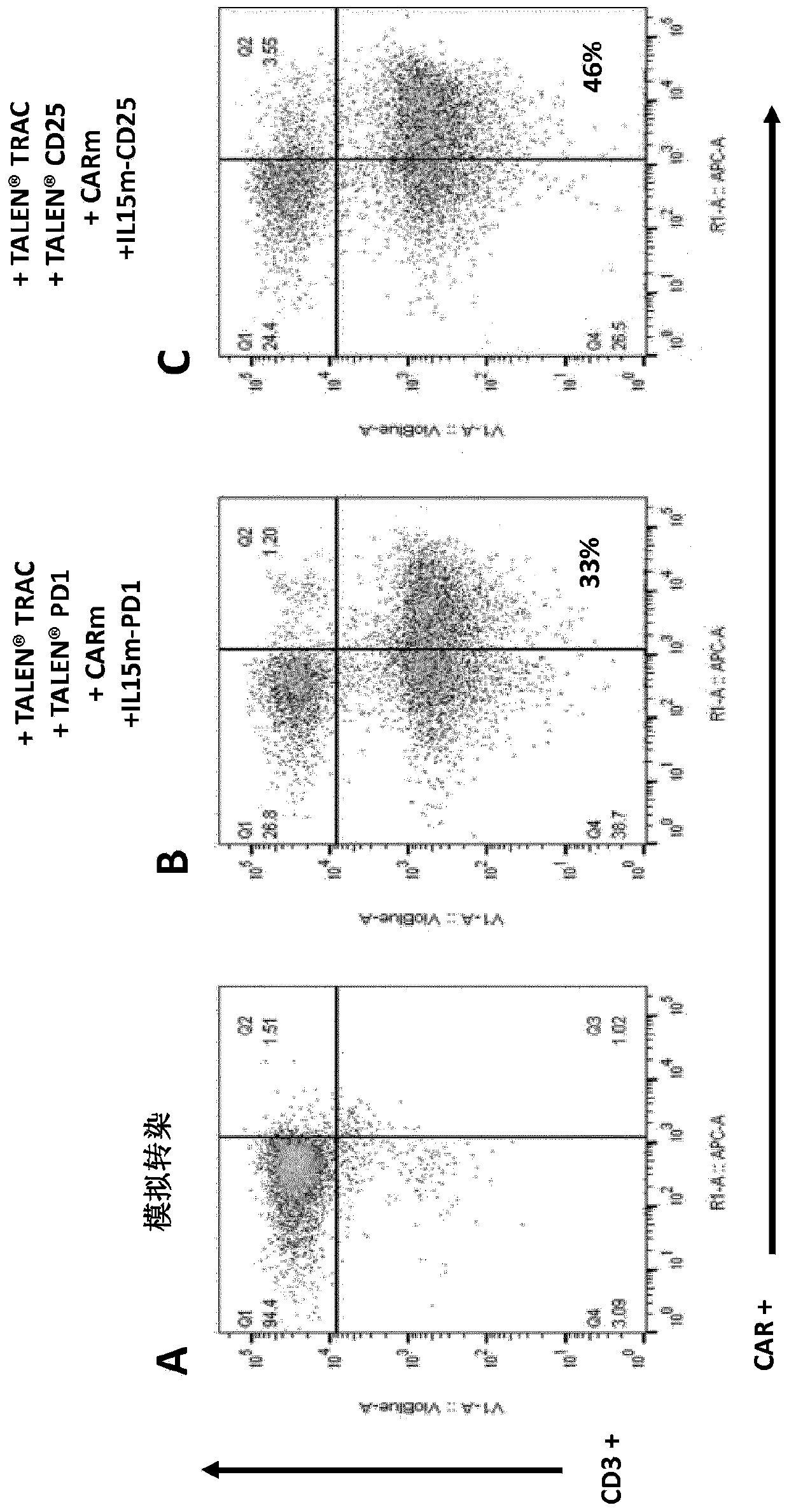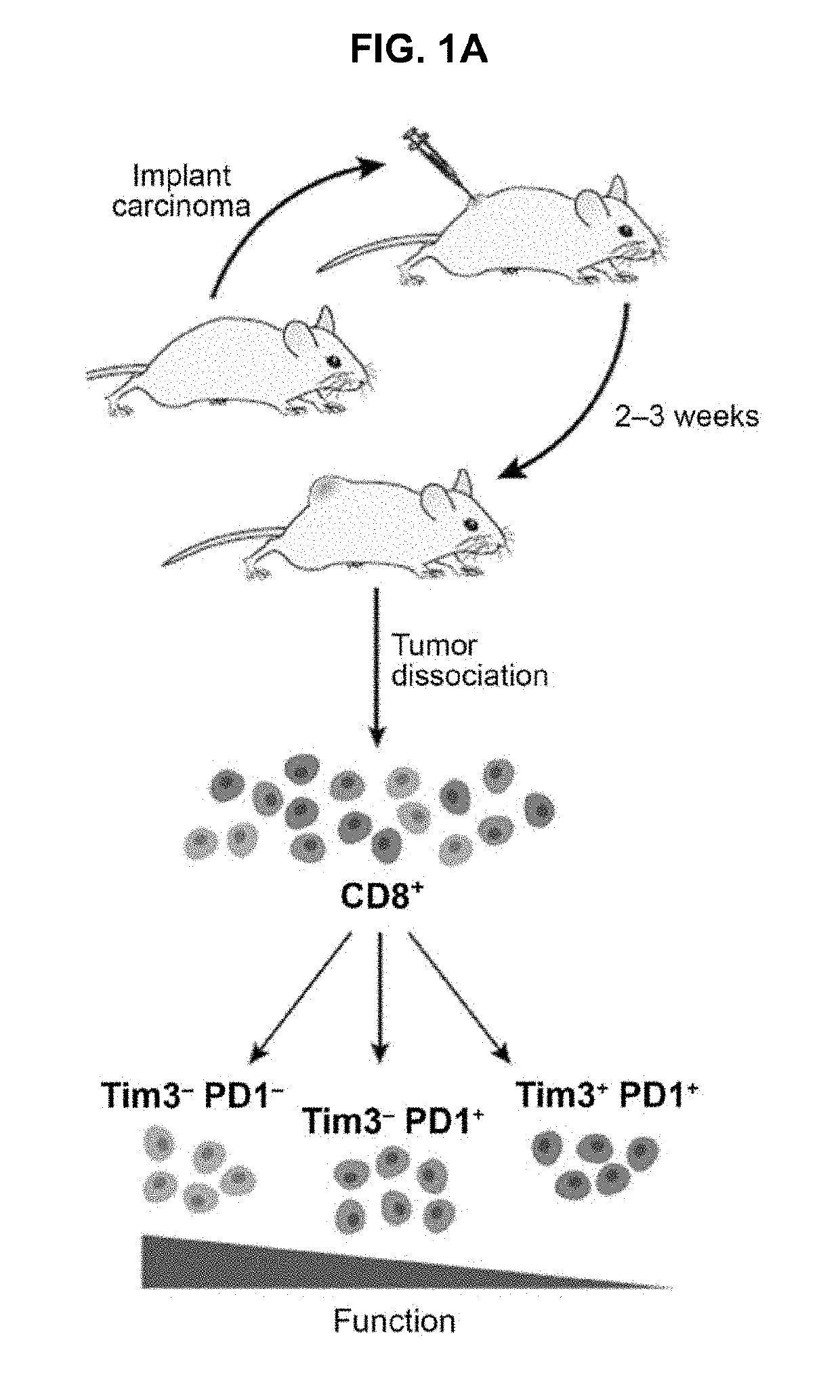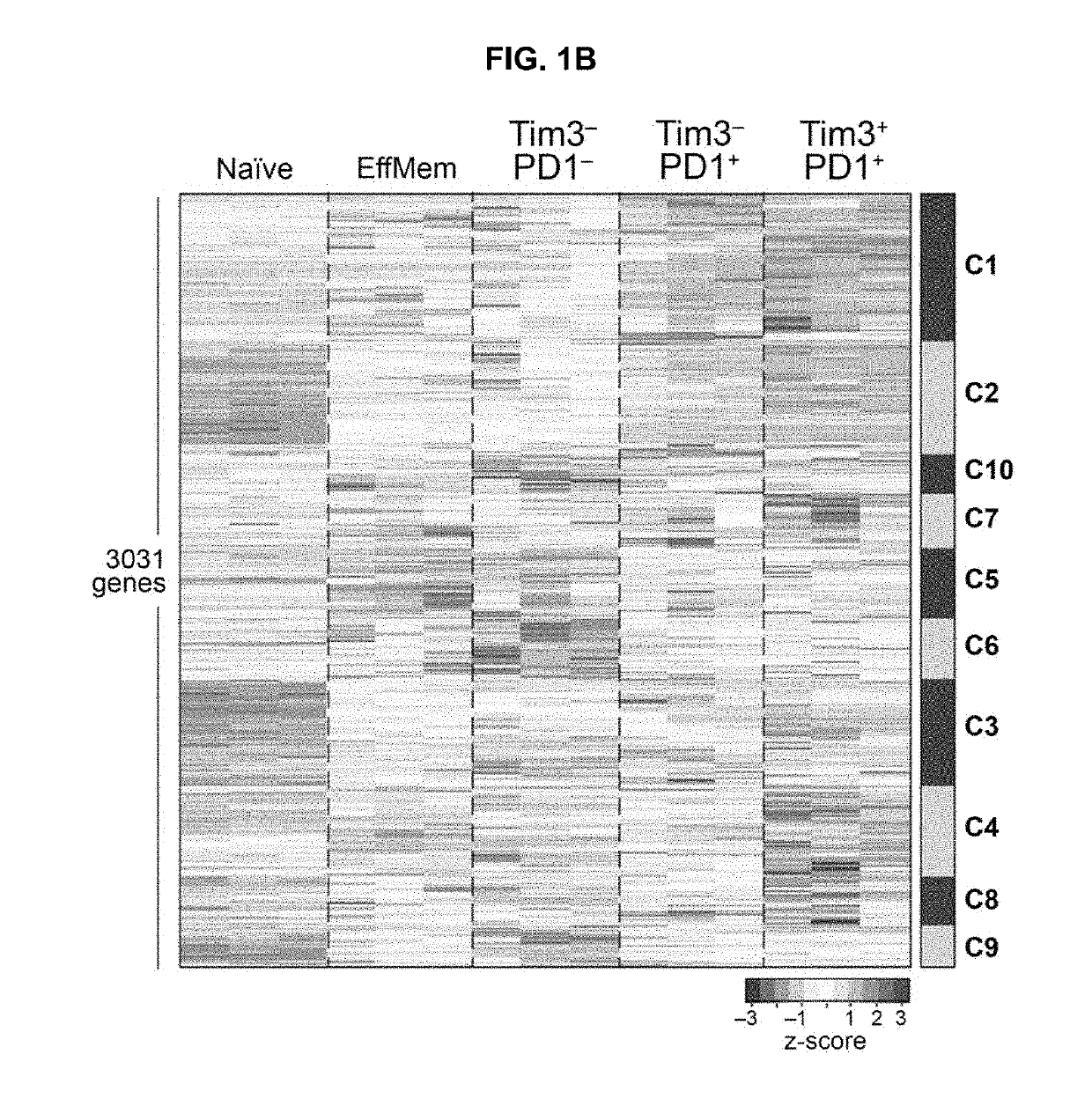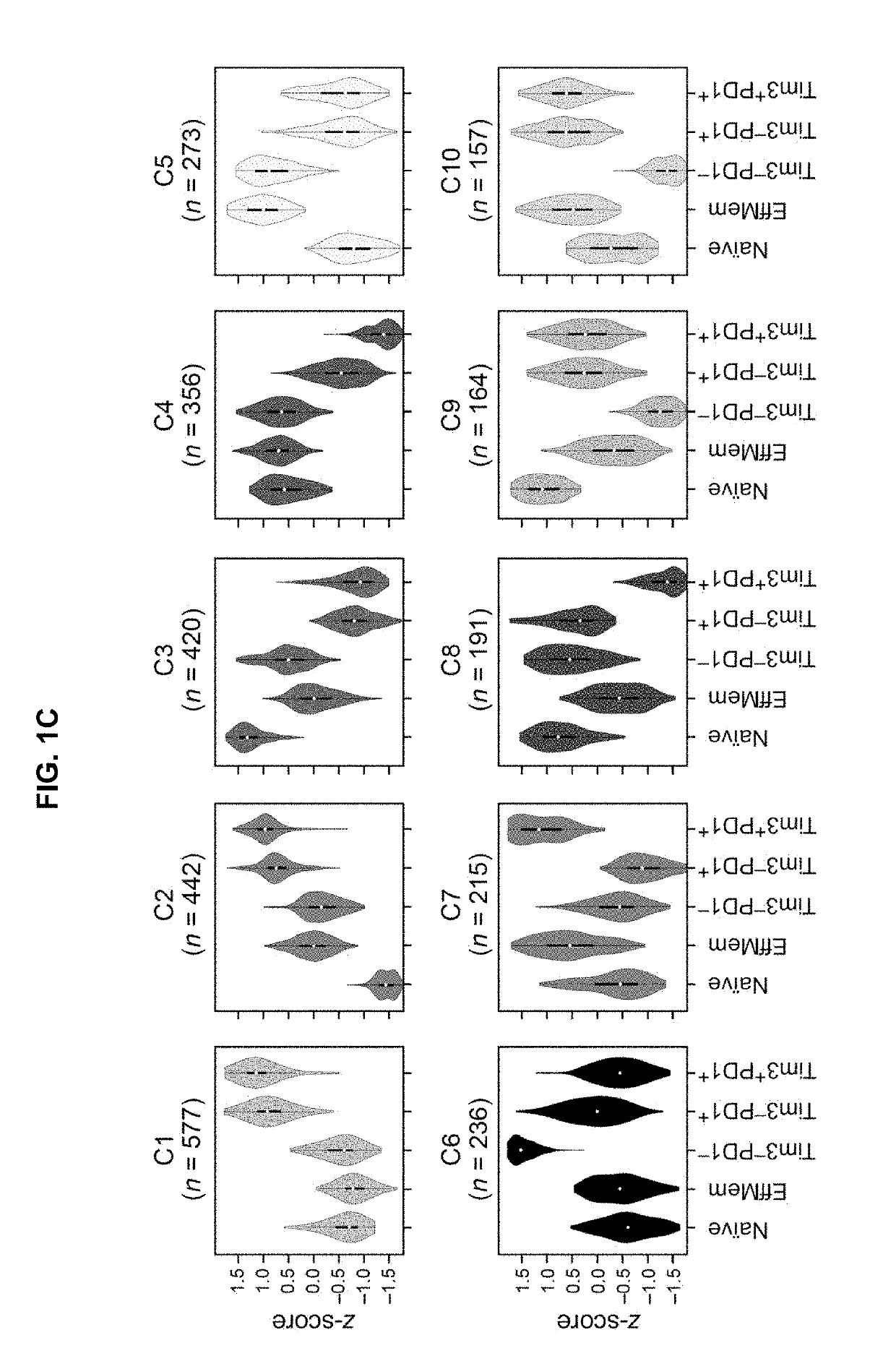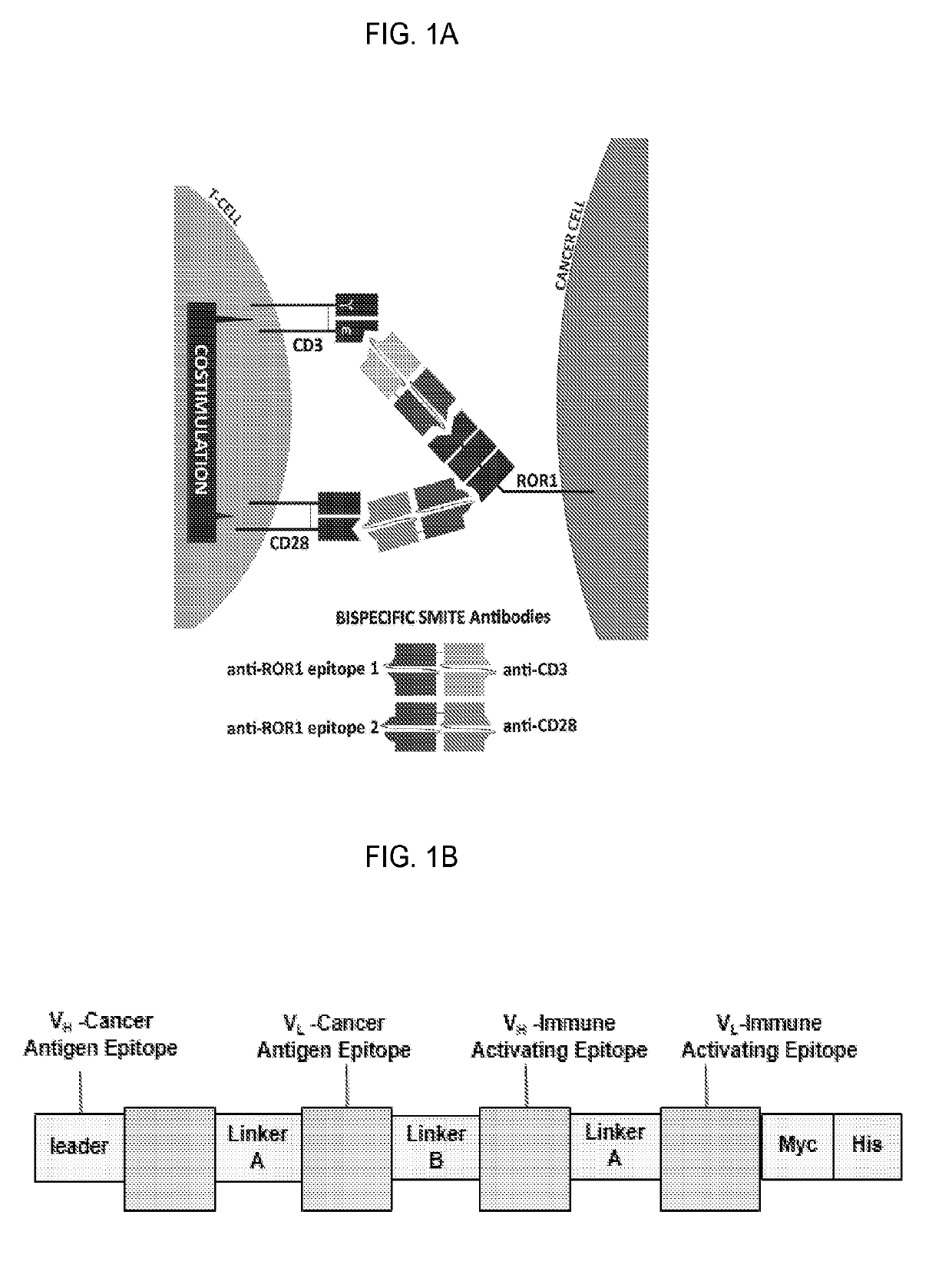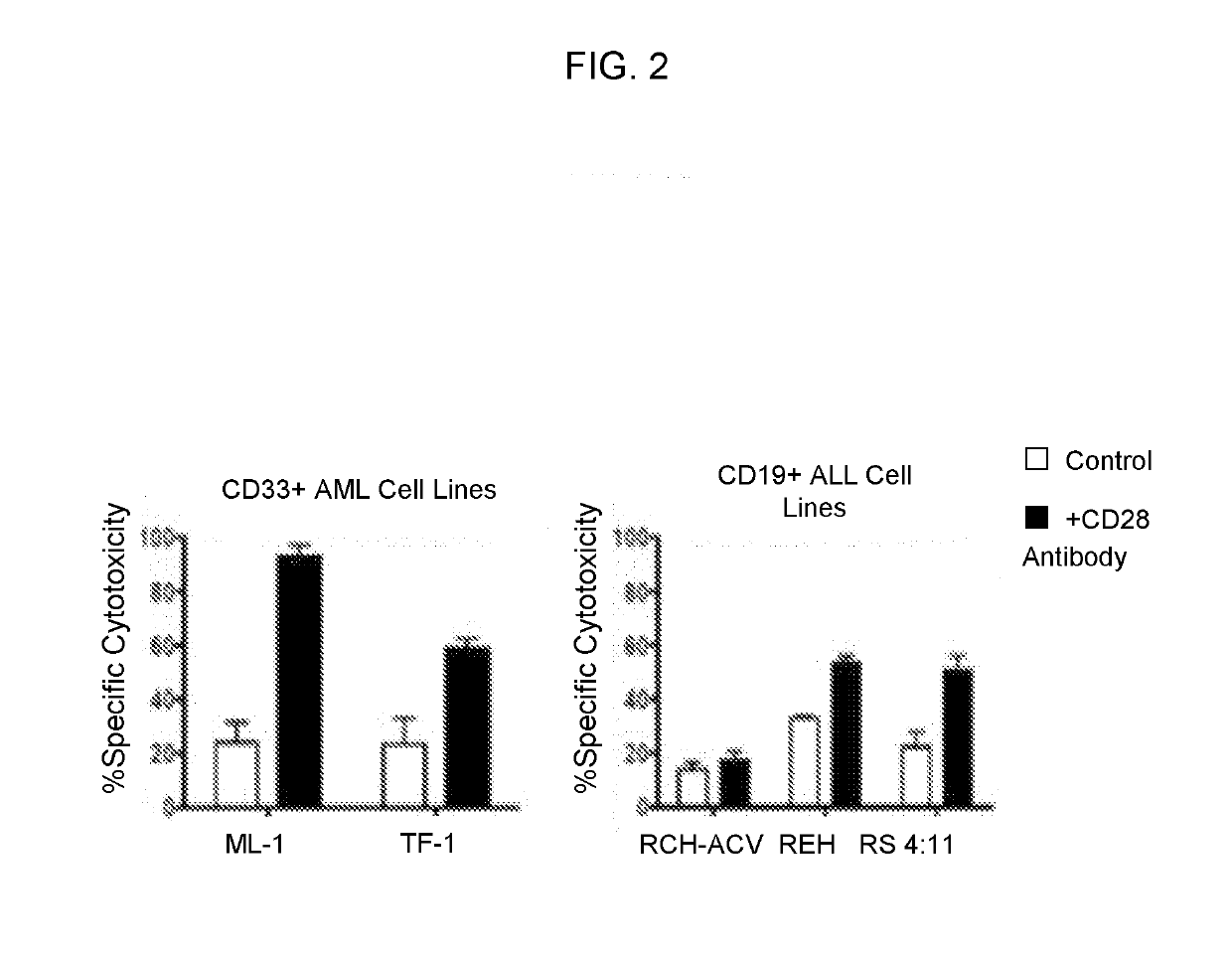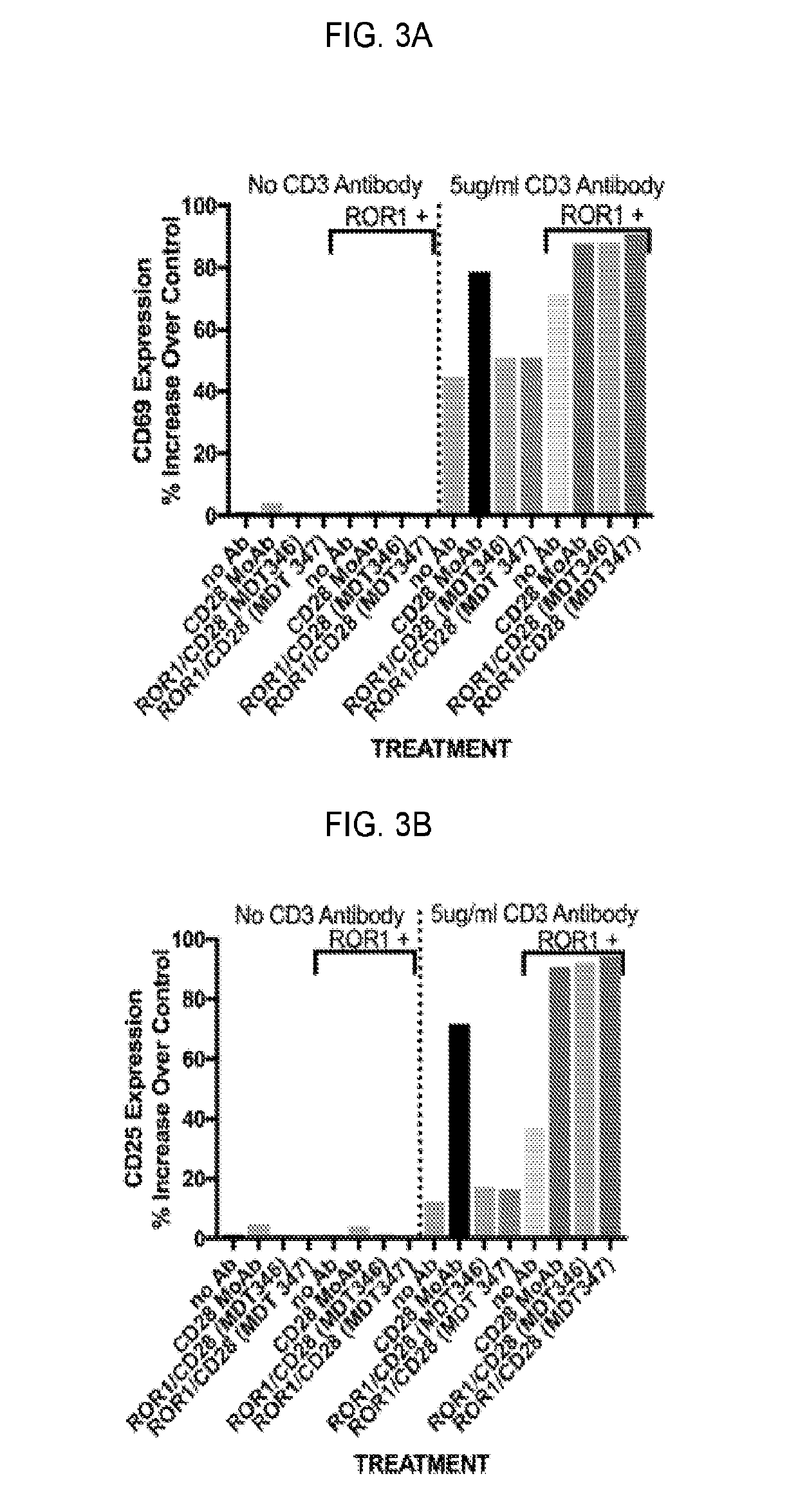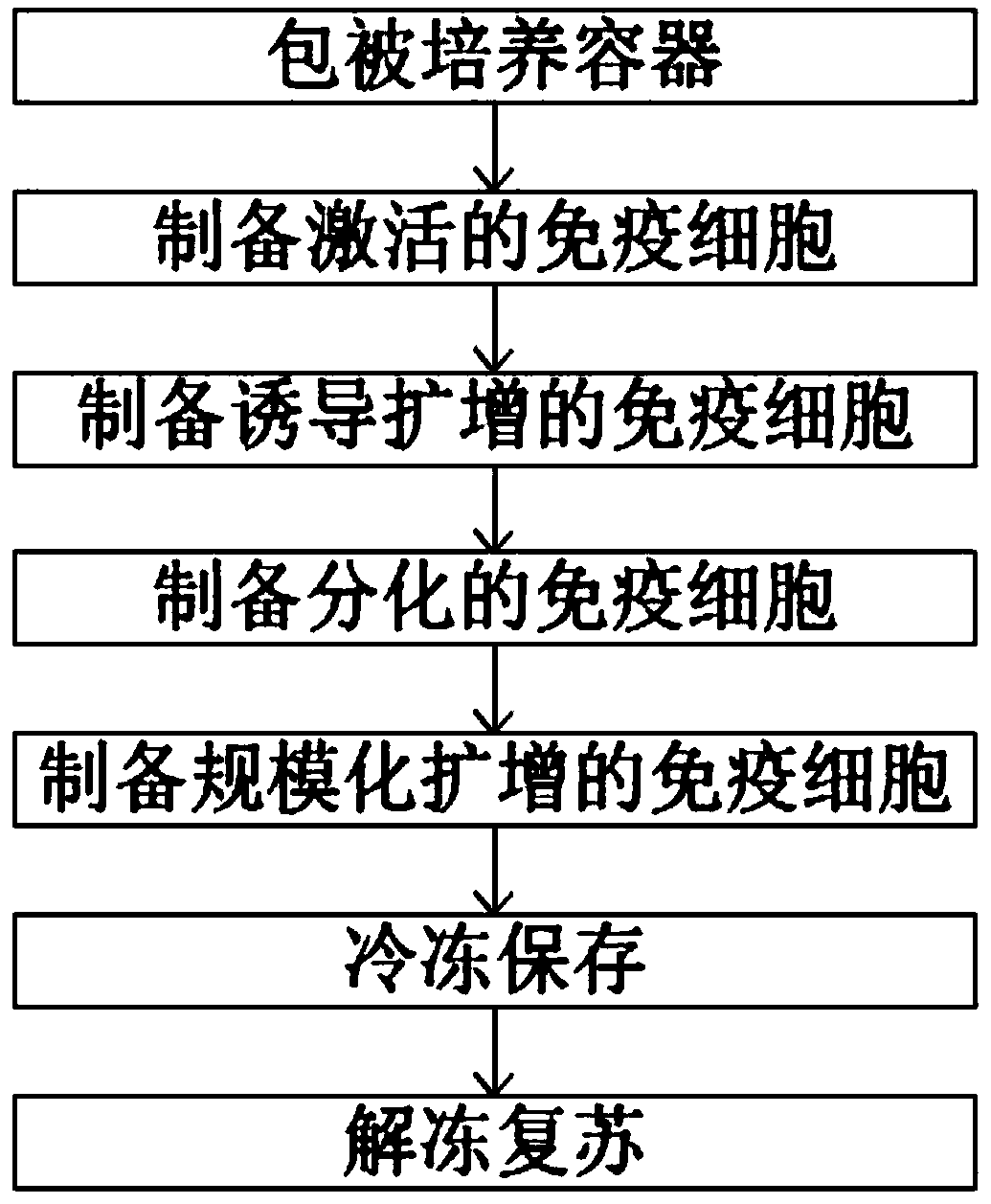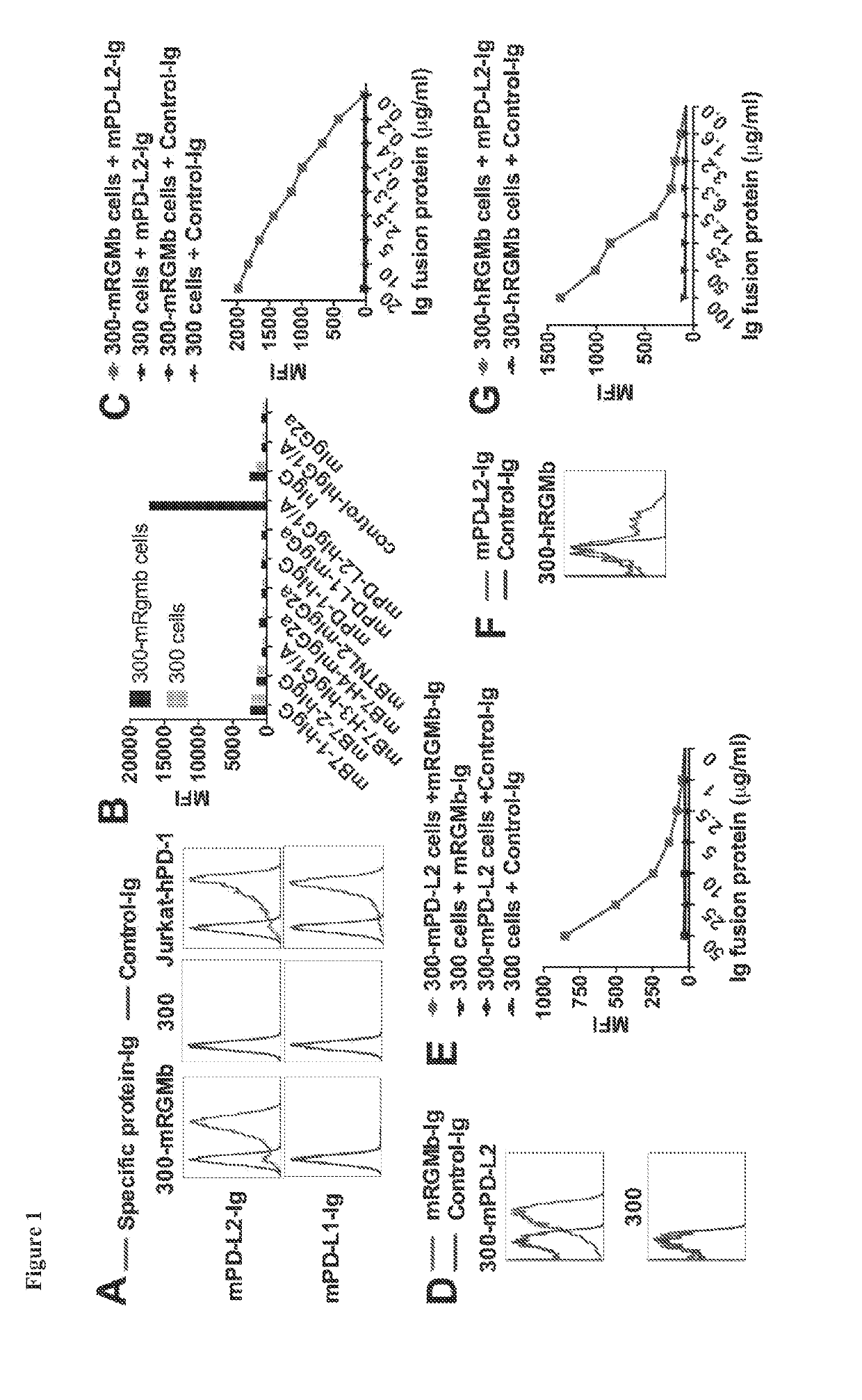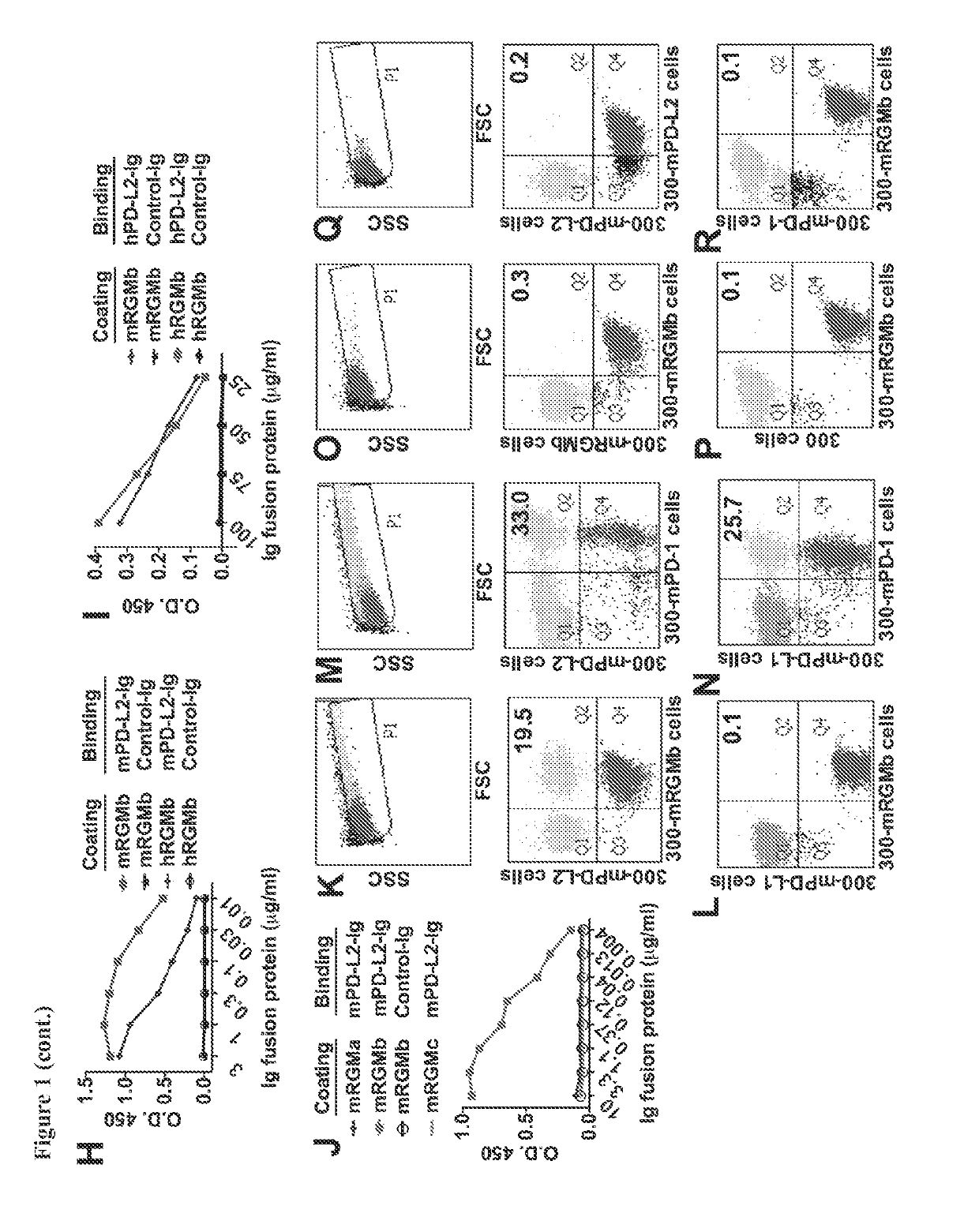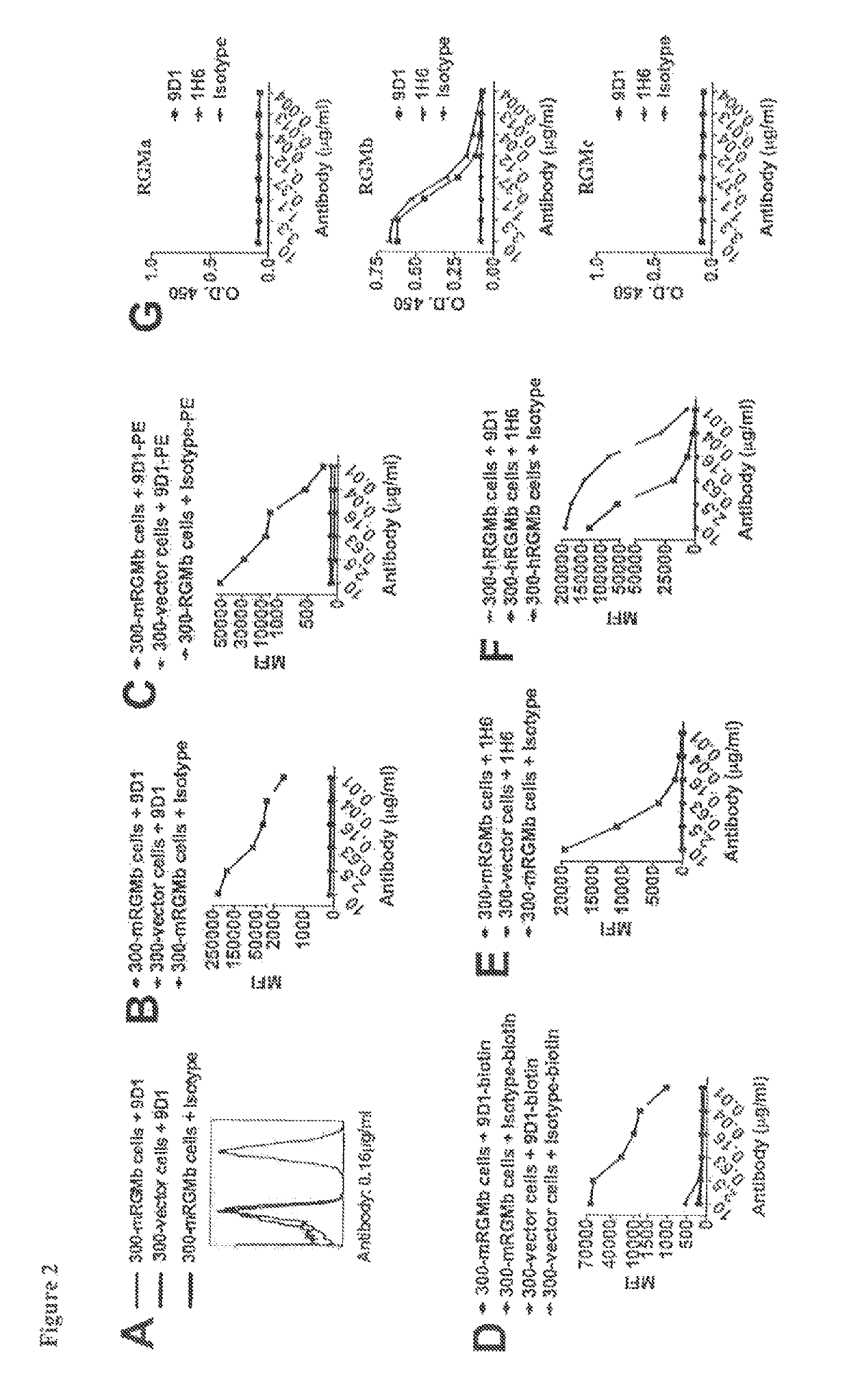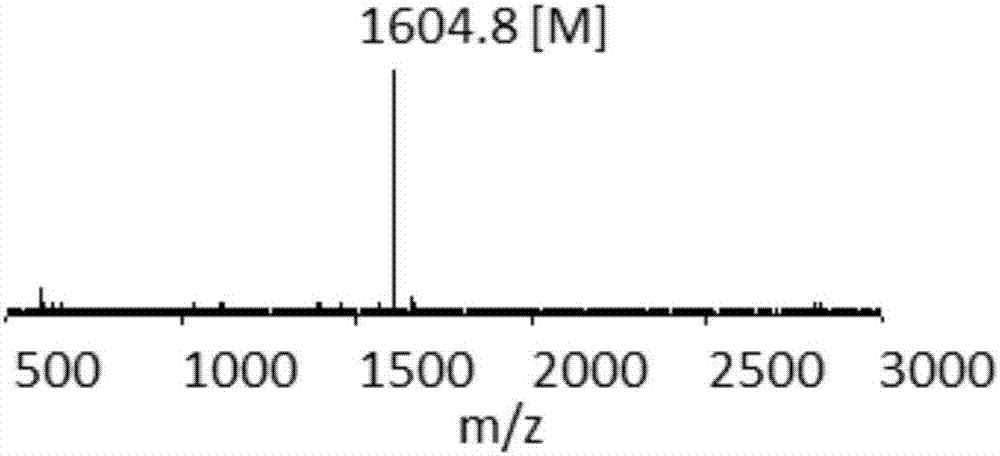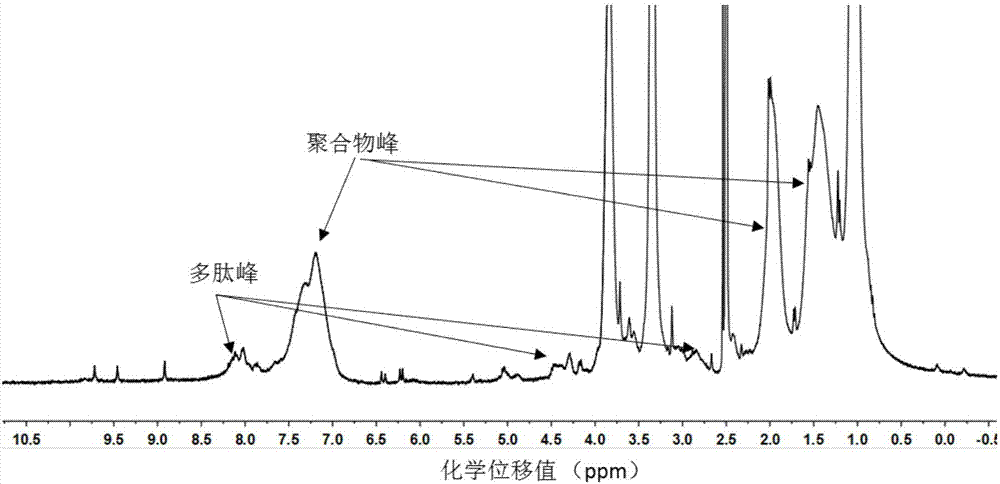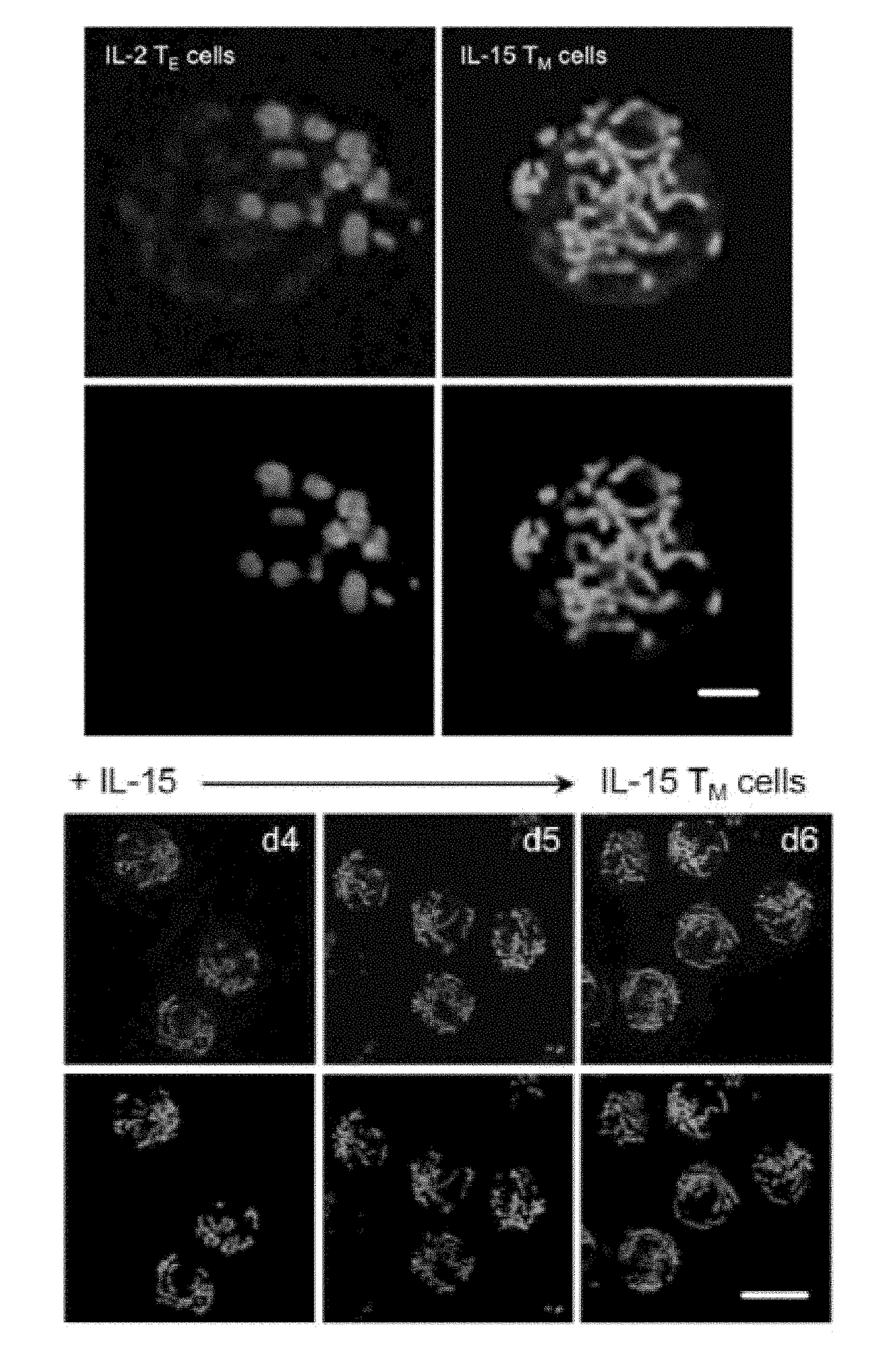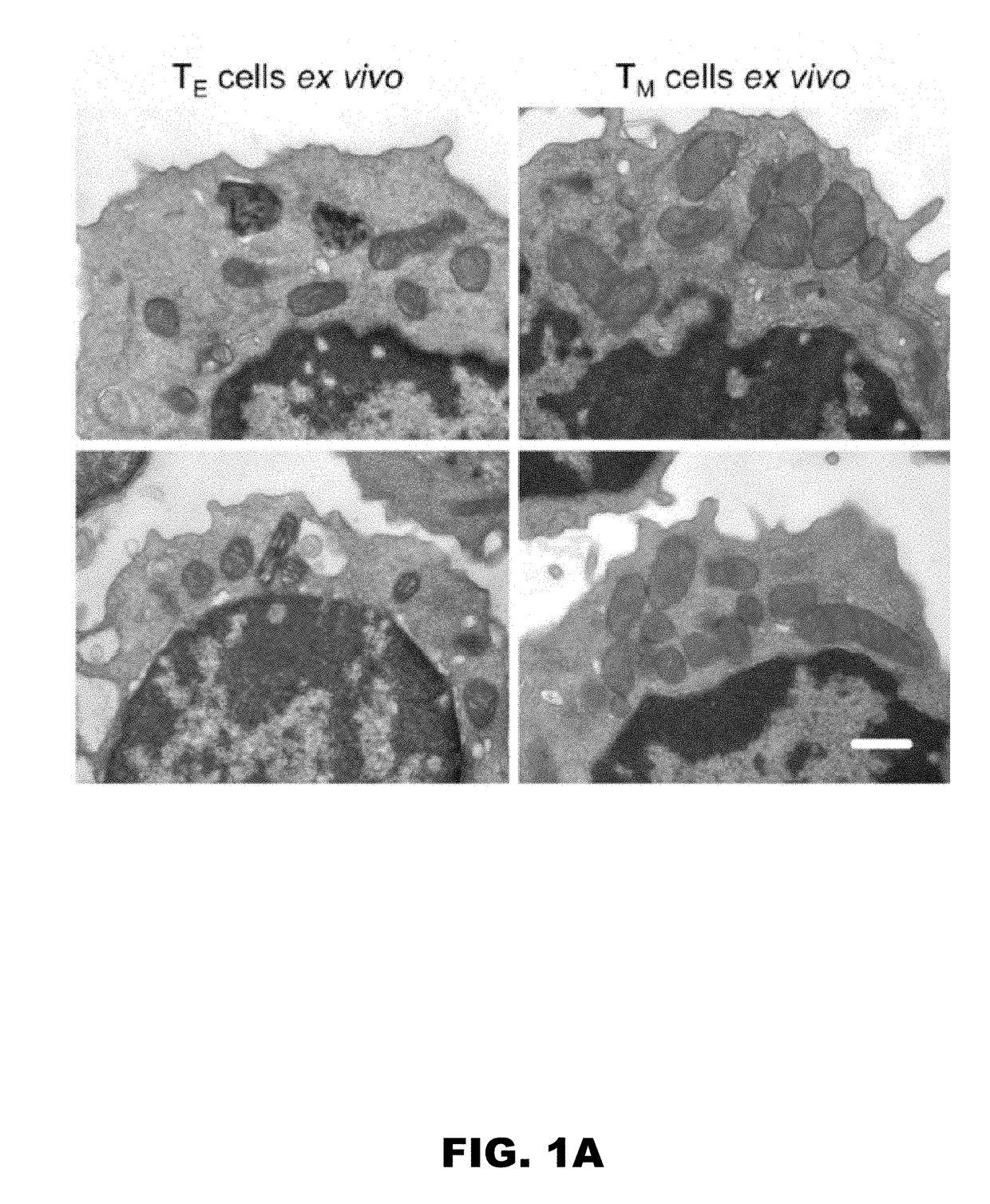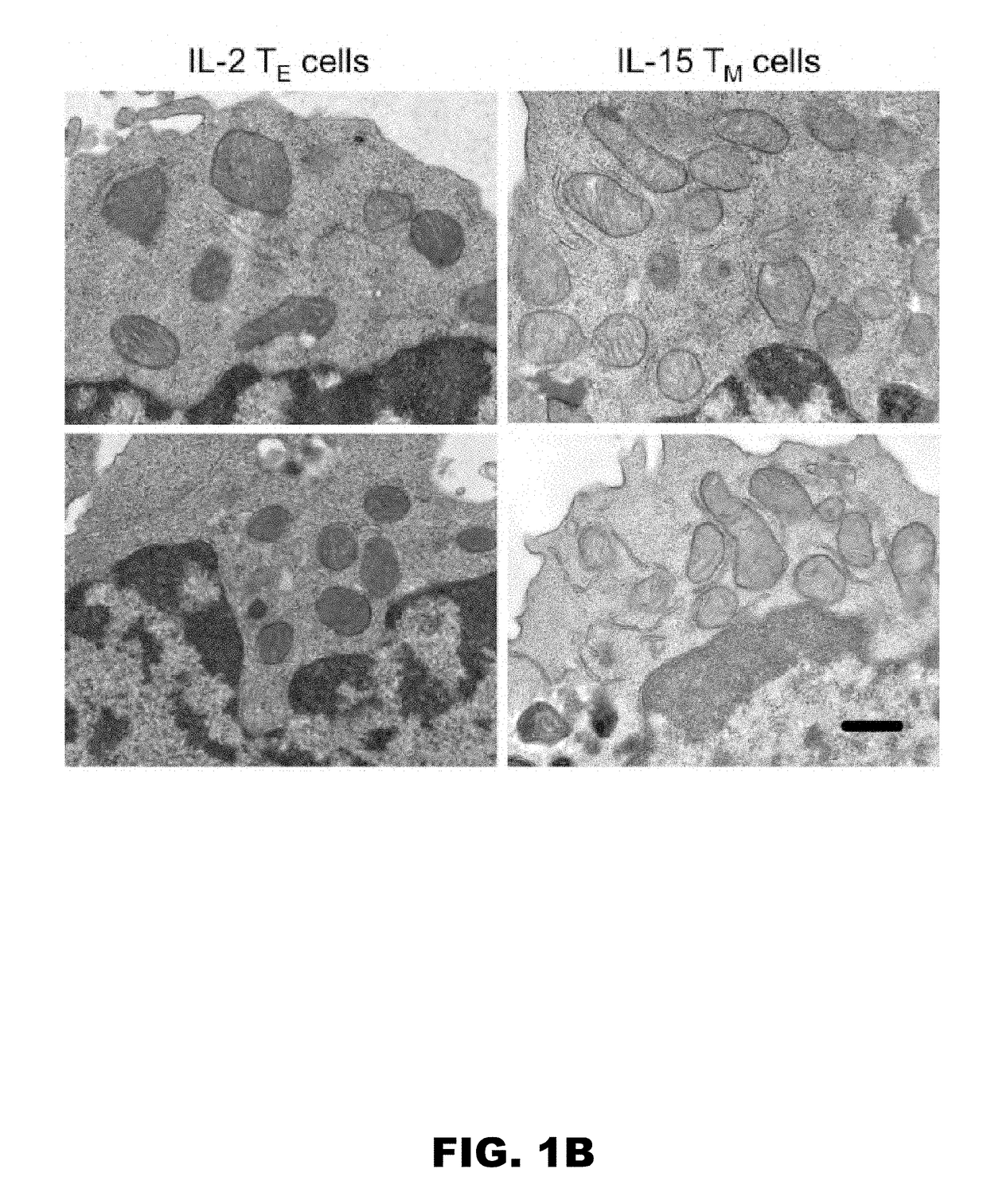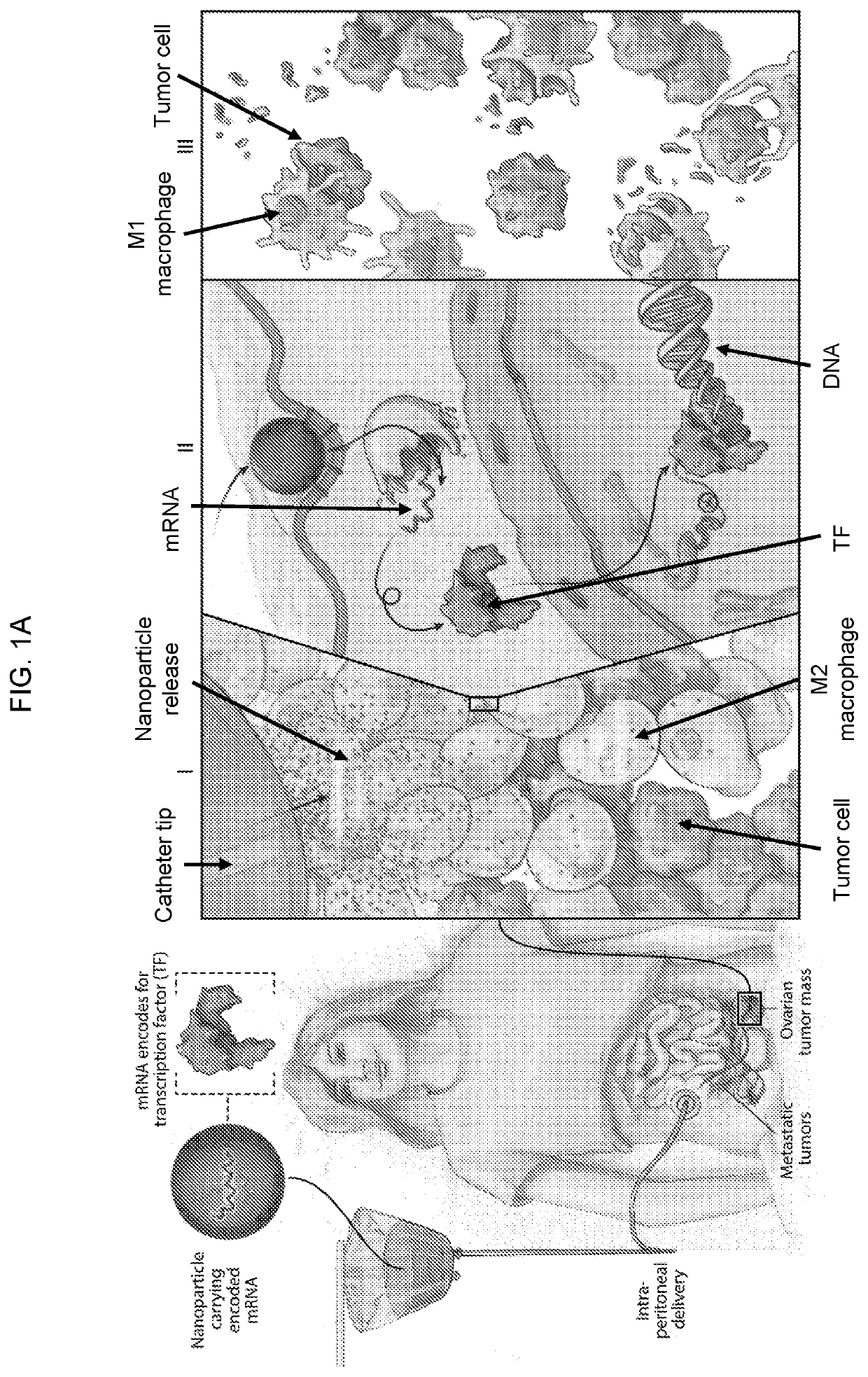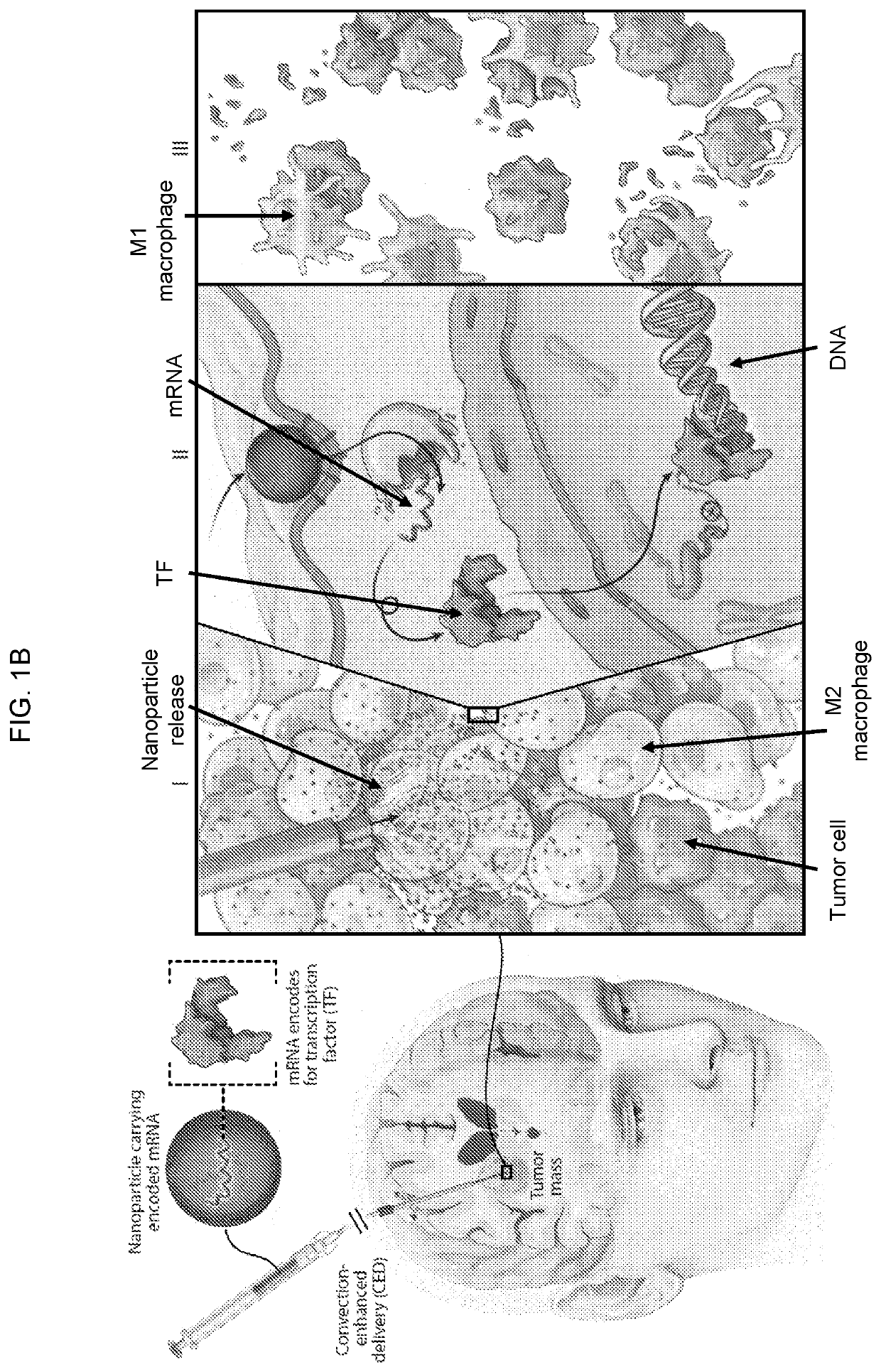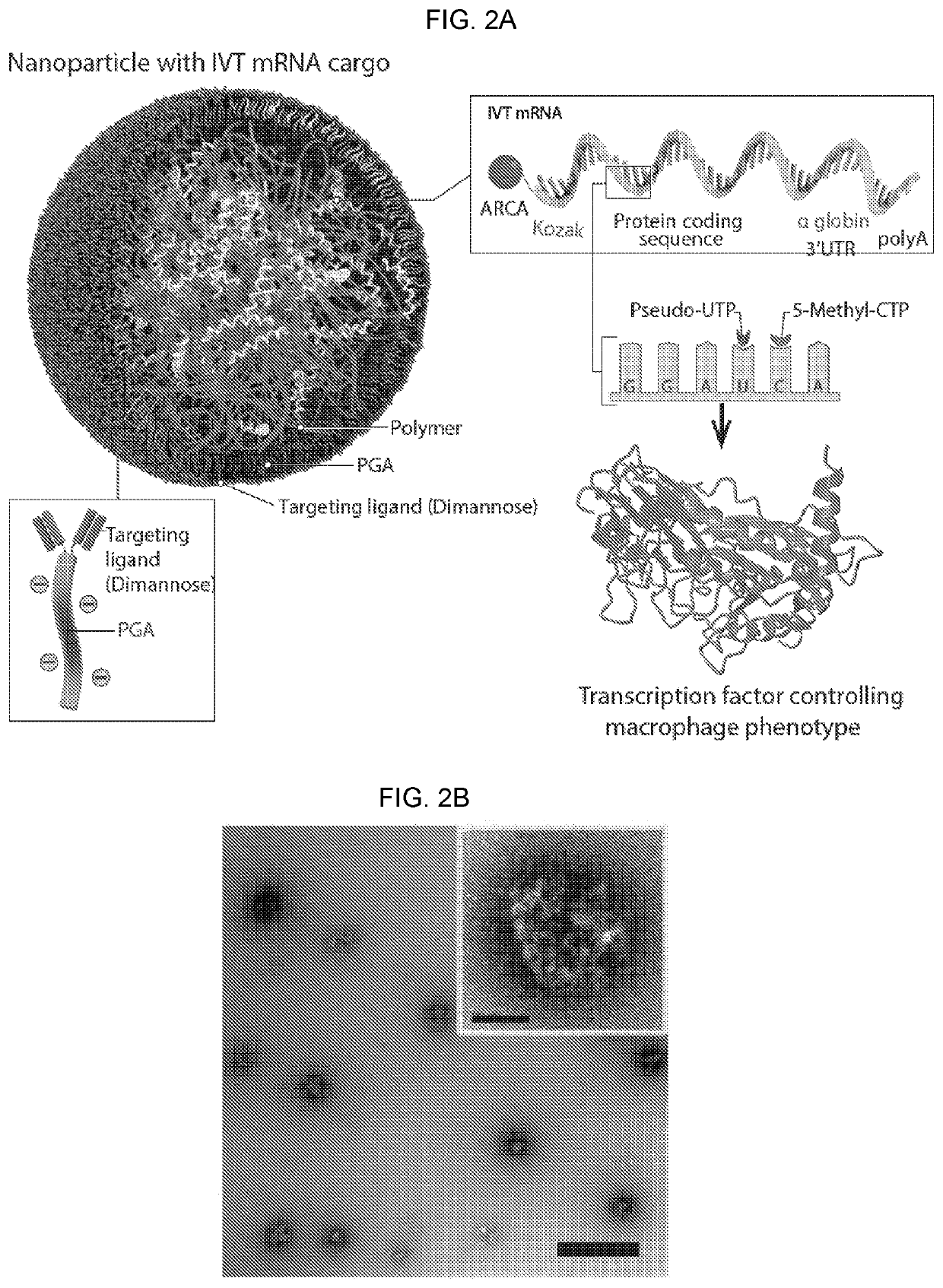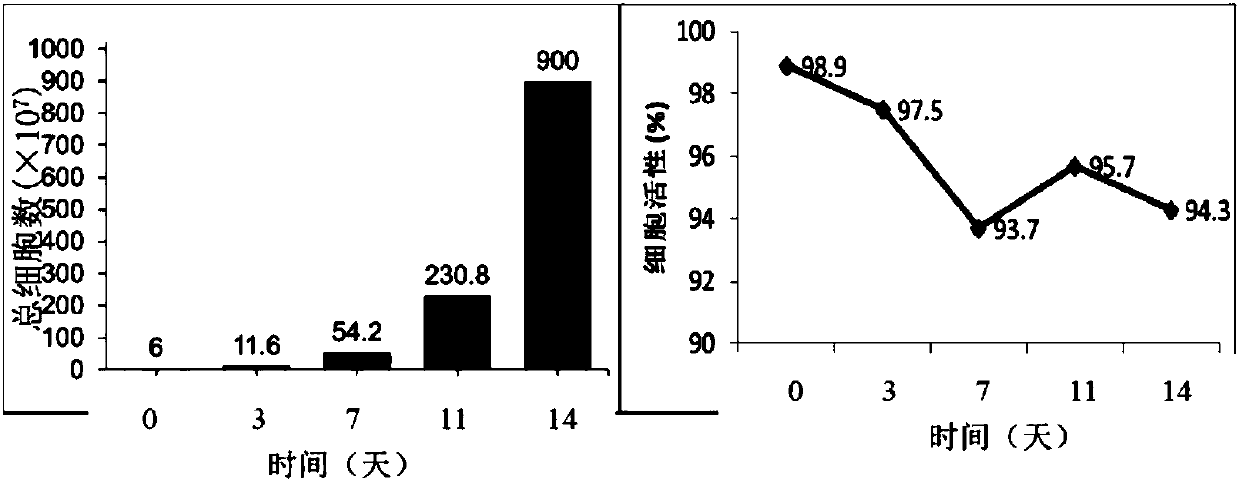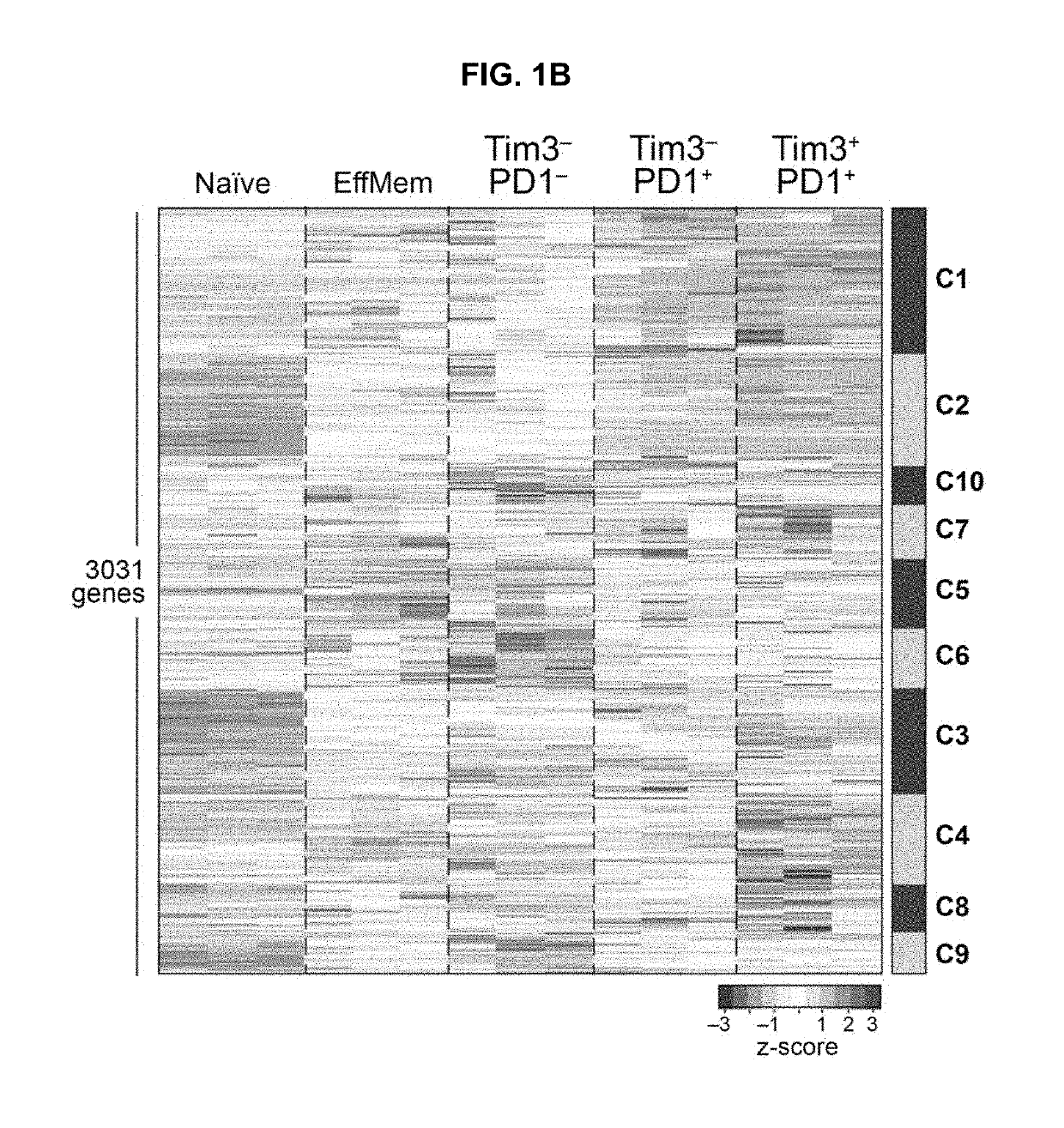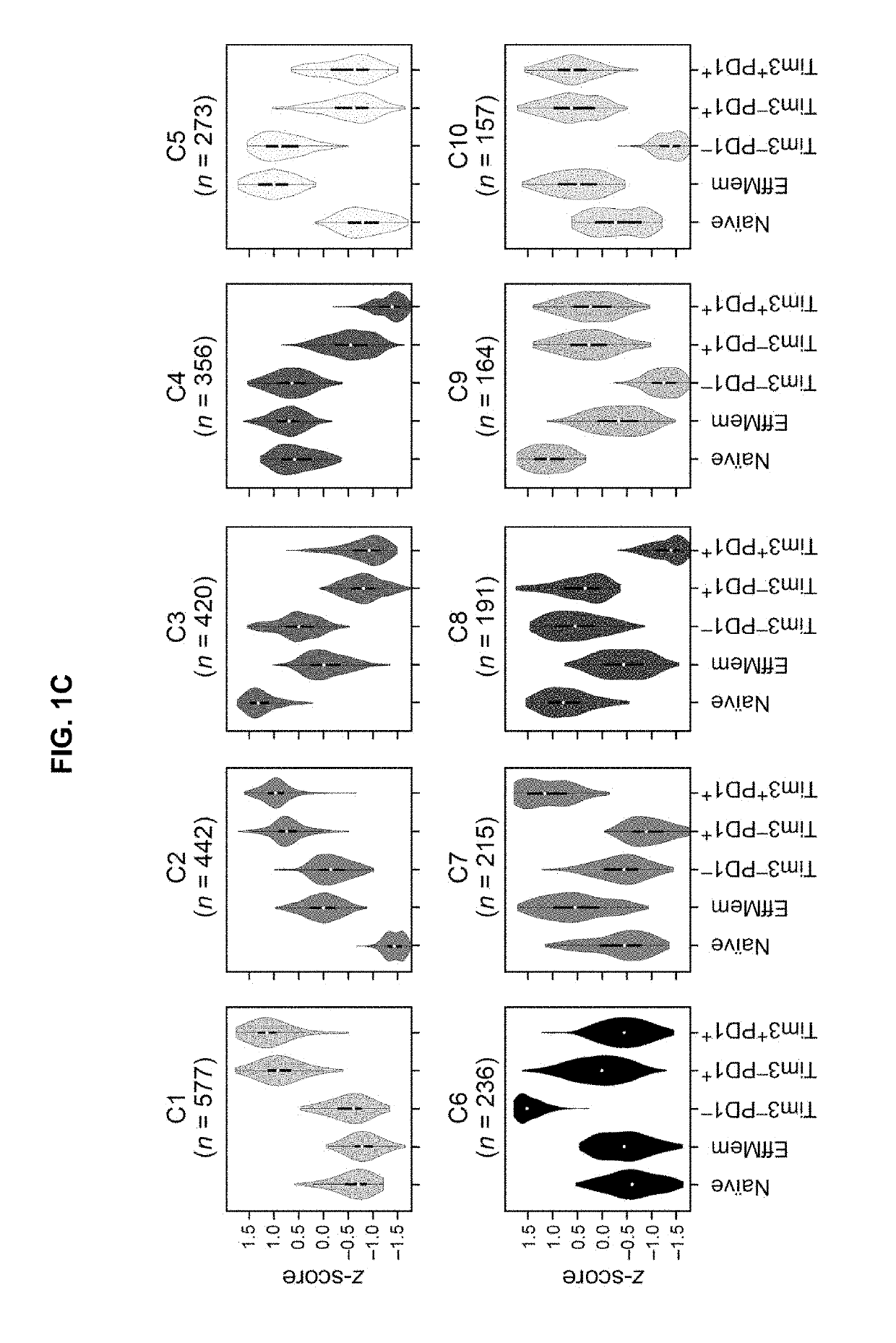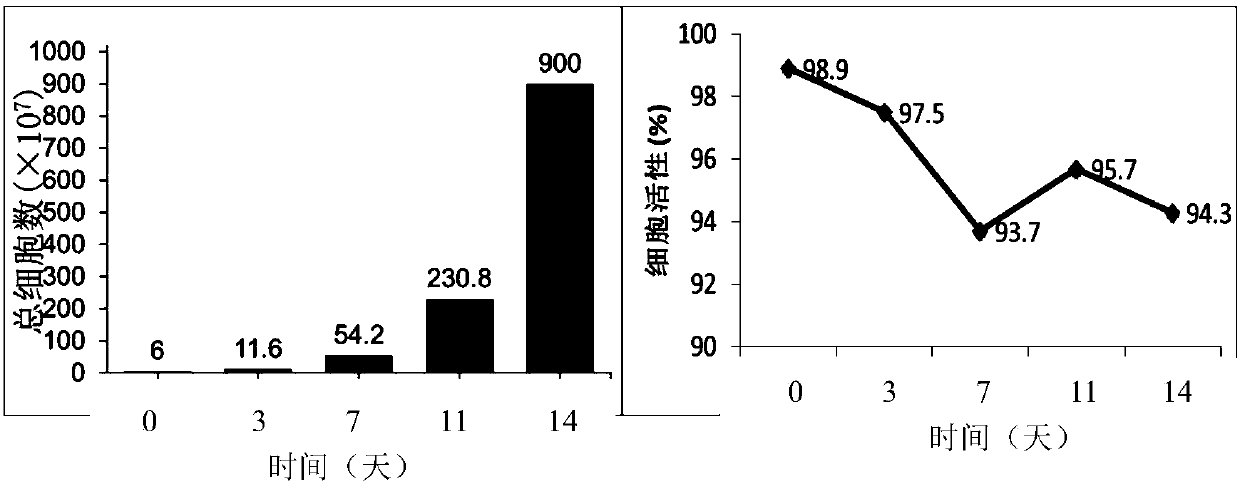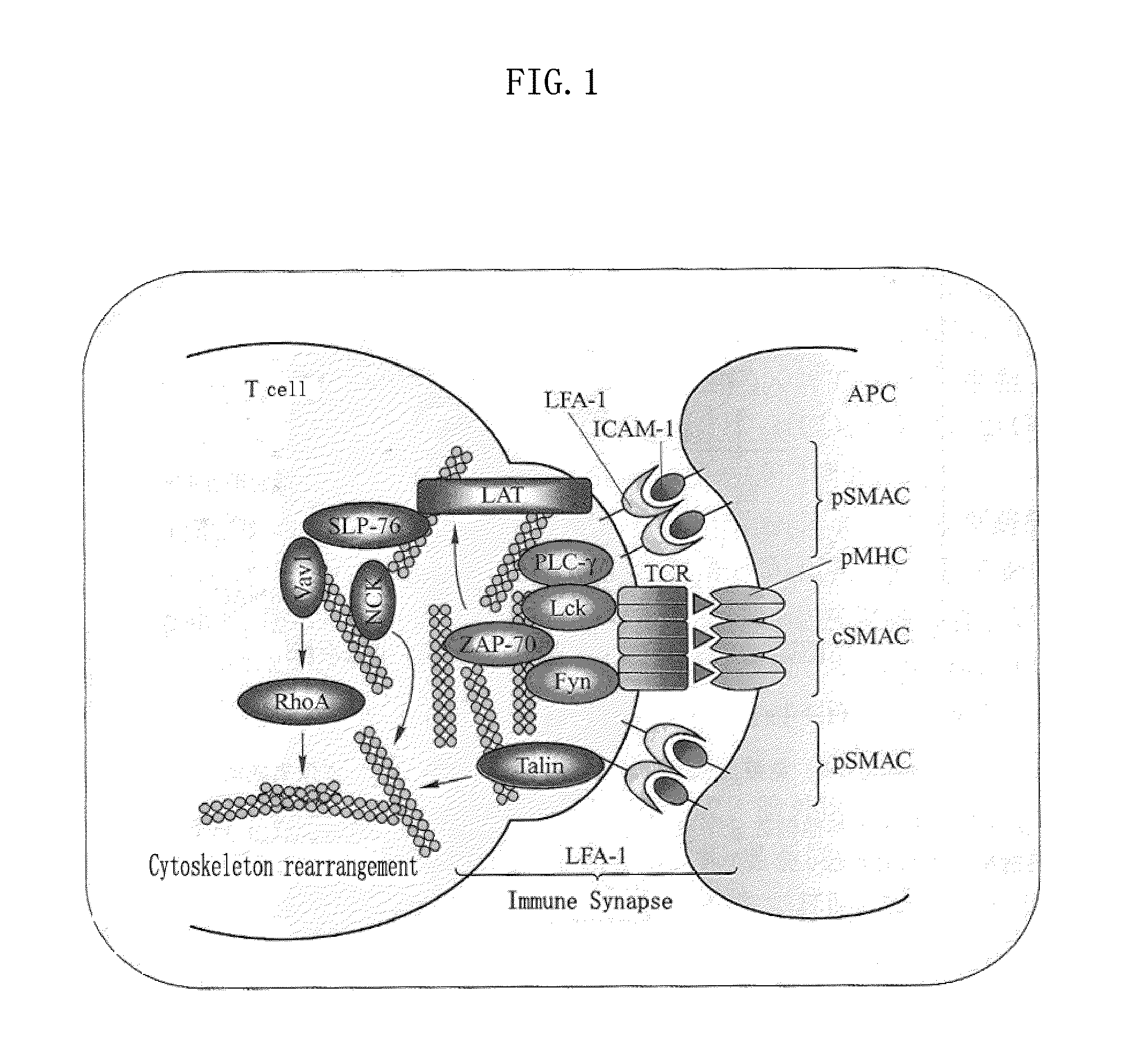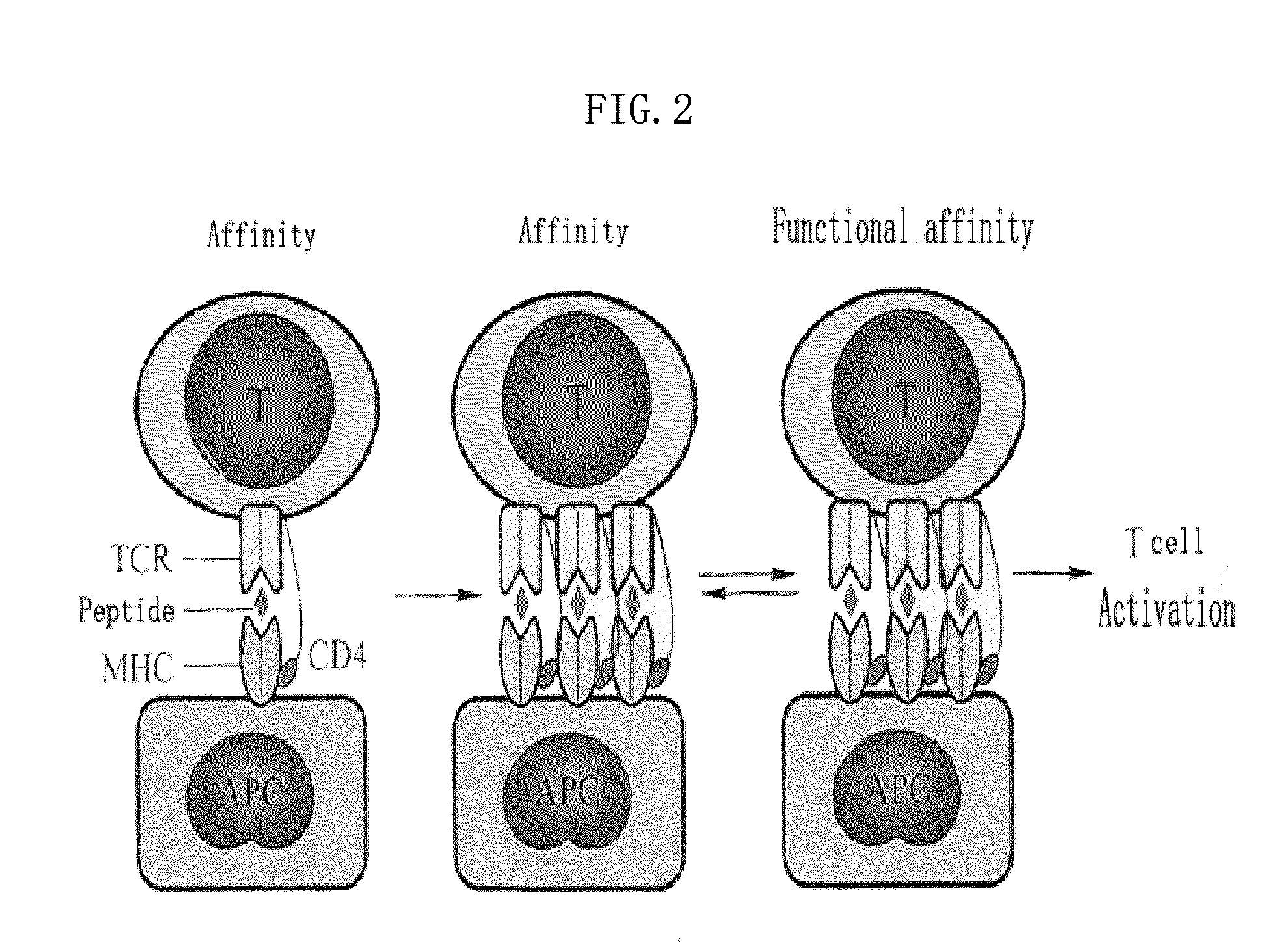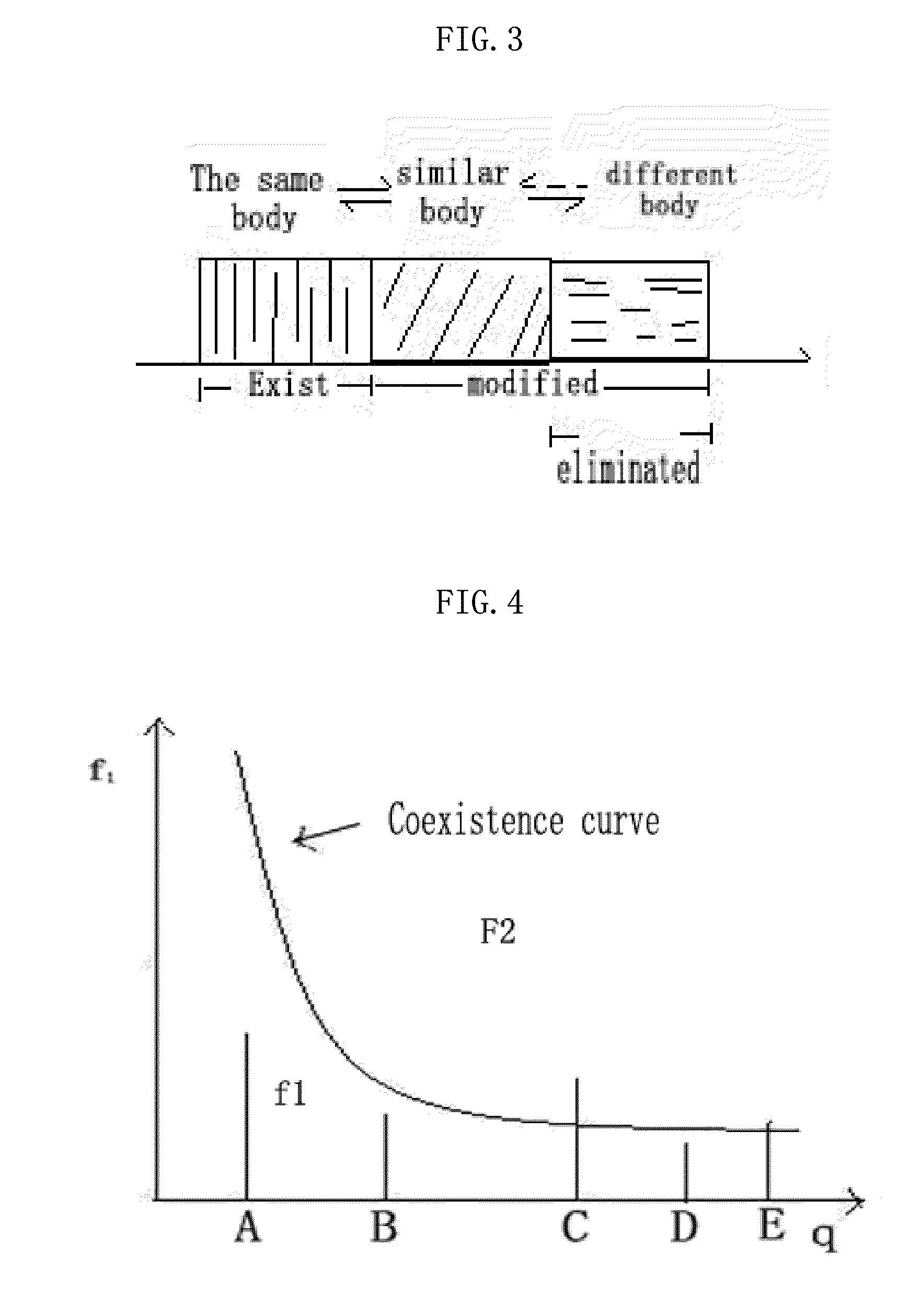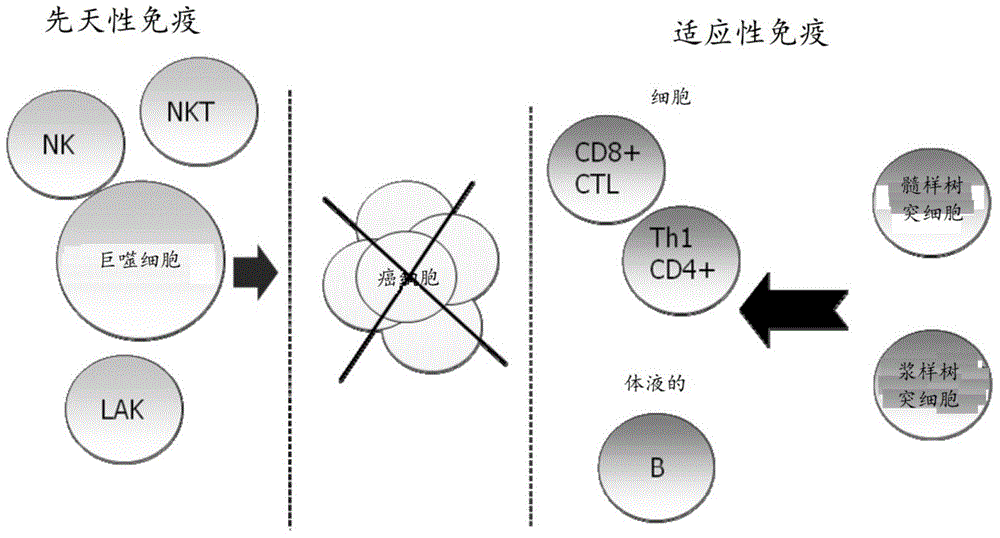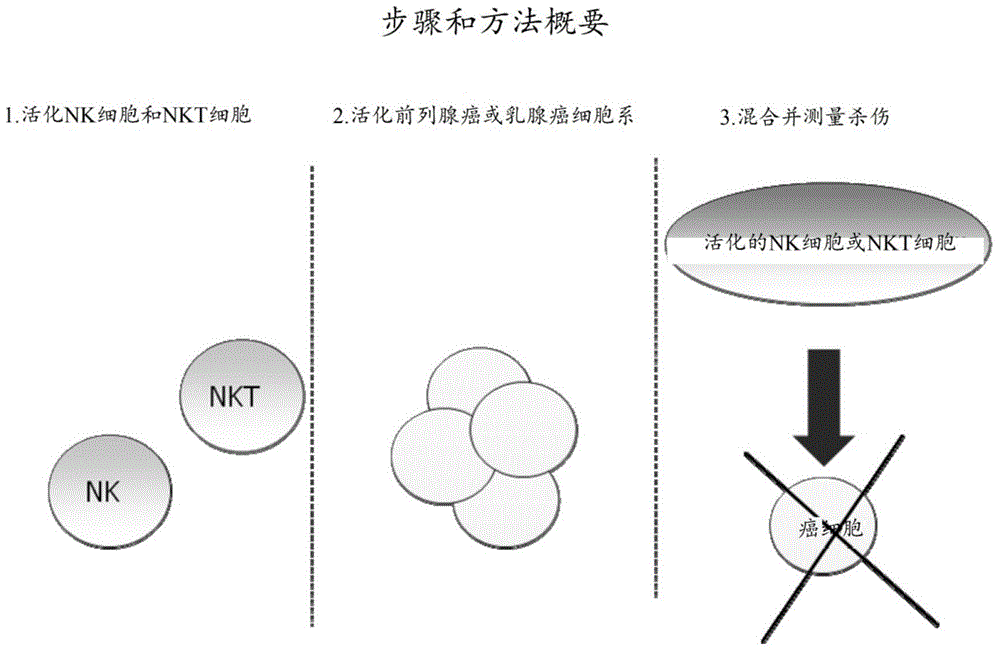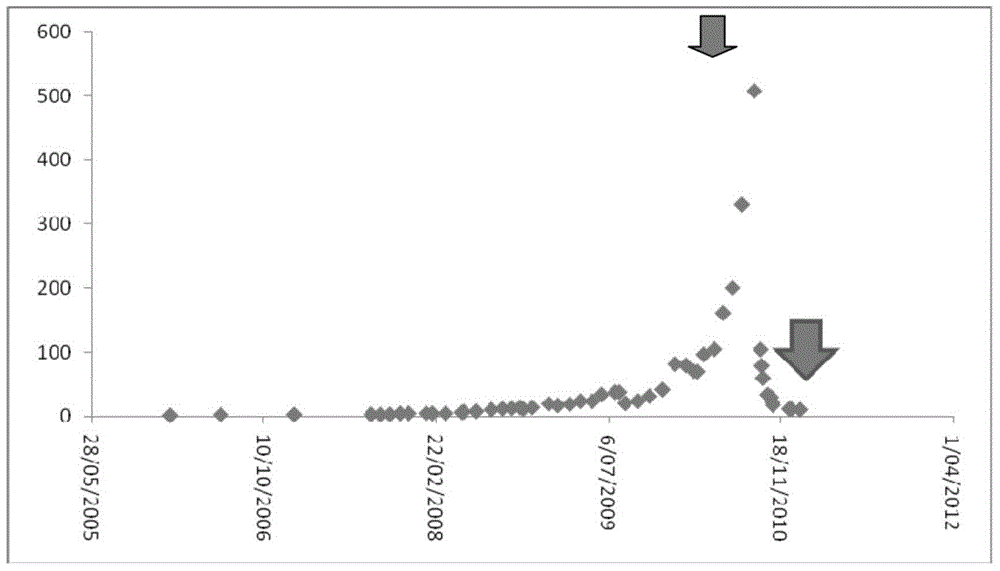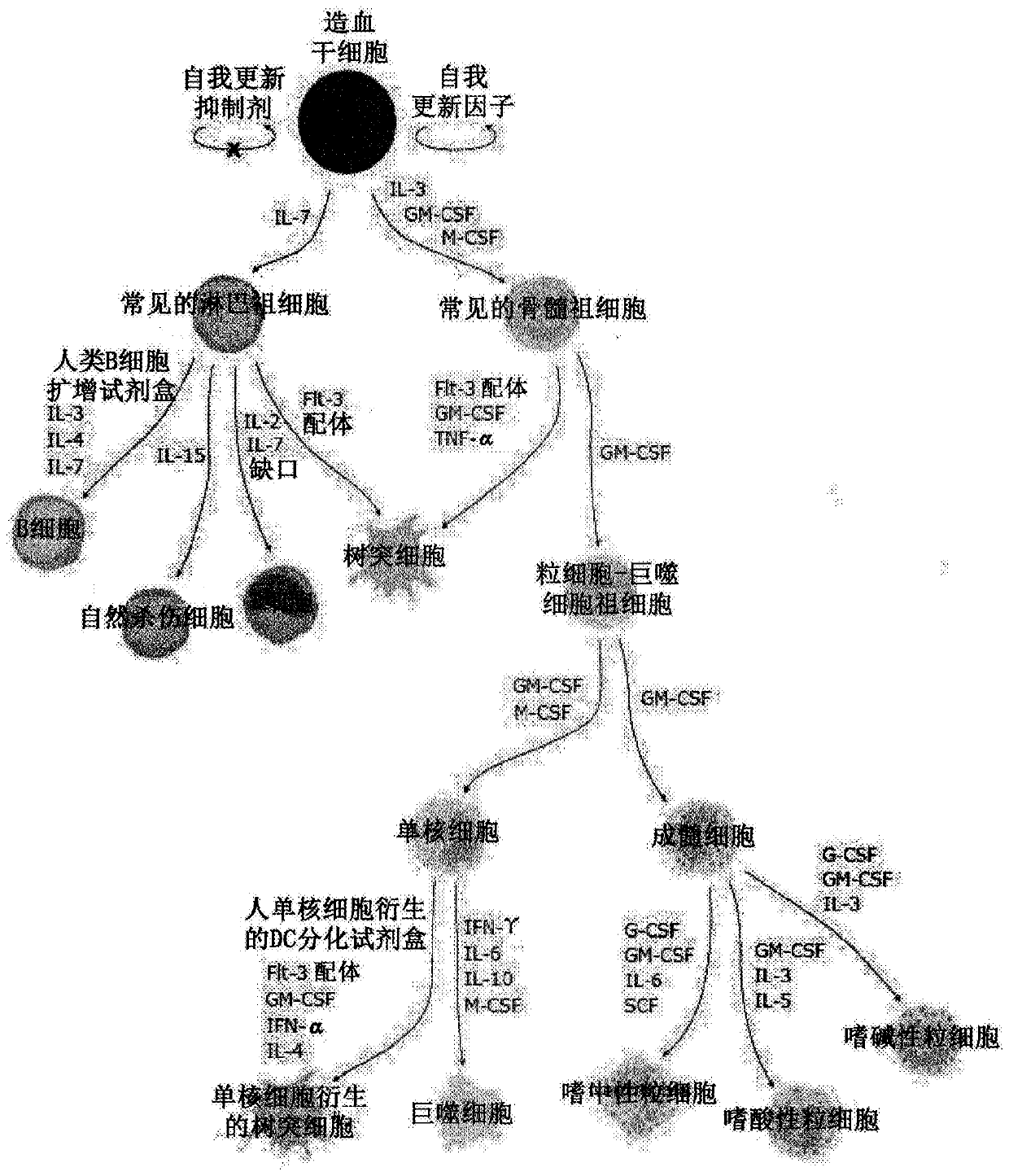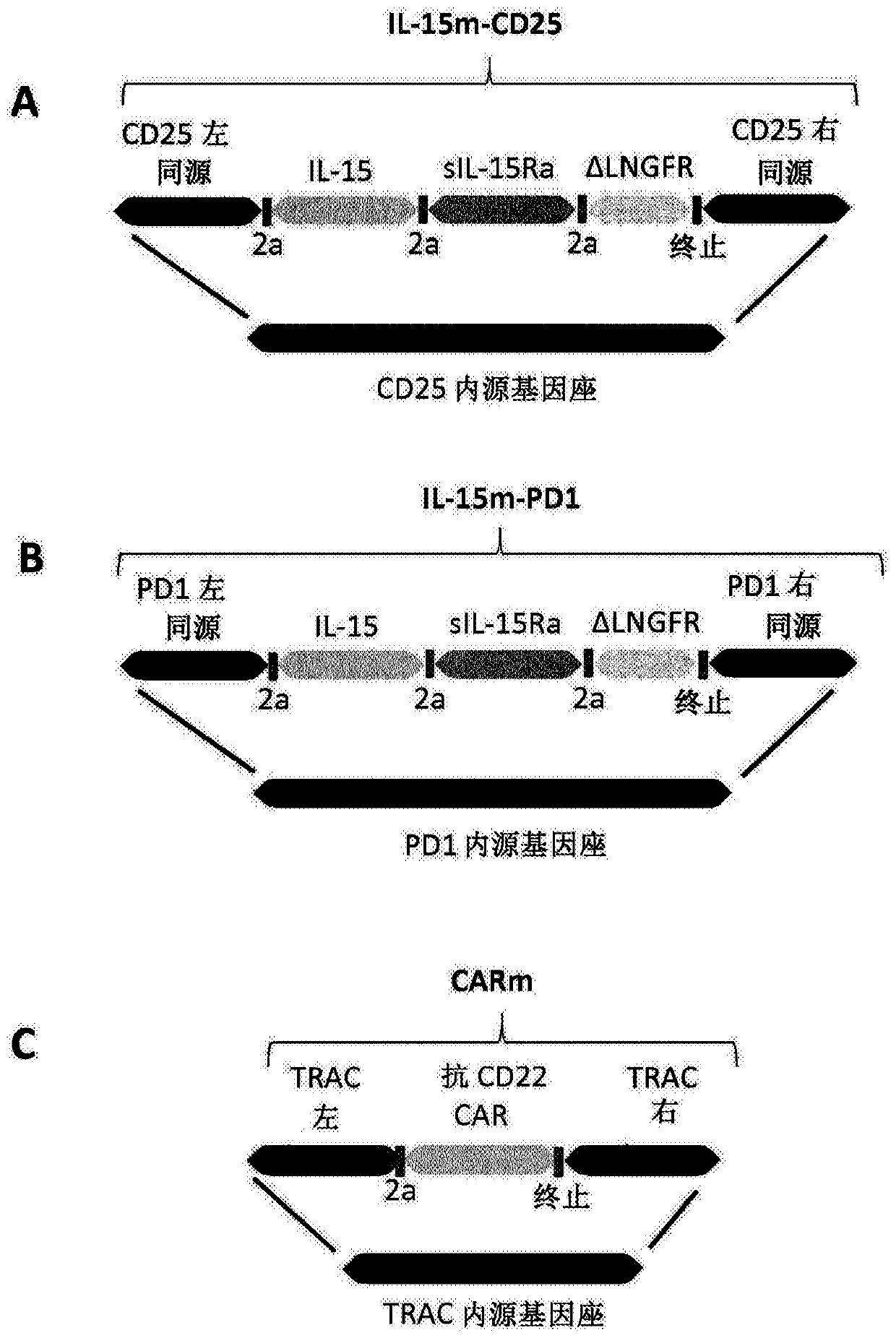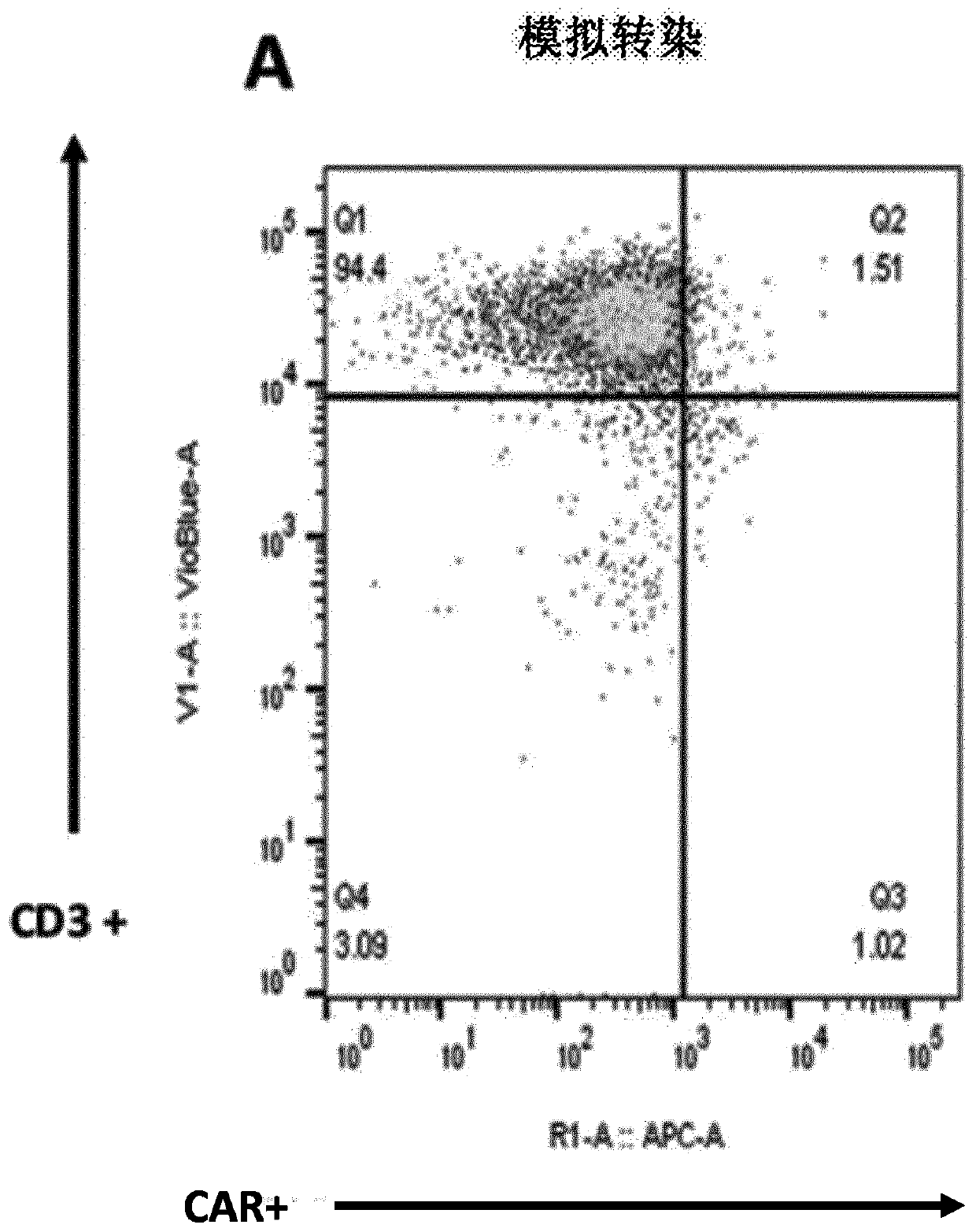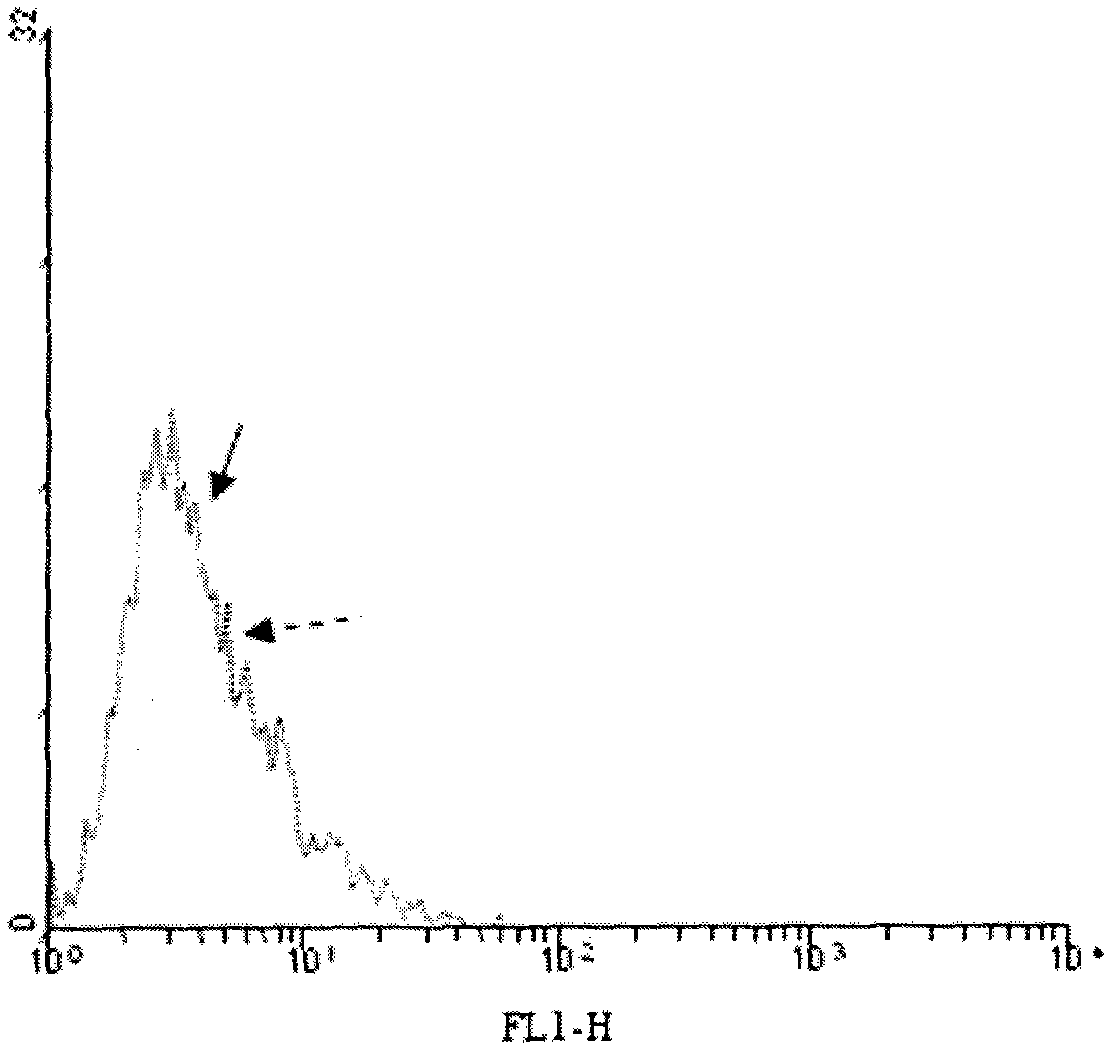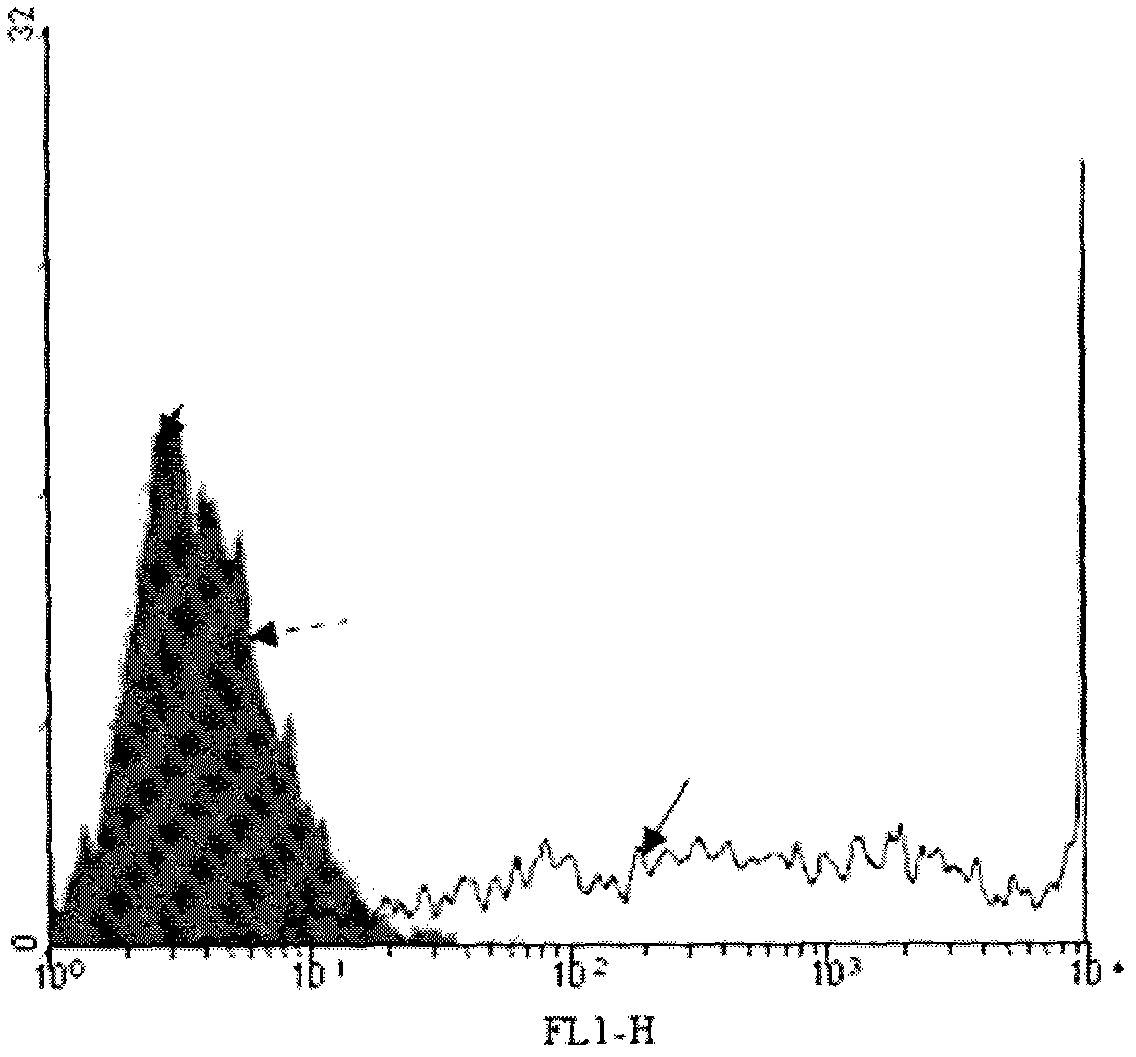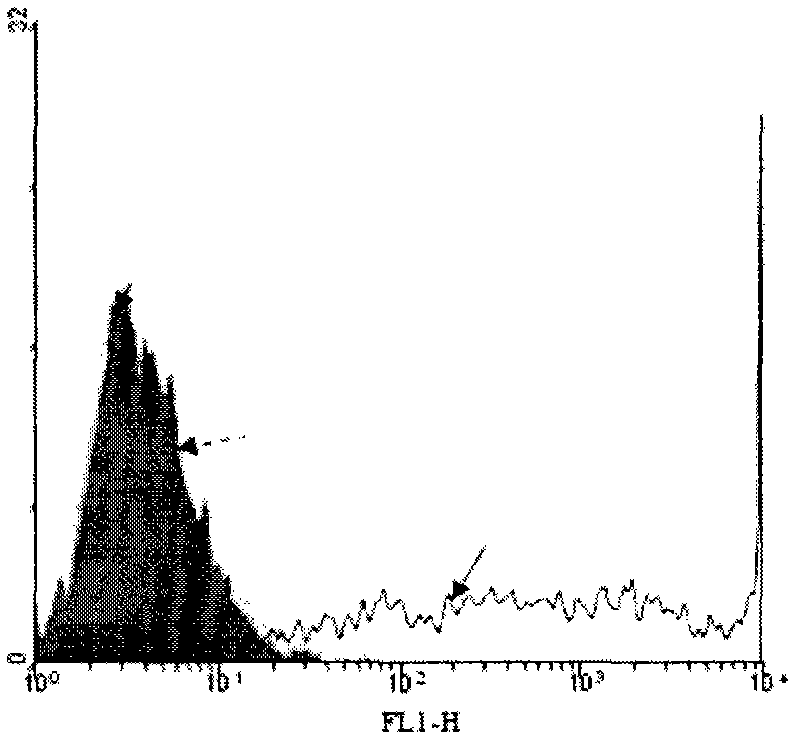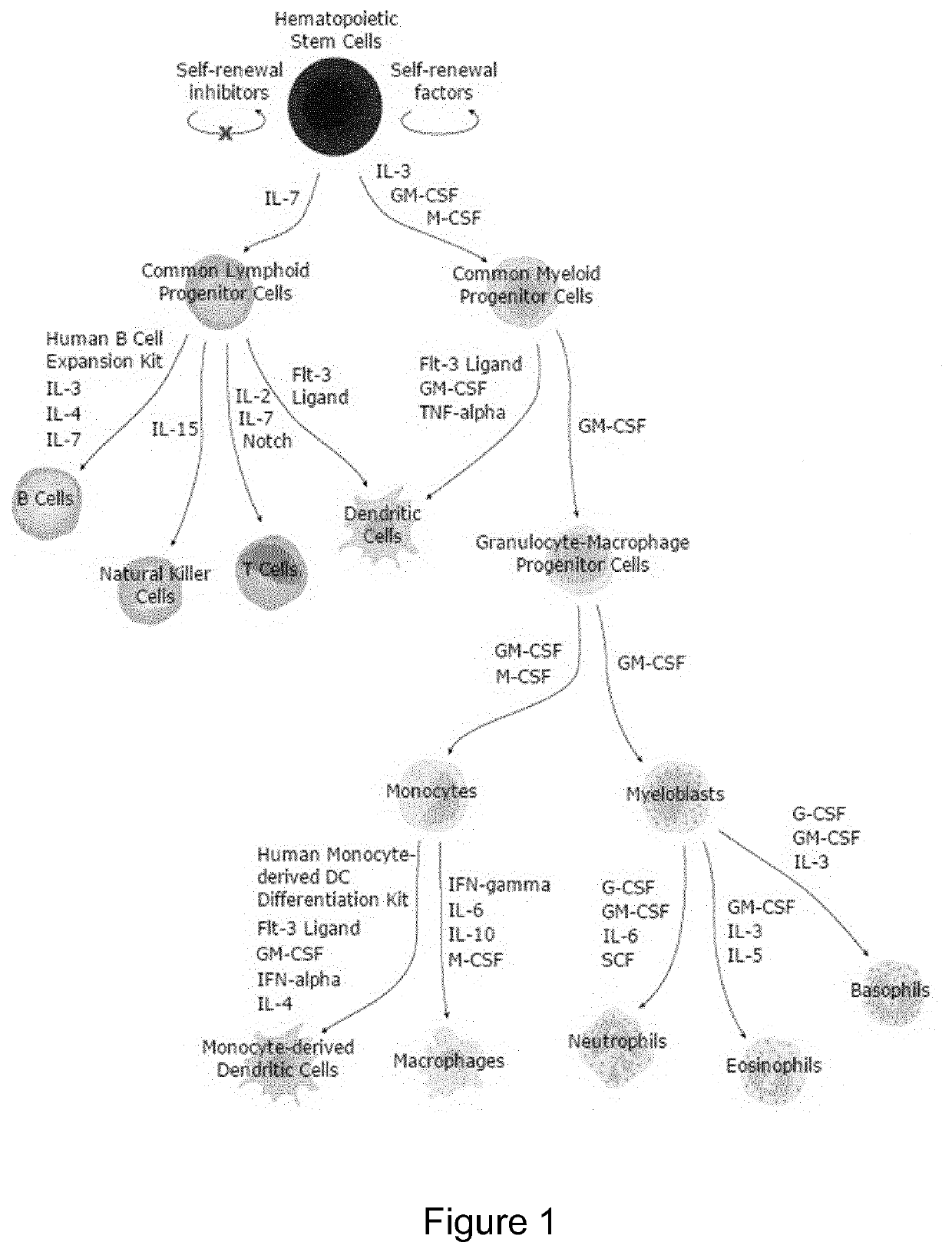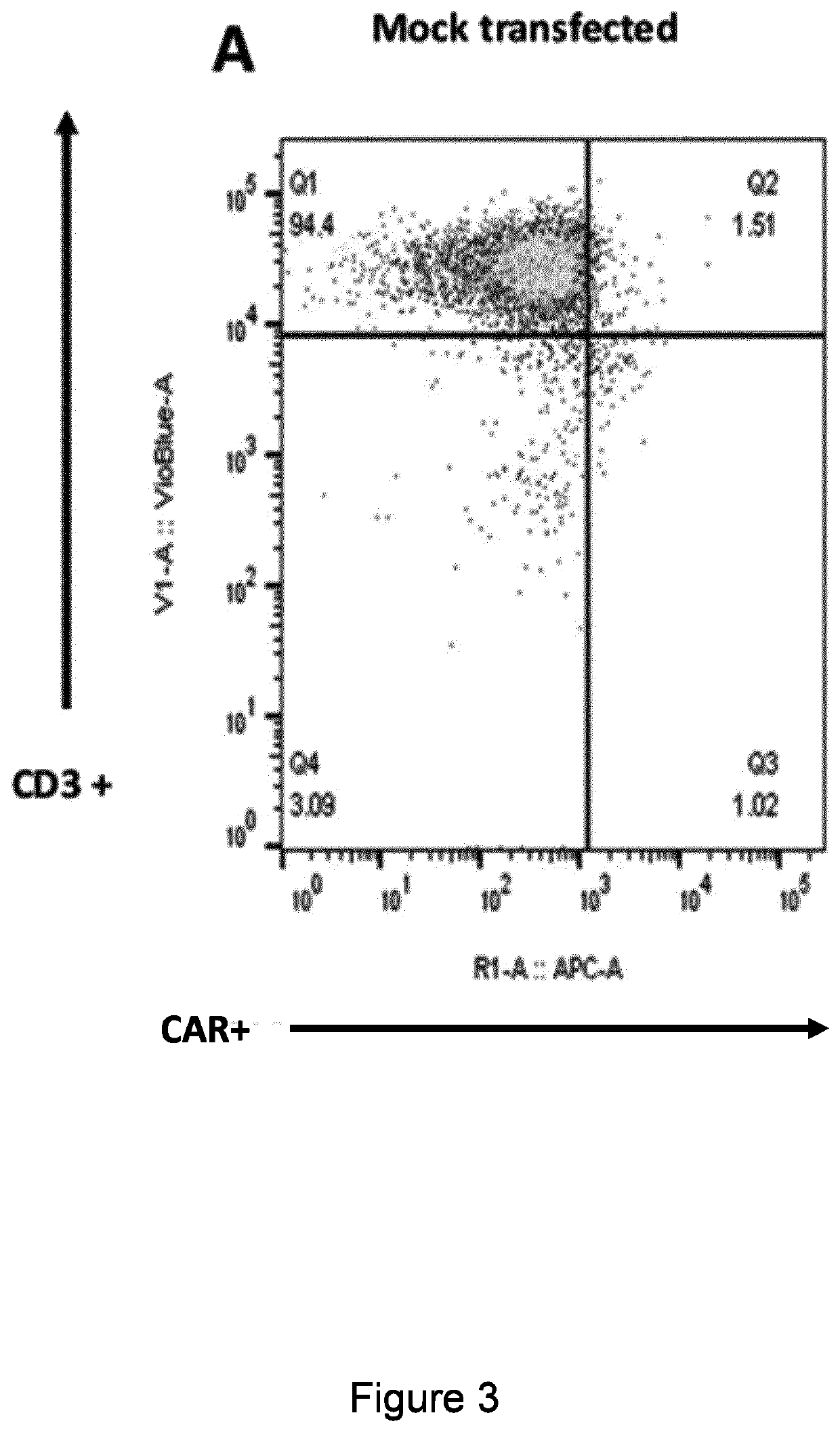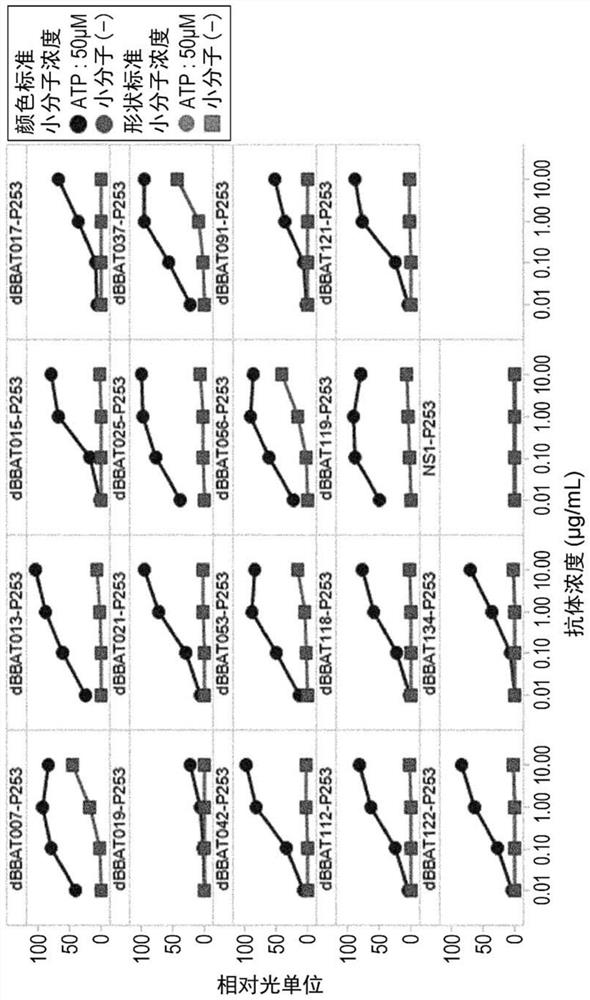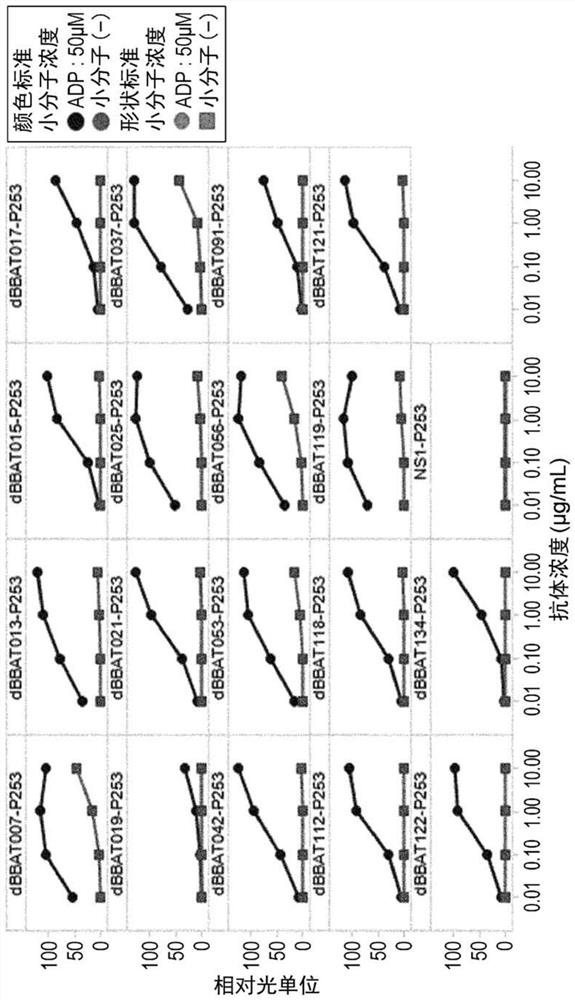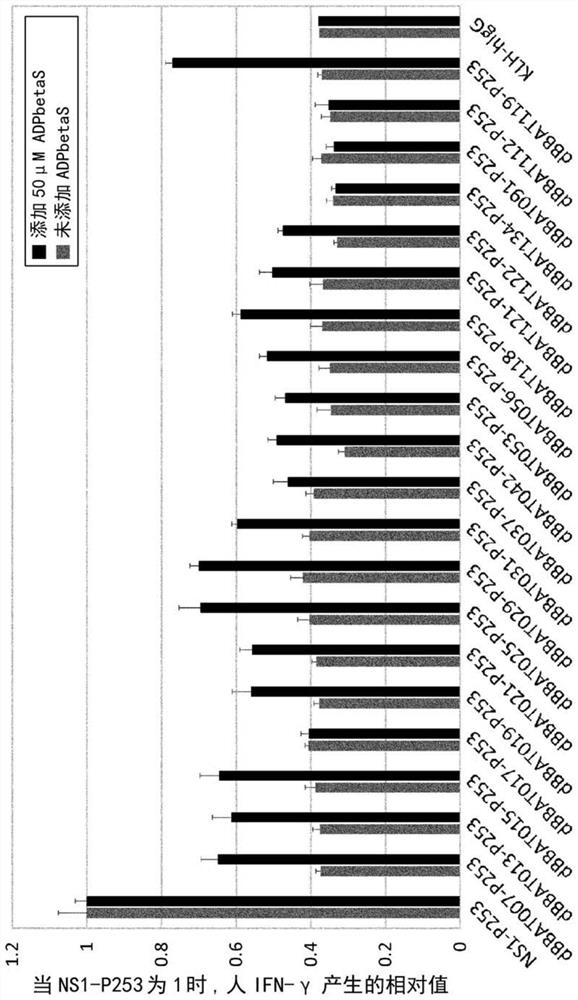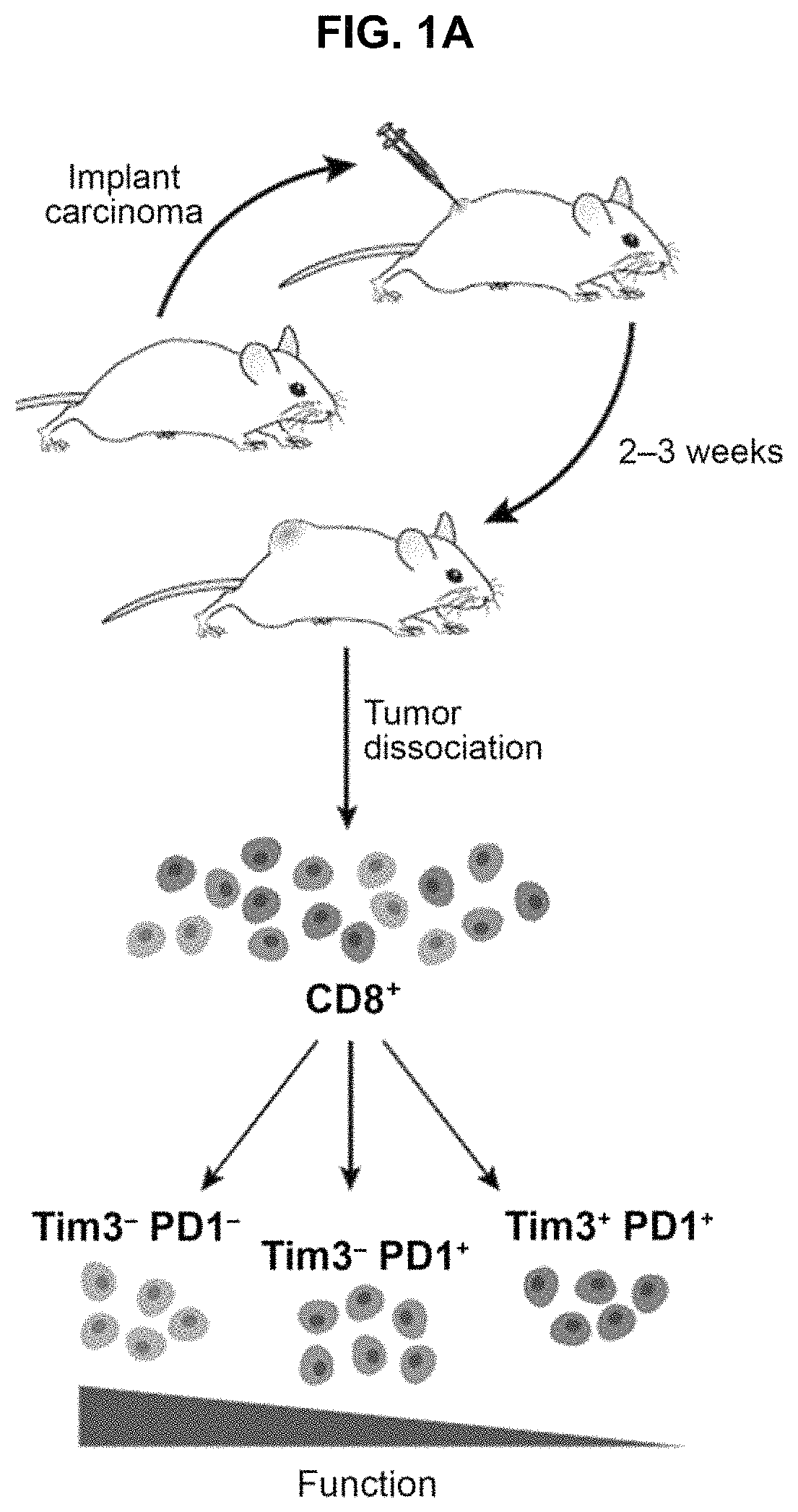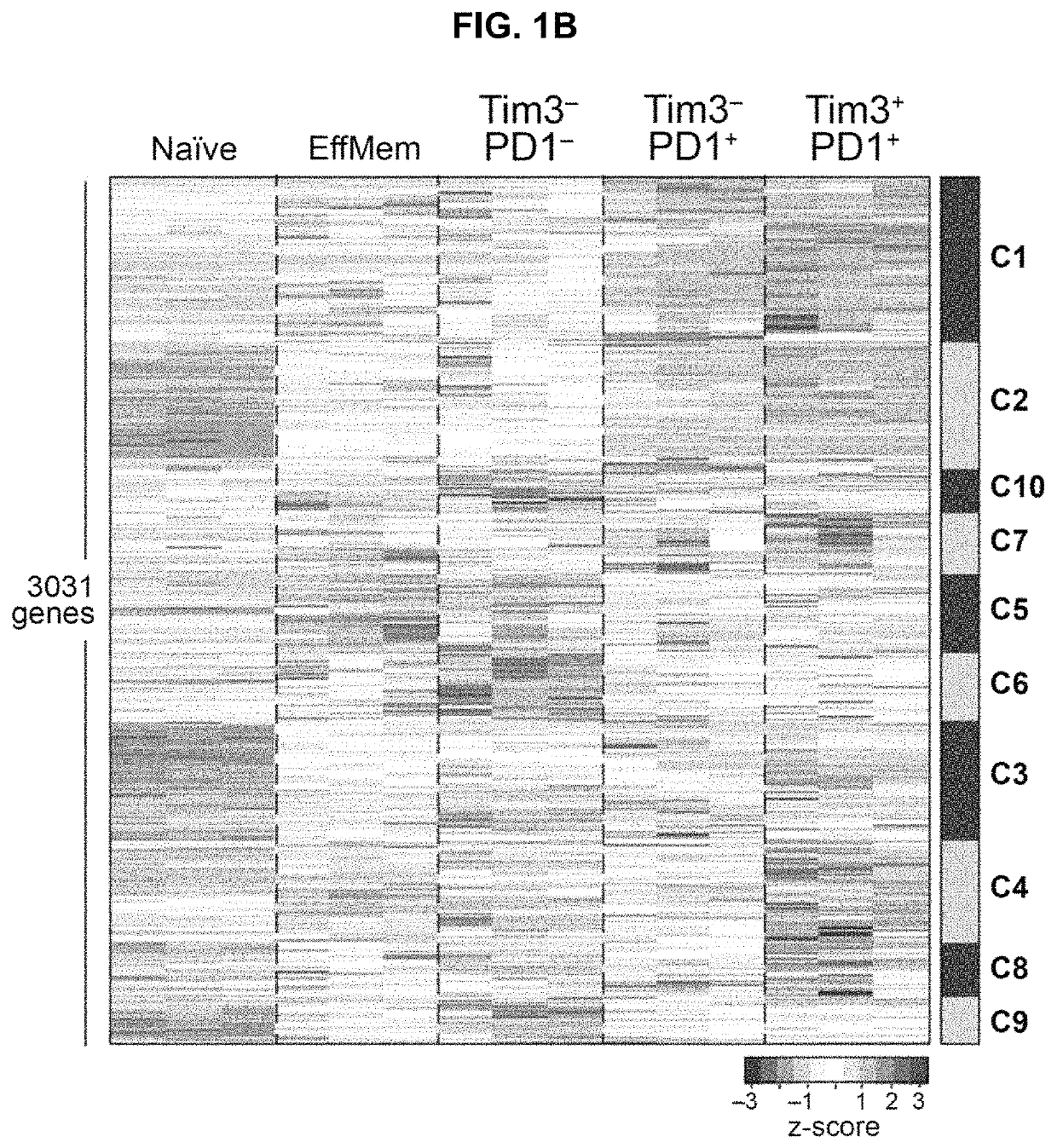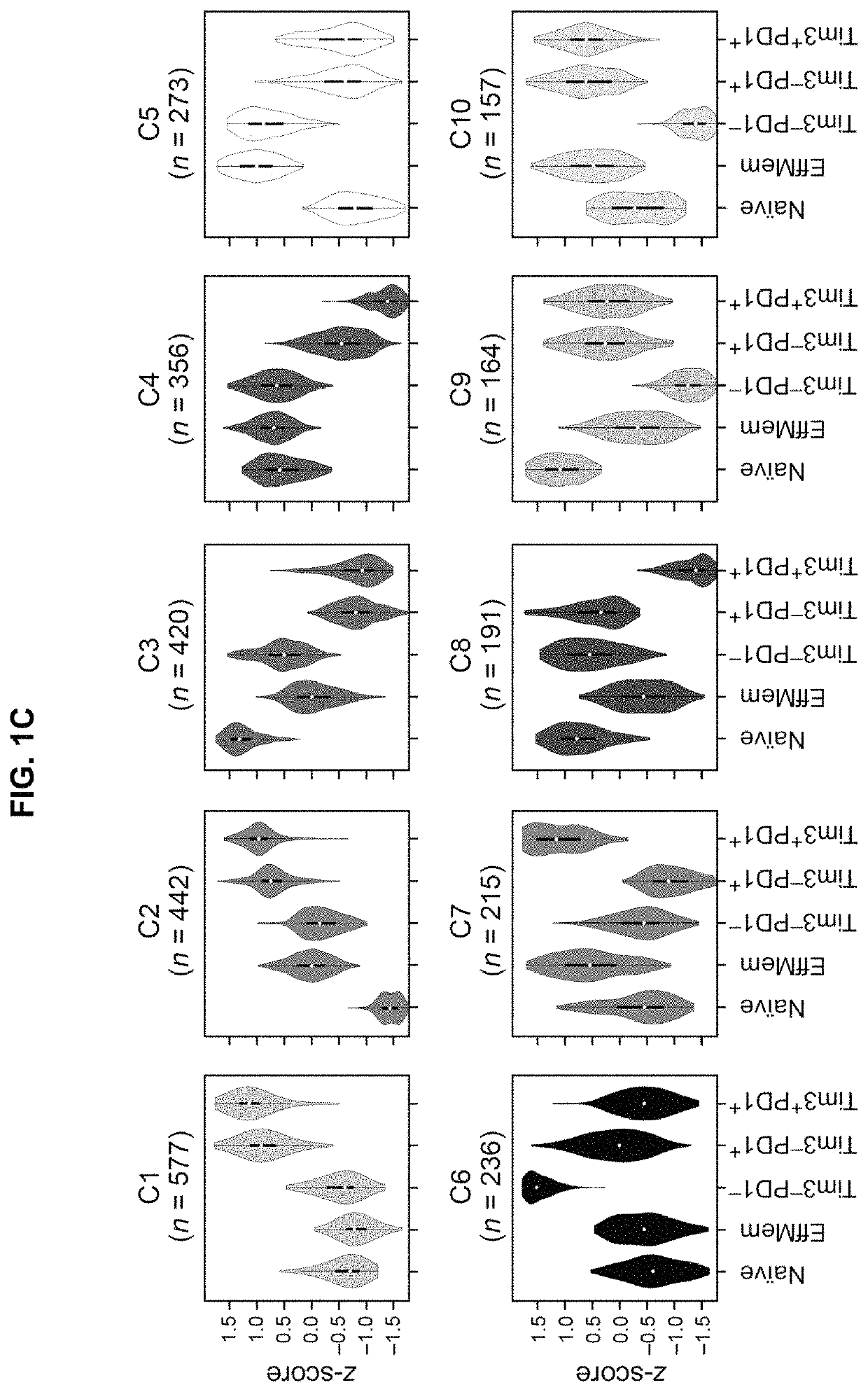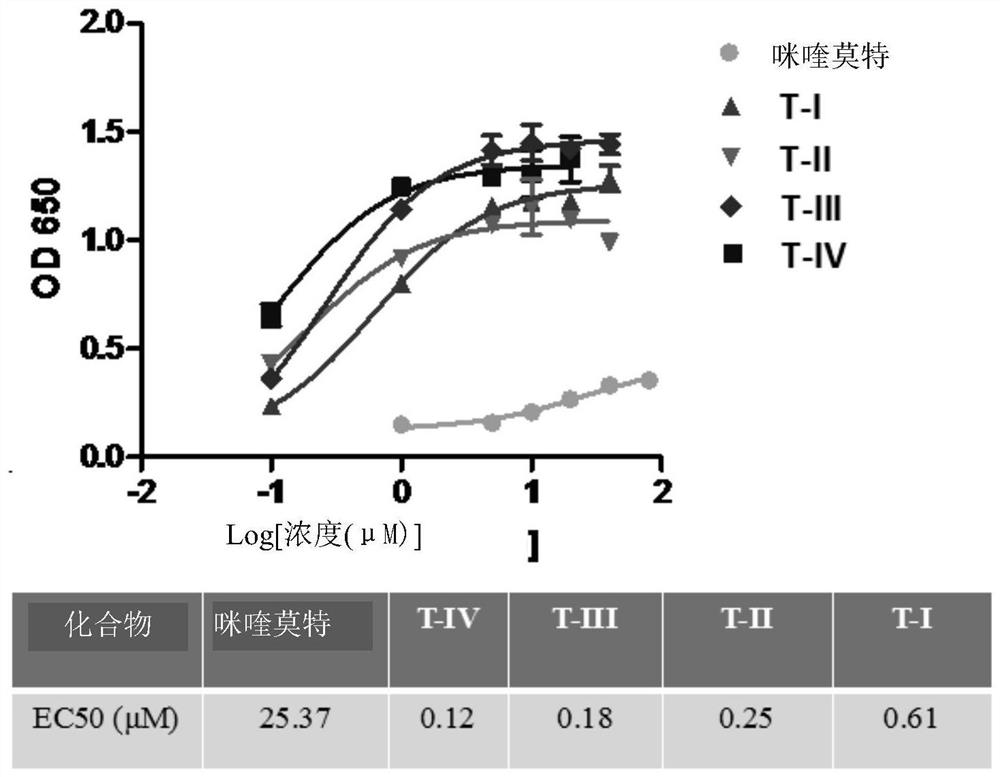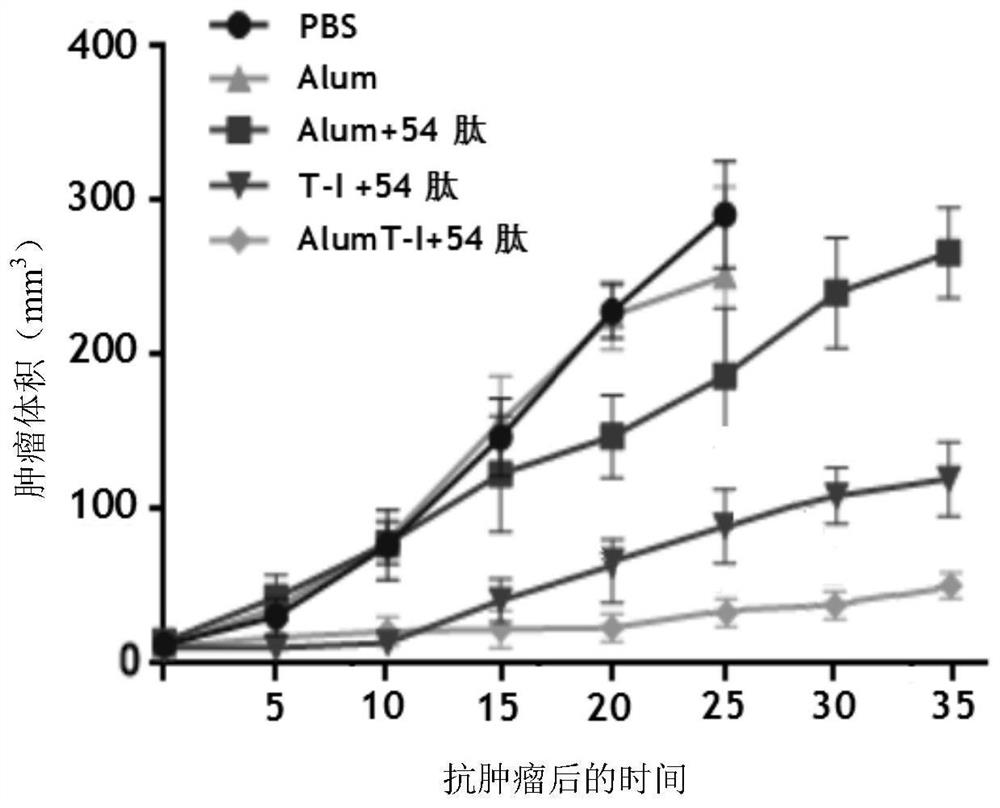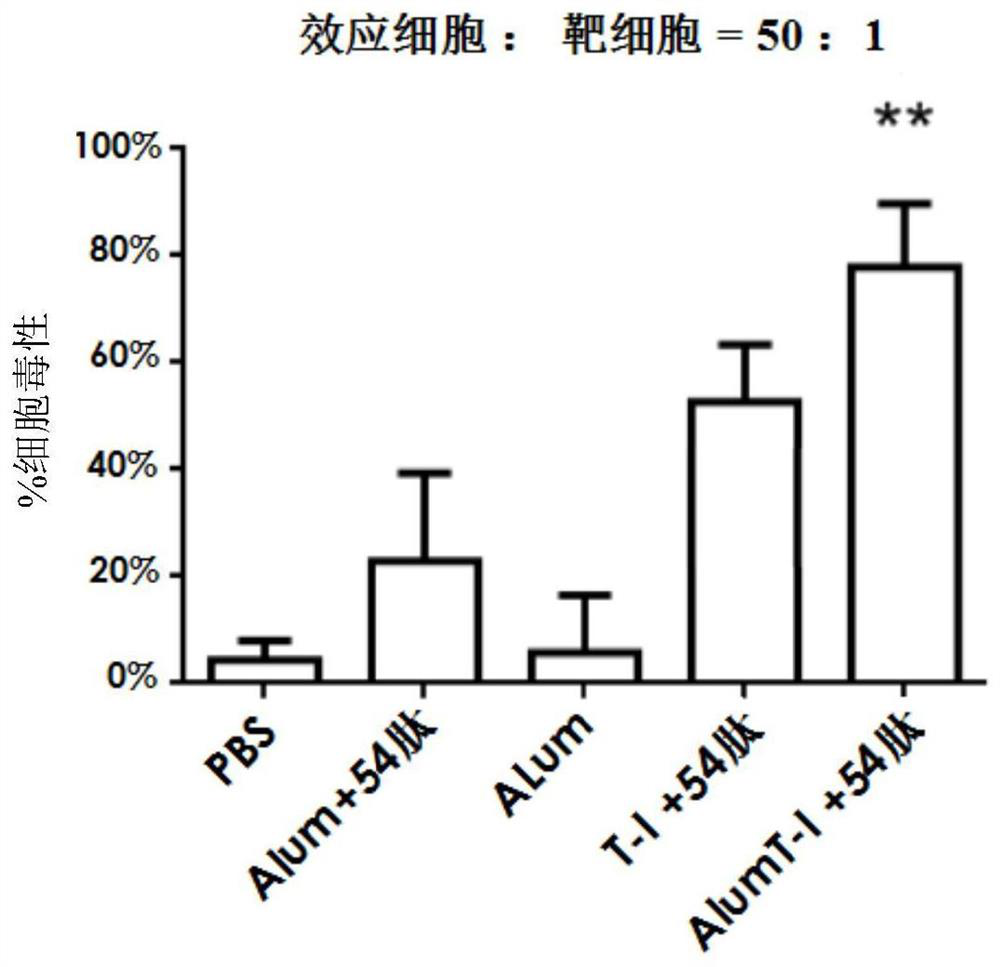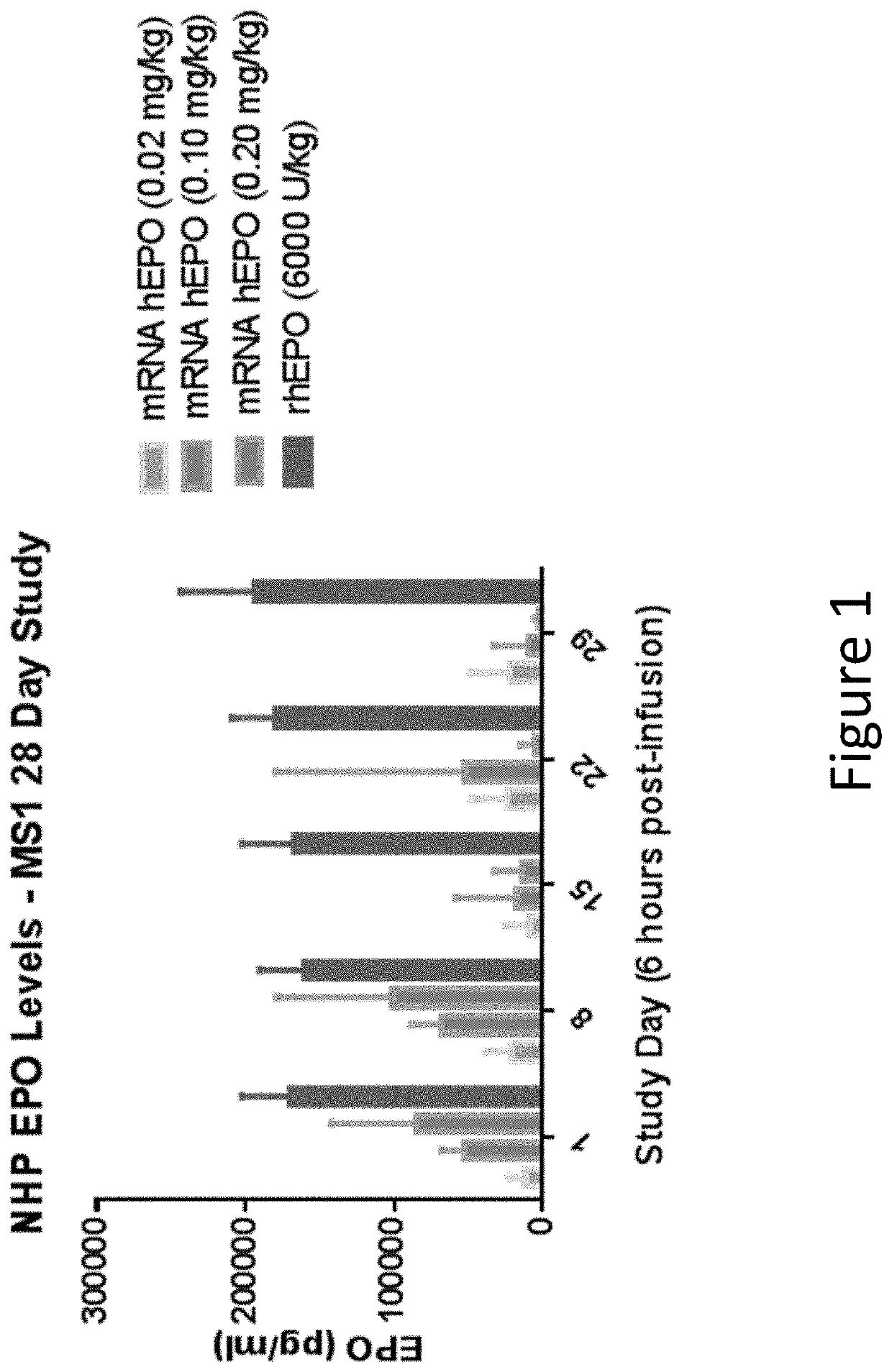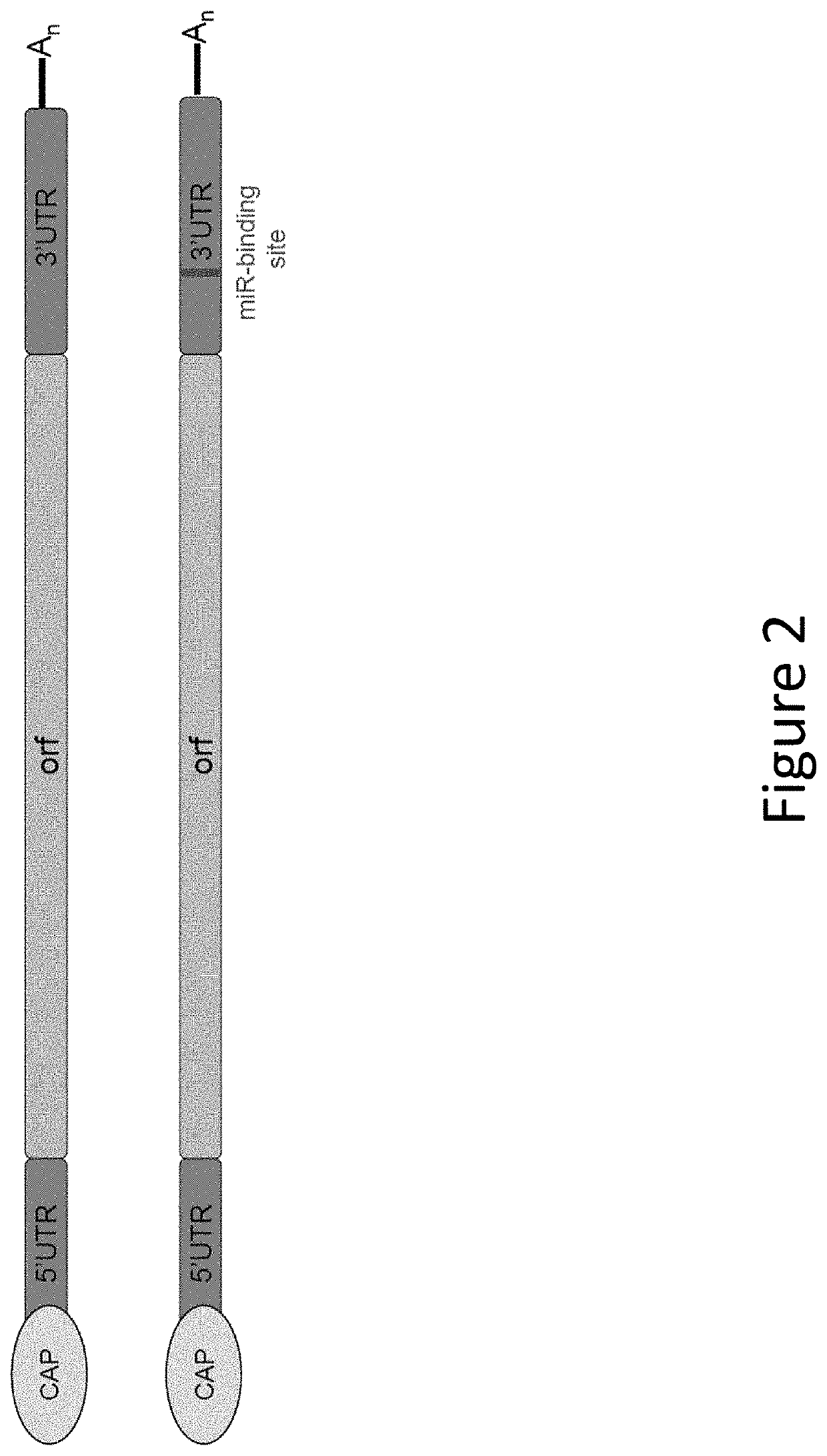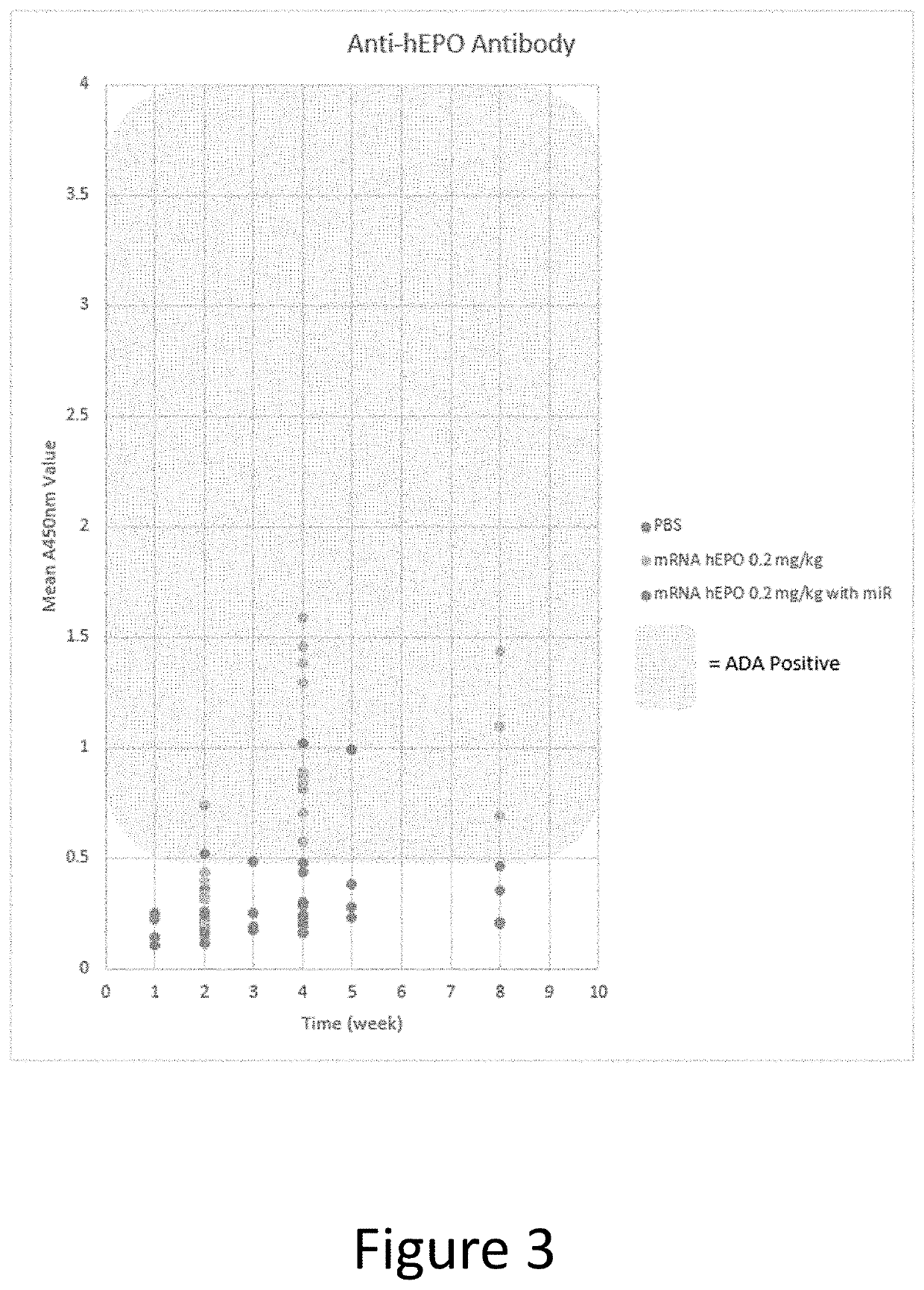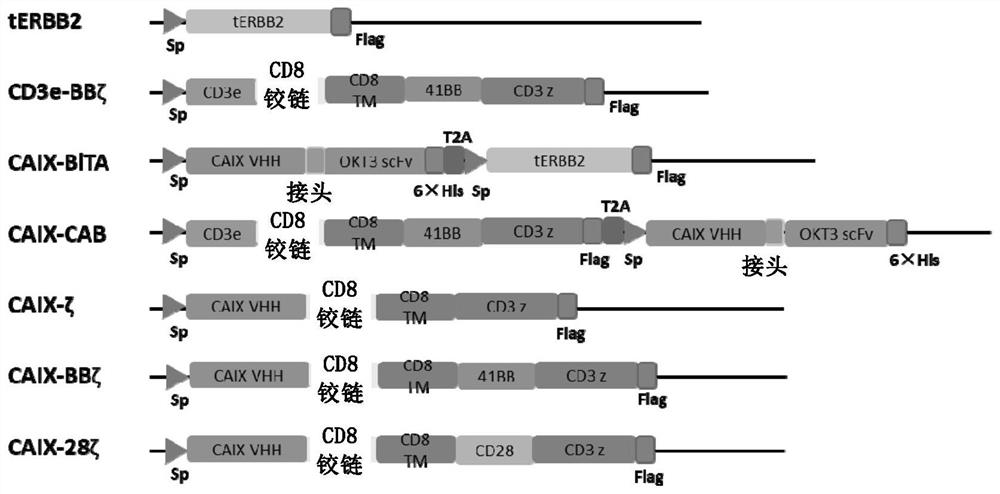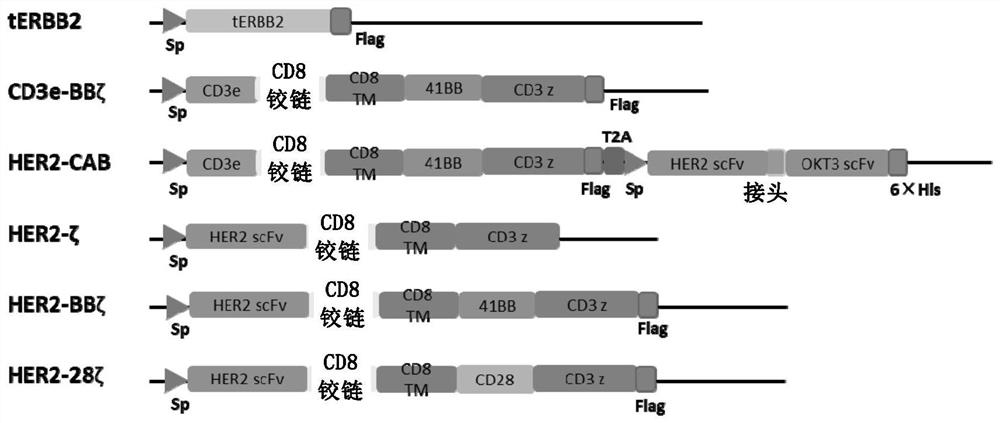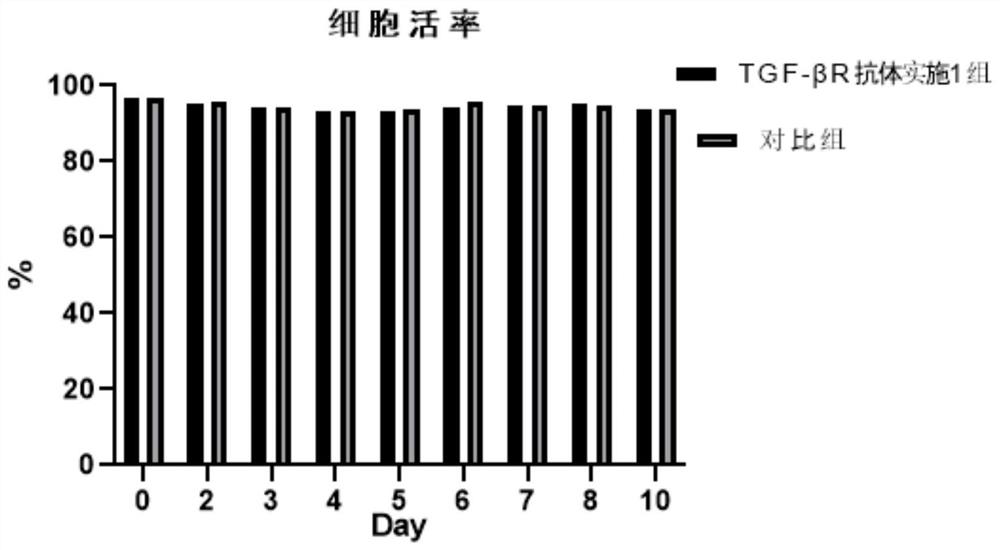Patents
Literature
Hiro is an intelligent assistant for R&D personnel, combined with Patent DNA, to facilitate innovative research.
42 results about "Immune Cell Activation" patented technology
Efficacy Topic
Property
Owner
Technical Advancement
Application Domain
Technology Topic
Technology Field Word
Patent Country/Region
Patent Type
Patent Status
Application Year
Inventor
Webinar Summary. Activation of immune cells is the all-important first step in mounting an immune response. Immune cell activation is a popular area of research because so much happens that is key to the downstream goal of fighting infection, cancer, and disease.
Chlorite in the treatment of neurodegenerative disease
ActiveUS20060159775A1Reduce activationBiocideNervous disorderAmyotrophic lateral sclerosisNeuro-degenerative disease
The invention features methods of treating a macrophage-associated neurodegenerative disease such as amyotrophic lateral sclerosis (ALS), Alzheimer's disease (AD), or multiple sclerosis (MS) in a subject by administering chlorite in an amount effective to decrease blood immune cell activation. The invention also features methods of monitoring therapy by assessing blood immune cell activation before and after therapy.
Owner:RGT UNIV OF CALIFORNIA
Methods for therapeutic administration of messenger ribonucleic acid drugs
ActiveUS20180256628A1Reducing and inhibiting accelerated blood clearanceBlood clearance is reduced and inhibitedOrganic active ingredientsNucleic acid vectorAntiendomysial antibodiesBinding site
The disclosure features methods of reducing or inhibiting an anti-drug antibody response in a subject, as well as methods of reducing or inhibiting unwanted immune cell activation in a subject to be treated with a messenger RNA (mRNA), comprising administering to the subject a mRNA, e.g., a chemically modified messenger RNA (mmRNA), encoding a polypeptide of interest, wherein the mRNA comprises at least one microRNA (miR) binding site for a miR expressed in immune cells, such as miR-126 binding site and / or miR-142 binding site, such that an anti-drug antibody response to the polypeptide or interest, or unwanted immune cell activation (e.g., B cell activation, cytokine secretion), is reduced or inhibited in the subject. The disclosure further provides therapeutic treatment regimens designed to reduce or inhibit AD A or unwanted immune cell activation (e.g., B cell activation, cytokine secretion) in a subject being treated with mRNA-based therapeutics.
Owner:MODERNATX INC
Chimeric antigen receptor immune cell as well as preparation method and application thereof
PendingCN108486062AEfficient killingLittle side effectsAntibody mimetics/scaffoldsMammal material medical ingredientsExtracellularAntigen receptor
The invention provides a chimeric antigen receptor immune cell as well as a preparation method and application thereof. An anti-PD-L1 chimeric antigen receptor is expressed on the surface of the chimeric antigen receptor immune cell, and an extracellular antigen binding region of the anti-PD-L1 chimeric antigen receptor comprises PD-1 extracellular fragment and PD-1 signal peptides. The anti-PD-L1chimeric antigen receptor is expressed on the surface of the chimeric antigen receptor immune cell, so that immune cell depletion caused by binding of the PD-1 on the surface of the immune cell and PD-L1 on the surface of tumor cells is avoided, an inhibiting signal initiated by a PD-1 channel is transformed into an immune cell activating signal, and the killing ability of the chimeric antigen receptor immune cell on tumor cells is obviously enhanced.
Owner:SHENZHEN IN VIVO BIOMEDICINE TECH LTD
Mesoporous Silica Compositions for Modulating Immune Responses
ActiveUS20180344821A1Enhance immune responseStrong cellular and humoral responsePeptide/protein ingredientsVaccinesCell recruitmentMesoporous silica
A composition comprising mesoporous silica rods comprising an immune cell recruitment compound and an immune cell activation compound, and optionally comprising an antigen such as a tumor lysate. The composition is used to elicit an immune response to a vaccine antigen.
Owner:PRESIDENT & FELLOWS OF HARVARD COLLEGE
Compositions and methods for evaluating and modulating immune responses by use of immune cell gene signatures
PendingUS20190100801A1Lower immune responseEnhance immune responseMicrobiological testing/measurementImmune Cell FunctionGene
The present invention provides markers, marker signatures and molecular targets that correlate with dysfunction of immune cells and are advantageously independent of the immune cell activation status. The present markers, marker signatures and molecular targets provide for new ways to evaluate and modulate immune responses. Therapeutic methods are also provided to treat a patient in need thereof who would benefit from an increased immune response.
Owner:THE BROAD INST INC +2
Immune-cell in-vitro-induction-amplification method
ActiveCN106754704AImprove induction efficiencyFast amplificationCulture processCell culture mediaCD16Biology
The invention discloses an immune-cell in-vitro-induction-amplification method. The immune-cell in-vitro-induction-amplification method includes the steps that a culturing container is coated with a CD16 antibody to obtain the coated culturing container; media are activated through immune cells, and mononuclear cells are put into the coated culturing container for activating the media through the immune cells to obtain activated immune cells; the media are amplified through the immune cells, the immune cells subjected to primary induction amplification are subjected to secondary induction-amplification culturing to obtain amplified immune cells; the media are amplified in a large-scale mode through the immune cells, differentiated immune cells are subjected to tertiary induction-amplification culturing to obtain large-scale-amplified functional activated immune cells. The mononuclear cells are subjected to induction-amplification culturing with the immune-cell in-vitro-induction-amplification method to obtain the large-scale immune cells, the immune-cell in-vitro-induction-amplification method has the advantages of being high in induction efficiency, amplification speed and safety, low in cost and the like, and therefore the requirements of a large number of the immune cells in clinic treatment are met.
Owner:ACADEMY OF MILITARY MEDICAL SCI +1
Targeted gene insertion for improved immune cells therapy
PendingCN110023490APolypeptide with localisation/targeting motifImmunoglobulin superfamilyCell therapyPromoter
The invention pertains to the field of adaptive cell immunotherapy. It provides with the genetic insertion of exogenous coding sequence(s) that help the immune cells to direct their immune response against infected or malignant cells. These exogenous coding sequences are more particularly inserted under the transcriptional control of endogenous gene promoters that are sensitive to immune cells activation. Such method allows the production of safer immune primary cells of higher therapeutic potential.
Owner:CELLECTIS SA
Compositions and methods for evaluating and modulating immune responses by detecting and targeting gata3
ActiveUS20190106679A1Lower immune responseEnhance immune responseMicrobiological testing/measurementMammal material medical ingredientsImmune Cell FunctionImmunity response
The present invention provides markers, marker signatures and molecular targets that correlate with dysfunction of immune cells and are advantageously independent of the immune cell activation status. The present markers, marker signatures and molecular targets provide for new ways to evaluate and modulate immune responses. Specifically, GATA3 and / or FOXO1 modulation are provided for use as markers, marker signatures and molecular targets. Therapeutic methods are also provided to treat a patient in need thereof who would benefit from an increased immune response.
Owner:THE BRIGHAM & WOMEN S HOSPITAL INC +2
Multiple bi-specific binding domain constructs with different epitope binding to treat cancer
InactiveUS20190233534A1Reduce competitionReduced steric hindranceImmunoglobulins against cell receptors/antigens/surface-determinantsAntibody ingredientsEpitopeCancer antigen
Groups of bi-specific binding domain constructs (BS-BDC) to treat cancer are described. Each BS-BDC in a group targets a cancer antigen epitope and an immune cell activating epitope that is different from the cancer antigen epitope and immune cell activating epitope targeted by another BS-BDC in the group. The different cancer antigen epitopes can be on the same cancer antigen.
Owner:FRED HUTCHINSON CANCER RES CENT
Immune cell in-vitro induction amplification method
PendingCN111019892AIncrease multipleGood immune effectCulture processDead animal preservationImmune effectsImmune cell differentiation
The invention discloses an immune cell in-vitro induction amplification method in the related technical field of cell culture. The method comprises the following steps: producing a coated culture container; putting mononuclear cells of immune cells obtained by separation into the coated culture container, and carrying out immune cell activation culture for 24-36 h to obtain activated immune cells;preparing immune cells for induction amplification; differentiating and culturing to prepare differentiated immune cells; and preparing immune cells subjected to large-scale amplification, and performing passage once every 2-3 d under the condition of controlling the cell density to be 0.8-1.2 * 10<6 > / mL. The immune cell in-vitro induction amplification culture system is clear, and the amplification multiple is high; and the immune cells prepared by the immune cell in-vitro induction amplification method are good in immune effect, and the safety risk is effectively reduced.
Owner:杭州恩格生物医疗科技有限公司
Agents that modulate immune cell activation and methods of use thereof
Owner:CHILDRENS MEDICAL CENT CORP +2
Macromolecular temperature-sensitive driver and preparation method and application thereof
ActiveCN107022048AActive and precise controlAchieve activityMacromolecular non-active ingredientsPull forceCell membrane
The invention provides a macromolecular temperature-sensitive driver and a preparation method and application thereof. The macromolecular temperature-sensitive driver comprises targeting modules composed of polypeptide ligands, a driving module composed of a temperature-sensitive polymer, and triggering modules composed of photothermal conversion molecules, the triggering modules are connected to the targeting modules, and the targeting modules are connected to the driving module. The driver can be targeted to cell membrane protein by means of the polypeptide ligands, and can be effectively specifically combined with the membrane protein by way of active targeting of molecular recognition, the surface of the cell membrane is partially heated to activate the driver, so that the driver is collapsed and aggregated to generate pulling force, consequently, the assembly control of different membrane receptor proteins is realized, and a new effective strategy is provided for the research on signaling pathway, immunocyte activation, tumor treatment and the like.
Owner:THE NAT CENT FOR NANOSCI & TECH NCNST OF CHINA
Methods of reducing immune cell activation and uses thereof
InactiveUS20180064712A1Reduce inflammationEasy to optimizeAmine active ingredientsMitochondrial fissionInflammation
The present invention encompasses methods of reducing inflammatory immune cell activation and inflammation via inhibiting mitochondrial fission.
Owner:WASHINGTON UNIV IN SAINT LOUIS +2
Altering inflammatory states of immune cells in vivo by modulating cellular activation states
PendingUS20210046156A1Induce killingReduce and prevent growth and developmentPowder deliveryOrganic active ingredientsImmuno suppressionCell biology
Systems and methods to modulate the activation state of immune cells in vivo are described. The systems and methods can be used to transform immunosuppressive macrophages that support cancer growth and metastasis into highly activated tumoricidal macrophages.
Owner:FRED HUTCHINSON CANCER CENT
A method for inducing expansion, cryopreservation and recovery of immune cells in vitro
ActiveCN106701681BImprove induction efficiencyImprove securityCulture processDead animal preservationCD16Cryopreservation
The invention discloses an in vitro induction amplification, freeze preservation and anabiosis method of immune cells. The method comprises the following steps: using a CD16 antibody enveloped culture container to obtain an enveloped culture container; using an immune cell activated culture medium to put single karyocytes into the enveloped culture container to carry out first induction and amplification culture so as to obtain primarily induced and amplified immune cells; using an immune cell amplification culture medium to carry out second induction and amplification culture on the primarily induced and amplified immune cells so as to obtain differentiated immune cells; using an immune cell large-scale amplification culture medium to carry out third induction and amplification culture on the differentiated immune cells so as to obtain large-scale function activated immune cells; using an immune cell freeze preservation liquid to freeze and preserve the immune cells so as to obtain frozen and preserved immune cells; water-bathing the frozen and preserved immune cells for melting, mixing with a freezing anabiosis liquid of the immune cells so as to obtain an anabiosis cell mixed liquid; carrying out centrifugal treatment on the anabiosis cell mixed liquid so as to obtain anabiosis immune cells.
Owner:成都安缇赛尔生物科技有限公司
Compositions and methods for evaluating and modulating immune responses by detecting and targeting pou2af1
ActiveUS20190106678A1Lower immune responseEnhance immune responseMicrobiological testing/measurementGenetically modified cellsImmune Cell FunctionCancer research
The present invention provides markers, marker signatures and molecular targets that correlate with dysfunction of immune cells and are advantageously independent of the immune cell activation status. The present markers, marker signatures and molecular targets provide for new ways to evaluate and modulate immune responses. Specifically, POU2AF1 modulation is provided for use as a marker, marker signature and molecular target. Therapeutic methods are also provided to treat a patient in need thereof who would benefit from an increased immune response.
Owner:THE BRIGHAM & WOMEN S HOSPITAL INC +2
A method for inducing expansion and cryopreservation of immune cells in vitro
ActiveCN106591233BImprove induction efficiencyImprove securityCulture processDead animal preservationHigh cellCD16
The invention discloses a method of extracorporeal induction, proliferation and cryopreservation of immune cells. The method comprises the steps of utilizing a CD16 antibody to cover a culture vessel to obtain the culture vessel after covering; utilizing the immune cells to activate a culture medium, and placing single cell nucleus in the culture vessel after covering to activate the culture medium through the immune cells to obtain preliminarily induced and proliferated immune cells; utilizing a immune cell proliferation culture medium to conduct second induction and proliferation culture on the preliminarily induced and proliferated immune cells to obtain differentiated immune cells; utilizing immune cell scale proliferation culture to conduct third induction proliferation culture on the differentiated immune cells to obtain large-scale immune cells with activated functions; utilizing immune cell cryopreservation liquid to cryopreserve the large-scale immune cells with the activated functions. The method of extracorporeal induction, proliferation and cryopreservation of the immune cells has the advantages of being high in induction efficiency, high in proliferation speed, high in safety, low in cost and the like. Moreover, the cryopreserved large-scale immune cells have long effective storing time and high cell recovery rate.
Owner:广州沙艾生物科技有限公司
Initiative immune cell activation and amplification system and application thereof
ActiveCN113088489ABinding blockAlleviate shortagesDead animal preservationBlood/immune system cellsAntigenCell therapy
The invention relates to the technical field of immune cell therapy, in particular to an initial immune cell activation and amplification system and application thereof. The invention provides an initial immune cell activation and amplification system. A TGF-beta antagonist is added into an activation culture medium, TGF-beta R on the surface of a T cell in a peripheral blood mono-nuclear cell is competitively combined, the combination of TGF-beta and TGF-beta R is blocked, a TGF-beta mediated signal channel is inhibited, the quantity and function of abnormally increased Treg cells are reduced, the functional activity and amplification capacity of T effector cells and antigen presenting cells are up-regulated, the insufficient number and function decline of initial immune cells caused by negative immune regulation mechanisms such as TGF-beta up-regulated Treg cells are avoided, and high-quality and high-quantity excellent seed cells are provided for later successful preparation of targeted immune cells. The invention also provides a method for activating and amplifying initial immune cells and a method for preparing targeted immune cells.
Owner:THE SECOND AFFILIATED HOSPITAL OF ANHUI MEDICAL UNIV +1
T cell immune balance peptides
InactiveUS20110301101A1Reduce in quantityReduce formationAntibacterial agentsPeptide-nucleic acidsImmunologic disordersImmunological synapse formation
This invention is related to a peptides mixture. Without the need to consider the patients' genetic background, it can interfere with MHC-pathogenic peptide-TCR formation, which includes the interference with pathogen peptide binding with MHC and pMHC binding with specific TCR, suppression of the immune synapse formation when the specific T cell immune response occurs, reduction of the number and density of the MHC-specific immune response mediated pathogenic peptide-TCR in the immune synapse, and suppression of the highly activated signal transduction in the immune synapse. Hence it can negatively regulate the T cell specific immune response, reduce the specific immune cell activation, proliferation and effect, and make the radical T cell specific immune response more stable and last longer. It can be used to treat diseases with excessive T cell-specific immune reaction, such as severe flu, SARS, hand-foot-and-mouth disease, viral pneumonia, bacterial infections, severe autoimmune disease and etc.
Owner:XIA SHUQI
Methods for determining personalized treatment compositions for prostate cancer and breast cancer
InactiveCN104884960AEasy to understandOrganic active ingredientsPeptide/protein ingredientsProstate cancerCancer therapy
The present disclosure provides methods for selecting a treatment composition, or therapy, for the treatment of a cancer, such as prostate or breast cancer, in a patient wherein the treatment composition includes administering a combination of at least two components selected from two different classes of compounds. Methods for treating a patient using the selected treatment composition are also provided, together with methods for monitoring the efficacy of the treatment composition during a treatment period.
Owner:CALDERA HEALTH
Targeted gene integration of nk inhibitors genes for improved immune cells therapy
PendingCN111511903ADecreased transcriptional activityHydrolasesActivity regulationTranscription controlImmunotherapy
The invention pertains to the field of adaptive cell immunotherapy. It provides with the genetic insertion of exogenous coding sequence(s) that help the immune cells to direct their immune response against infected or malignant cells. These exogenous coding sequences are more particularly inserted under the transcriptional control of endogenous gene promoters that are sensitive to immune cells activation. Such method allows the production of safer immune primary cells of higher therapeutic potential.
Owner:CELLECTIS SA
A method to synthesize α-galactoside epitopes on the surface of tumor cells and activate immune cells
The present invention relates to a method for synthesizing α-galactoside epitope (α-Gal) on the surface of tumor cells and activating immune cells, using old, formalin-fixed or paraffin-embedded tumor specimens, through α-1,3-galactoside transferase catalyzes the synthesis of galactoside (α-Gal) epitopes on tumor cell membranes, enhances tumor antigenicity, and uses it as a vaccine. The α-Gal epitope on these tumor cell membranes can be phagocytized by antigen-presenting cells (APC) in vitro, activate T / CIK cells, and rapidly expand tumor-specific T / CIK cells in vitro. tumor cells.
Owner:INNER MONGOLIA MEDICAL COLLEGE
Targeted gene integration of nk inhibitors genes for improved immune cells therapy
PendingUS20200237823A1Increase transcriptional activityMaintain expressionPolypeptide with localisation/targeting motifImmunoglobulin superfamilyImmunoresponseCell therapy
The invention pertains to the field of adaptive cell immunotherapy. It provides with the genetic insertion of exogenous coding sequence(s) that help the immune cells to direct their immune response against infected or malignant cells. These exogenous coding sequences are more particularly inserted under the transcriptional control of endogenous gene promoters that are sensitive to immune cells activation. Such method allows the production of safer immune primary cells of higher therapeutic potential.
Owner:CELLECTIS SA
Anti-cd137 antigen-binding molecule and utilization thereof
The purpose of the present disclosure is to provide anti-CD137 antigen-binding molecules that have an effect of activating immunocytes, a cytotoxic activity or an antitumor activity and yet scarcely affect non-tumor tissues such as normal tissues and have few side effects, and a method for using these molecules. By finding a CD137 antigen-binding molecule that shows a change in CD137-binding activity depending on various substances (for example, a low molecular compound) in a target tissue and producing the molecule, provided is an anti-CD137 antigen-binding molecule that has an effect of activating immunocytes, a cytotoxic activity or an antitumor activity and yet scarcely affects non-tumor tissues such as normal tissues and has few side effects. Also provided are a method for using the anti-CD137 antigen-binding molecule, a pharmaceutical formulation, etc. The present disclosure also provides an antigen-binding molecule showing a change in antigen-binding activity depending on a low molecular compound, a method for producing the molecule and utilization of the same.
Owner:CHUGAI PHARMA CO LTD
Compositions and methods for evaluating and modulating immune responses by detecting and targeting POU2AF1
ActiveUS11186825B2Minimize damageRestore immune homeostasisMicrobiological testing/measurementGenetically modified cellsImmune Cell FunctionImmunity response
Owner:THE BRIGHAM & WOMEN S HOSPITAL INC +2
Immune cell in-vitro induction amplification, cryopreservation and resuscitation method
InactiveCN113122498AImprove activation efficiencyPromote amplificationCulture processDead animal preservationCryopreservationIMMUNOLOGIC CELLS
The invention provides an immune cell in-vitro induced amplification, cryopreservation and resuscitation method, and relates to the technical field of immune cell in-vitro amplification. The immune cell in-vitro induced amplification, cryopreservation and resuscitation method mainly comprises the following steps: activating and culturing mononuclear cells by using an immune cell activation culture medium, performing primary induced amplification culture by using a primary amplification culture medium, performing secondary amplification culture by using a secondary amplification culture medium, performing cryopreservation treatment by using a cryopreservation solution, and mixing and unfreezing the cryopreservation solution. According to the present invention, the defects in the prior art are overcome, the induction efficiency of immune cells is effectively improved, the in-vitro amplification speed is high, the safety is high, and the cells still have good cell characteristics after being stored for a long time.
Owner:THE SECOND HOSPITAL OF HEBEI MEDICAL UNIV
Novel immunologic adjuvant, compound and application thereof
PendingCN113230397AImprove bindingSuperimposed activationGroup 5/15 element organic compoundsImmunological disordersChemical compoundAgonist
The invention provides a novel immunologic adjuvant, a compound and application thereof. The immunologic adjuvant is composed of a general formula I, a general formula II or a general formula III. According to the immunologic adjuvant disclosed by the invention, a small molecule TLR7 agonist with an immunological enhancement effect and aluminum hydroxide form a tight coordination body, and an immune cell activation effect can be superimposed on the basis of keeping the characteristics of an aluminum adjuvant.
Owner:王竹林
Methods for therapeutic administration of messenger ribonucleic acid drugs
ActiveUS20210260097A1Dramatic inhibitionReducing or inhibiting anti-drug antibody responsesOrganic active ingredientsNucleic acid vectorAntiendomysial antibodiesBinding site
The disclosure features methods of reducing or inhibiting an anti-drug antibody response in a subject, as well as methods of reducing or inhibiting unwanted immune cell activation in a subject to be treated with a messenger RNA (mRNA), comprising administering to the subject a mRNA, e.g., a chemically modified messenger RNA (mmRNA), encoding a polypeptide of interest, wherein the mRNA comprises at least one microRNA (miR) binding site for a miR expressed in immune cells, such as miR-126 binding site and / or miR-142 binding site, such that an anti-drug antibody response to the polypeptide or interest, or unwanted immune cell activation (e.g., B cell activation, cytokine secretion), is reduced or inhibited in the subject. The disclosure further provides therapeutic treatment regimens designed to reduce or inhibit ADA or unwanted immune cell activation (e.g., B cell activation, cytokine secretion) in a subject being treated with mRNA-based therapeutics.
Owner:MODERNATX INC
Design of activated T cells of bispecific T cell activator and application thereof
PendingCN112480263AOrganic active ingredientsPeptide/protein ingredientsIntracellularActivation cells
The invention provides an immunotherapy scheme for inhibiting tumors, especially solid tumors, T cells expressing chimeric CD3e fusion protein are combined with BiTA, the chimeric CD3e fusion proteinand BiTA are combined with each other, and the functions of activating the T cells and targeting tumor cells are exerted. The invention also provides a CAB structure and a CAB editing T cell (CAB-T).BiTA secreted by the CAB-T cells can simultaneously realize activation of the CAB-T cells and activation of endogenous TCR of the non-edited T cells in tumor tissues, and the anti-tumor effect of theCAB-T and the anti-tumor effect of mobilizing the non-edited T cells are exerted. The chimeric CD3e expressed by CAB-T and BiTA cooperate with each other to exert an anti-tumor effect: activation of the chimeric CD3e depends on BiTA secreted by CAB-T, and secretion of the BiTA further stimulates the CAB-T to release more BiTA by activating the chimeric CD3e; a small amount of BiTA released by CAB-T in tumor tissues can stimulate the CAB-T to release more BiTA by activating chimeric CD3e, so that immune cell activation and anti-tumor effects of tumor tissue tendency are realized, and the safetyadvantage of CAB-T clinical application is ensured.
Owner:普米斯生物技术(苏州)有限公司
A kind of initial immune cell activation expansion system and its application
ActiveCN113088489BBinding blockAlleviate shortagesDead animal preservationBlood/immune system cellsAntigenCompetitive binding
The invention relates to the technical field of immune cell therapy, in particular to an initial immune cell activation expansion system and its application. The invention provides an initial immune cell activation and expansion system. TGF-β antagonists are added to the activation medium to competitively bind to TGF-βR on the surface of T cells in peripheral blood mononuclear cells to block TGF-β and TGF The combination of ‑βR inhibits the signaling pathway mediated by TGF‑β, down-regulates the number and function of abnormally increased Treg cells, up-regulates the functional activity and expansion ability of T effector cells and antigen-presenting cells, and avoids the up-regulation of Treg cells due to TGF-β Insufficient number and decreased function of "initial immune cells" caused by such negative immune regulation mechanism provide high-quality and high-quantity excellent seed cells for the successful preparation of targeted immune cells in the later stage. The invention also provides a method for activating and expanding initial immune cells and a method for preparing targeted immune cells.
Owner:THE SECOND AFFILIATED HOSPITAL OF ANHUI MEDICAL UNIV +1
Features
- R&D
- Intellectual Property
- Life Sciences
- Materials
- Tech Scout
Why Patsnap Eureka
- Unparalleled Data Quality
- Higher Quality Content
- 60% Fewer Hallucinations
Social media
Patsnap Eureka Blog
Learn More Browse by: Latest US Patents, China's latest patents, Technical Efficacy Thesaurus, Application Domain, Technology Topic, Popular Technical Reports.
© 2025 PatSnap. All rights reserved.Legal|Privacy policy|Modern Slavery Act Transparency Statement|Sitemap|About US| Contact US: help@patsnap.com
